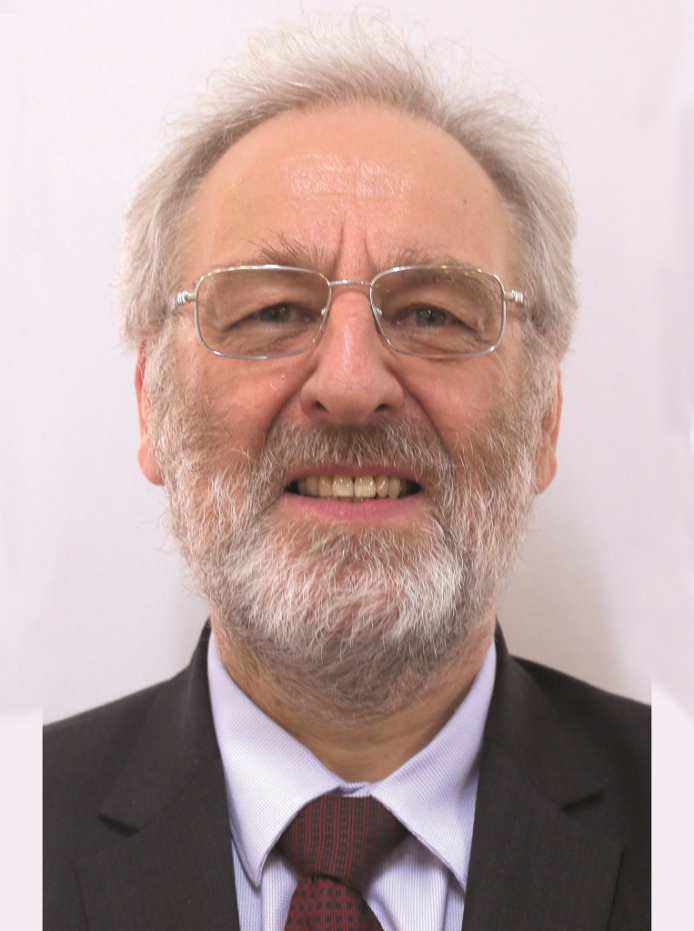
Macau Business | June 2024
Keith Morrison – Author and educationist
Like many other parts of the world, Macau is experiencing a population change. It is common knowledge that Macau’s population is living longer. In 2013, the proportion of its population aged 65 and above was 8.4 per cent; in 2023 it was 14 per cent, projected to rise to 23.3 per cent in 2034. Further, the number of people in the 25 to 34 age group, i.e. those who might have children, whilst they comprised 16.7 per cent of the population in 2023, is projected to fall to 10.2 per cent in 2034. As graph 1 shows, in the last ten years Macau’s population aged 65 and above grew dramatically, by 85 per cent (rounded), whilst the number of live births fell by half (49.57 per cent) (see graph 2). The younger population (aged 0-4 years) is projected to fall from 4.3 per cent in 2023 to 3.4 per cent in 2034.
The ramifications of these simple figures are already engaging Macau’s government, for example, building accommodation for the increasing elderly population in Macau. Nevertheless, more can be done for elderly health services. Why are there daily queues of elderly patients waiting for treatment in Macau’s hospitals and health centres? What is being done to augment the massively over-stretched and under-provided mental health provision and services in Macau, to promote well-being, and, indeed, not only for the elderly but for all age groups? Despite recent building programmes, there are still insufficient homes for the elderly providing a decent, stimulating, and caring environment, together with a high quality of life rather than endurance and suffering in a socially withering, boring environment.
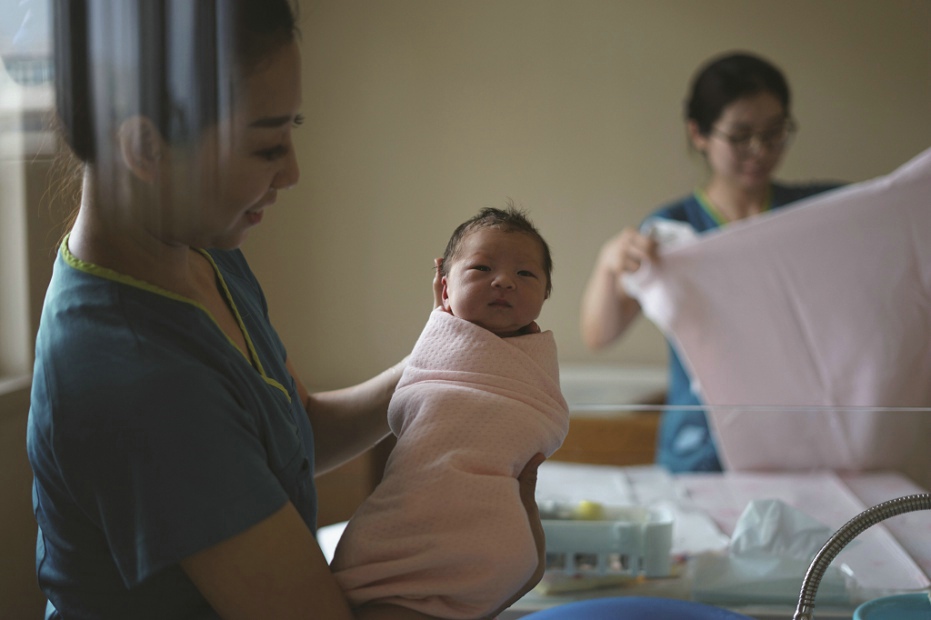
We hear many, many stories of young adults of child-rearing age in Macau deciding not to have children. It is little surprise that the birth rate is falling in Macau. Why is this? What incentives and provisions are there for bringing children into the world in Macau? Can young Macau couples afford to have children? In other parts of the world, financial help from the government for all parents bringing up children lasts until the children are 18 years of age, regardless of parents’ income, i.e. equality for all. Not so in Macau. This raises an ongoing and massive agenda, regarding affordable accommodation, job security, and sufficient income to raise children, to give them a reasonable, enjoyable childhood and subsequent adulthood. These point to the need for considerable investment in improving health care, education, providing for children, social welfare, ensuring their well-being and a positive and stimulating environment for bringing up children with their families, not only giving individual handouts; it is a system-level as well as an individual-level support matter. No wonder, perhaps, that fewer people in Macau have babies.
It is difficult to reconcile Macau’s huge GDP and steps taken to further its ‘gold business card’, with the need for all its population, young and old, to have a better quality of life. Where is Macau’s government providing sufficient all-round care and support for the elderly and child rearing in Macau? Only with having all these available and accessible services and support will the elderly be able to look forward to retirement without apprehension, fear, and despair, and will the younger, child-bearing population be able to afford to have children and give them a decent life. This places societal welfare at the top of a government agenda, not simply the amassing of wealth, flourishing business, and putting crowded streets of tourists at the topic of the ‘to do’ list.
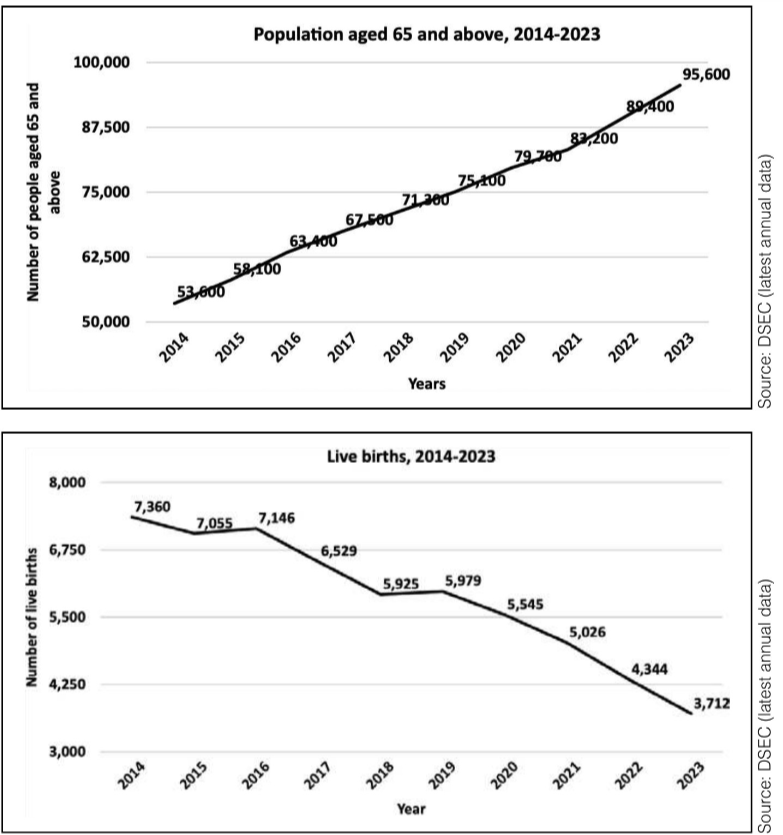
Source: DSEC (latest annual data)
]]>
文:Keith Morrison | 作家及教育家
與世界上許多其他地區一樣,澳門正在經歷人口變化。眾所周知,澳門人口的壽命越來越長。2013年,65歲及以上人口比重為8.4%;這一比例於2023年飆升至14%;預計到2034年將進一步上升至23.3%。此外,25至34歲組別的人口數量,例如那些已為人父母的居民,佔澳門2023年人口總數的16.7%,預計到2034年將萎縮至 10.2%。如表1所示,澳門65歲或以上人口數量於過去十年間暴增,增幅高達85%(四捨五入),而活產嬰兒數量卻減少了近一半,跌幅為49.57%(詳見表2)。較年輕的居民人口(0-4歲)數字預計將從2023年的4.3%下跌至2034年的3.4%。
這些簡單數字將引發一系列後果,並已引起了澳門政府的關注,例如,為本地持續增加的長者建造住房。儘管如此,長者健康服務仍可進一步提升。為何澳門的醫院及健康中心每日都見長者排隊等候治療?為了促進社會福祉,完善澳門嚴重供不應求的心理健康輔導和服務,當局採取了哪些措施?事實上,目標受眾不局限於長者,而是涵蓋所有年齡段的居民。儘管最近推出了新的項目,但澳門仍無法為長者提供足夠的優質且具關懷的環境,更不用說高品質的生活,人們繼續在充滿磨難和痛苦的環境中掙扎。
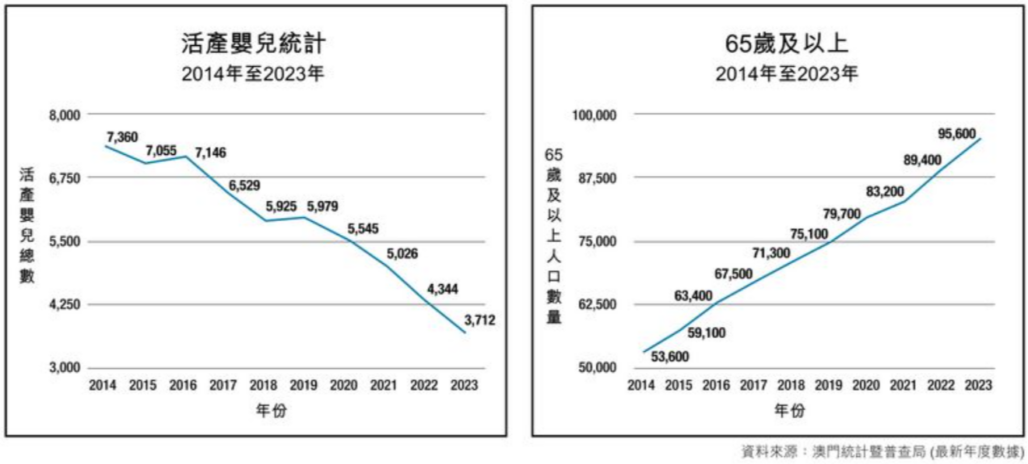

文:Keith Morrison | 作家及教育家
您可能看過美國達人秀、英國達人秀、澳洲達人秀。 事實上,許多國家都有自己的真人秀節目。暫且不談這些,將目光轉移至澳門:澳門達人秀。的確如此!撇除那些令人耳目一新的華麗歌手、可愛的小孩子、舞者、魔術師和喜劇雜技演員。澳門能夠做得更好;我們的確擁有人才。據了解,澳門擅長科學、工程和技術。除此之外,我們仍需更多具高科技、電腦科學與應用、大健康、金融等專業知識的人才。
]]>
Macau Business | June 2024
Keith Morrison – Author and educationist
You may have watched America’s Got Talent, Britain’s Got Talent, Australia’s Got Talent. In fact, many countries have their own similar reality shows. But put those aside, because now Macau’s got talent. It’s true. Not the ear-splitting glitzy singers, endearing little children, dancers, magicians, and comedic acrobats. No, Macau can do better than these; Macau’s got real talent. Reportedly, Macau is good at science, engineering, and technology. On top of this, it needs even more people with expertise in high-tech, computer science and applications, big health, and finance.
The Macau government is reported to be offering a financial incentive to local ‘high-end talents’ to stay in Macau, along with attracting international experts. As the Secretary for Social affairs and Culture was reported to have said recently: ‘We welcome scientific and technological talent from around the world to come to Macau to set up businesses and facilitate development’. Add to this, bursting with life and excitement, is Macau’s Talents Development Committee’s alluring comment that its ‘website provides high-paying job vacancies in five major occupational categories, including: corporate executives, professionals, highly skilled talents and applied talents. The salary of the vacancies is not lower than the median of the relevant occupational categories announced by the Bureau of Statistics.’ Yawn.
Maybe the Talents Development Committee is disappointed that it has not recruited anyone who meets its eligibility criterion of having a Nobel prize, the Fields medal, the Turing Award, or the Shaw prize. So, Macau is turning to its own talents, paying them to stay, though reportedly offering them only ‘slightly more’ cash. Such incentives overlook the elephant in the room, even though several hundred applications are reported to have been received. And what is that elephant? Read on.

Whilst the endeavours of the Macau government are clearly well intentioned, the lack of suitably qualified and experienced workers in the identified key areas of need raises several questions. For example, how is it that the thousands of local students who graduate each year from Macau’s higher education institutions with Master’s and doctorate, and undergraduate degrees in the areas of need, are unsuitable for meeting the local needs, or who decide to work outside Macau, or to work in other employment? Why do local, highly talented people leave Macau or do not return from overseas? Why are suitably experienced international workers not only difficult to recruit but also difficult to retain? Why don’t they want to come to, or stay in, Macau?
In conducting a situational analysis of work opportunities, it is important to look at not only the upside of Macau, but also its downside. On the one hand, Macau is a safe city, most of its residents are delightful, it has some interesting sites, its low tax rate is attractive, and, for senior staff, it pays well. On the other hand, and this is the elephant in the room: (i) career development prospects are very limited in terms of promotion and diversity, with narrow fields of employment; (ii) many of its work cultures are over-hierarchical and over-authoritarian, with handed-down instructions for workers to obey compliantly; (iii) the labyrinthine bureaucracy of visas, work permits, and residency status is forbidding; (iv) government intrusion into private enterprises is oppressive; (v) Macau is monstrously overcrowded with both residents and tourists; (vi) it is a noisy, light-polluted, concrete jungle that lacks countryside and a nature-friendly environment, and its back streets are filthy and congested; (vii) accommodation is expensive; (viii) job security of international workers is fragile (they can be fired at the drop of a hat, as happened when thousands were kicked out at two weeks’ notice in the Covid-19 pandemic); (ix) with only a few exceptions, its mass schooling is like turning back the clock 50+ years; (x) health services are suspect (people go outside Macau for diagnosis and treatment); (xi) Macau has become more geared to tourists than to its locals; (xii) Macau’s residents have few societal and community benefits from the massive gaming income.
The point here is that offering people cash to stay in Macau or to come to it for work pales into relative insignificance when balanced with quality of life, i.e. things that cash cannot buy. Macau seems to have talent in offering disincentives.
]]>
文:Keith Morrison | 作家及教育家
澳門住宅價格指數(RPI,即住宅價格變動的概括指標)的年度跌幅幾乎沒有減弱的跡象。疫情爆發前樓價暴漲的日子已一去不復返了。2022年11月至2023年1月,整體RPI按年萎縮7.4%;2023年11月至2024年1月的年度跌幅為5.6%(在編寫本報告時的最新數據)。與此同時,澳門半島錄得的跌幅分別為7.7%及5.2%; 路氹跌幅分別為 6.3% 及 7.4%。整體數據呈顯著下降。人們或會認為這對置業人士來說屬利好消息,然而,事實真的如此嗎?
事實非如此。對於澳門成千上萬的潛在業主而言,這依然無法令人感到安心。為什麼? 因為樓價之高仍令人望而卻步。在確實買不起的情況下,無論這個單位是600萬,還是1,600萬,其實都不存在,加上這兩個價格都超出了許多本地居民的承受能力。澳門 2024 年 3 月的房價收入比被全球大型資料庫網站Numbeo評為“非常高”。
解決方案不僅僅是增加住宅單位的供應量。相反,對住宅物業階梯上的新手們來說,可負擔、可用,且在適當的價格範圍內才是重中之重。解決辦法亦不複雜,經濟學101:供給與需求。推出人們可負擔物業的問題將繼續困擾住宅市場。如本文圖片所示,澳門人口的持續增長繼續超過空置單位的數量。
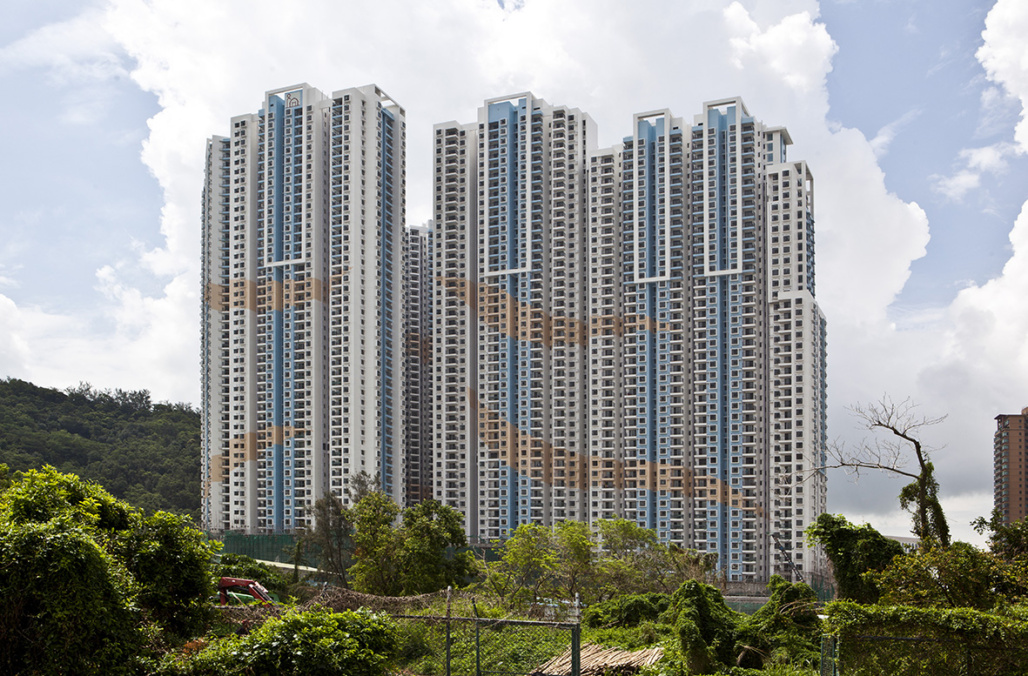
過去十年的城市人口數字與空置單位之間的相關性甚微(統計專家們認為該數據為32%),當中還涉及其他諸多因素,例如為澳門居民尋找合適的住宅物業。然而,28歲至 34歲年齡層(115,000 人)、正舉步踏上住宅物業階梯的居民仍受困其中,不得解脫。他們似乎無望實現購置物業的夢想,只能一年又一年地支付屋租,滿足出租人無休止的慾望。這個年齡層的承租人無力籌集到足夠的資金支付購置物業所需的首期,除非和其他地方的年輕人一樣,向家庭成員(通常是父母)索取。
這麼說吧:如果你擔任高級職位(行政人員、經理或專業人士)、或技術人員,即佔就業居民人口34%的那一群,那麼你的月入中位數(澳門幣27,000元或以上)則有機會進入住宅市場,開啟物業進階旅程。但25歲至34歲的組別當中(目前有75,000人,即本地就業人口的26%)有多少人擁有這樣的工作和薪酬呢?在澳門,共有187,800人(佔本地就業人口的66%)的月入中位數低於20,000元;他們怎麼會有足夠的錢財購置住宅物業?答案是:他們沒有。
對廉價、可負擔的住宅需求是巨大的。儘管心懷善意的澳門政府正透過推行一系列措施,致力解決這一問題,但28歲至34歲組別的居民仍然覺得負擔不起。RPI的下跌對低收入者來說幾乎是無關痛癢,業主和出租人繼續貪婪地從他們手中搜刮金錢,不願降低價格。本地低收入階層負擔得起且經濟實惠的空置單位在何處?
為何市場上的可負擔住宅單位供應仍不足以滿足數量龐大的本地就業人口購買?仍無法讓他們安居樂業?對於一座自詡重視安全的城市而言,有何安居保障?也許這裡所談的保障更偏向人們無能為力的,而不是在澳門能夠做到的。
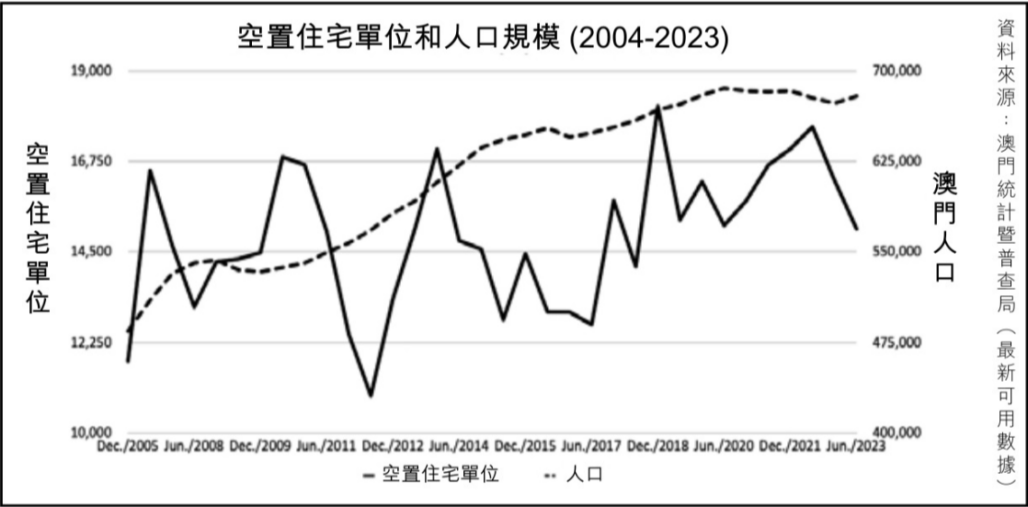
資料來源:澳門統計暨普查局(最新可用數據)
]]>
Macau Business | May 2024
Keith Morrison – Author and educationist
The year-on-year drop in Macau’s residential property index (RPI) (a measure of the change in the average price paid by households for residential properties) shows little sign of abating. Gone are the pre-pandemic days of massive residential price increases. From November 2022 to January 2023 the overall RPI fell by 7.4 per cent year on year; from November 2023 to January 2024 it fell by 5.6 per cent year on year (latest figures at the time of writing). For the Macao peninsula, the fall for the same periods was 7.7 per cent and 5.2 per cent respectively; for Taipa/Coloane it was 6.3 per cent and 7.4 per cent respectively. These are significant falls. One would have thought that this was good news for residential property buyers, but is it?
Not much. This is little solace for thousands of would-be residential property owners in Macau. And why? Because such property is still unaffordable for very many people. Whether a property is 6 million MOP or 16 million MOP makes little difference if you cannot afford either, and both are beyond the reach of many of Macau’s citizens. Macau’s property price-to-income ratio for March 2024 was rated as ‘very high’ by Numbeo, one of the world’s largest cost-of-living databases.
The solution is not simply to provide more residential properties. Rather, it depends on what is affordable, available, and in the appropriate price bracket for new starters on the property ladder. It is not rocket science to work this out; Economics 101: supply and demand. Providing affordable residential property for purchase is a problem that will not go away, since, as the graph shows, the ongoing rise in Macau’s population continues to outstrip the number of vacant residential units.
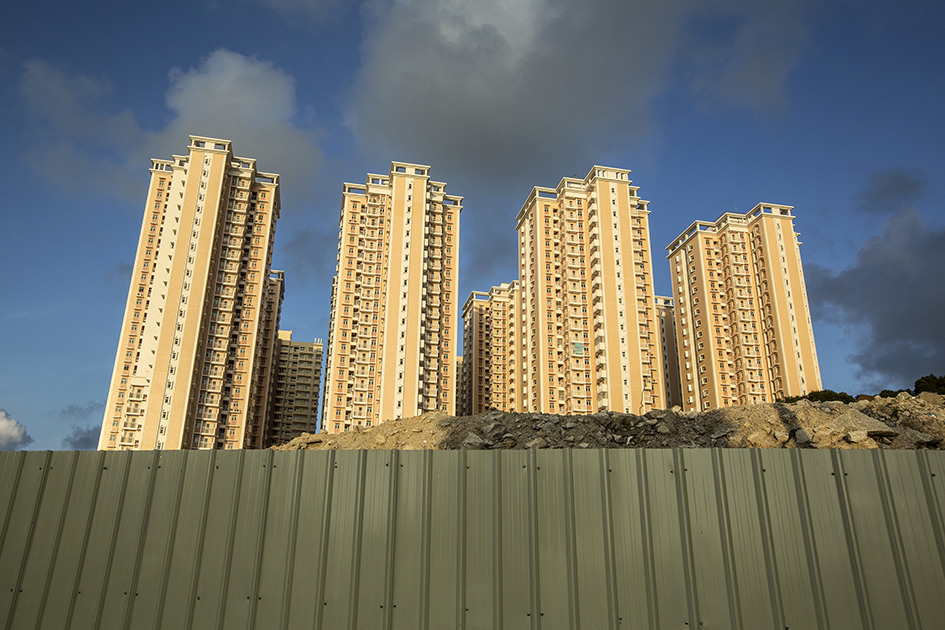
There is only a small correlation between population and vacant residential units in the last ten years (32 per cent for statistics geeks), there being many other factors involved in finding residential property for Macau’s citizens. However, this does little to ease the plight of those in the 28-34 age group (115,000 people), i.e. those seeking to start on the property ladder. They appear to have no hope of ever being able to buy their own property. Rather, they are condemned to paying rent for years with nothing to show for it, whilst filling the pockets of lessors who raise the rent at will. Lessees in this age group are unable to amass sufficient money to pay for the initial deposit on a property, unless, as one sees in other parts of the world, the family members, typically the parents, are the bank.
Put it this way: if you are in a senior position at work (administrator, manager, or professional), or a technician, i.e. 34 per cent of the employed resident population, then your median salary (27,000 MOP and higher) might let you start on the residential property ladder. But how many of those in the 25-34 age group (currently 75,000, i.e. 26 per cent of the resident workforce) are at this level of job and salary? In Macau, 187,800 people (66 per cent of the resident workforce) earn a median monthly salary below 20,000 MOP; how will they ever have enough money to buy their own residential property? Answer: they won’t.
The press for cheap, affordable residential property is immense. Even though the well-intentioned Macau government is taking steps to address this, those in the 28-34 age bracket still find it unaffordable. The drop in the residential property index offers little comfort to those who are on low incomes, so property owners and rentiers continue to leech money from the low paid, greedily reluctant to bring down their prices. Where is the affordable vacant residential property for purchase by the low-paid in Macau?
Why does there continue to be insufficient affordable residential accommodation for so many of Macau’s employed resident population to purchase and, thereby, to live in the security of their own home? What security of accommodation is there in a territory that purports to place such significance on security? Maybe security here is about what you cannot do rather than what you can do in Macau.
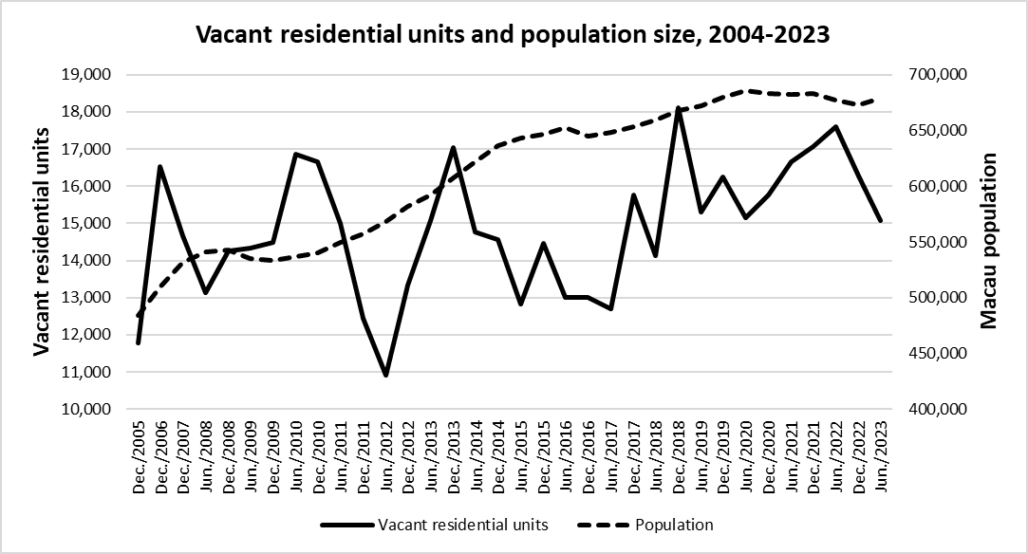
Source: DSEC (latest figures available)
]]>
Macau Business | April 2024
Keith Morrison – Author and educationist
Like many inventions, the cellphone is a blessing and a curse of our times. Consider these observed examples of what happens when families get together for a restaurant meal, e.g. Chinese New Year, mid-autumn festival, and so on. ‘A nice idea’, you might think, but see if the following real-life events are your experience.
Which is more important, a child or a cellphone? Two parents and their young child (four or five years old) were dining in a local Macau restaurant. ‘Very nice to see a family together’, you might think; but wait. The parents were ‘on their cellphones’, ignoring him. Like the baby in the celebrated ‘still face experiment’ by Edward Tronick and his associates in 1975, the young boy tried a range of actions to attract his parents’ attention, making loud noises, swinging on furniture and doors, running around, approaching strangers, and so on. Did it work? Not really; when he made so much noise as to distract his parents, they scolded him and then went back to their cellphones. Shameful, negligent role models.
Which is more important, your partner or a cellphone? In another Macau restaurant there was a young couple. Were they engaged with each other, and conversing? No; they were preoccupied with their own cellphones.

Which is more important, your grandma or a cellphone? In another Macau restaurant was a family with their elderly grandma. A nice treat? Well, no. In a society that supposedly espouses respect for the elderly, what happened? The family members, when they were not shouting at each other across the table, spent the time on their own cellphones, even when eating, whilst grandma, phoneless, sat still and silent, looking around the restaurant, alone, bored, and waiting for contact that never came. What neglect. Next time you are in a restaurant, look at groups of people and count how many are on their individual cellphones.
Which is more important, your workplace colleague or a cellphone? How many times a day does a colleague come to you, then their cellphone sounds to indicate that a message or a call has arrived, so everything stops whilst your colleague answers it. You are left sitting there, useless, waiting until your colleague has the graciousness to continue talking to you. The message? You take second place to an object. I fume silently but patiently each time this happens to me. Nor am I impressed when people tell me that this is in case there is an emergency, or that this is modern day society, so get over it. No, it’s not society at all; it is individuals engaged in obsessional subservience to an object, in which instant accessibility and immediate gratification push human, face-to-face interaction down the pecking order. How many times each day does this happen to you?
Which is more important, a life or a cellphone? Despite recent government legislation on jaywalkers and the ban on looking at your cellphone whilst crossing the road, I tire of still having to swerve my car to avoid some stupid, yes stupid, person stepping into, or walking along, the road with the road sense of a drunken ant, fixated on their cellphone. So I blare my car horn for many seconds, which makes them jump, freeze, or give me a sour scowl, which satisfies me hugely.
I don’t know if the downside of cellphone usage is simply evidence of an inability to break out of Pavlovian behaviourism applied to humans rather than to salivating dogs, or humans’ selective negligence as a feature of learning, or their moral ineptitude in treating people as less important than a piece of equipment, or whatever. Cellphone addiction instances humans’ inability to cope with a modern-day siren song; a clear example of dependency and the fallout from a refashioned 1960s dangerous hallucinogen.
One would have thought that the findings of research on dysfunctional human behaviour and its causes and outcomes, even if one reaches back only a few decades, would have impacted on families, interpersonal behaviour, workplace relations, and road sense, but apparently not. Humans have a marked inability to learn when it matters.
The cellphone instances the poet Yeats’s words, when commenting on another event, writing that ‘a terrible beauty is born’. How is it that cellphones have brought not only benefits barely imaginable a generation ago, but have powered up preventable social decline? Is this really the best that Macau can do for its values and claims of community and concern for society?
]]>
文:Keith Morrison | 作家及教育家
和許多發明一樣,手機是我們這個時代的祝福,也是詛咒。想想日常生活中遇到的事例吧。每逢佳節,家庭聚餐之時,你或會想,“這是個好主意”,現實卻往往不盡人意。
孩子和手機,哪個更重要?看到父母牽著年幼的子女(四、五歲)到餐廳用餐,你或會想,“一家人在一起真好”; 可是等等,父母都在“玩手機”,完全無視身邊的子女。就像1975 年Edward Tronick 及其同事進行的著名“靜止臉實驗”中的嬰兒一樣,這個小男孩爲了吸引父母的注意力,嘗試做出一系列動作,例如發出巨響、在家具或門上搖擺、到處亂跑、接近陌生人, 等等。他成功了嗎? 非也。當他大聲喧嘩分散父母的注意力時,僅得到了父母的責罵,他的父母隨即再次沉迷於手機創造的世界。這絕對稱得上是可恥且大意的榜樣。
伴侶和手機,哪個更重要? 在另一家澳門餐廳裡,有一對年輕夫婦。他們彼此有接觸或交談嗎?沒有!他們都專注於各自的手機。
家中長輩和手機,哪個更重要?來到另一家本地餐廳,一家人帶著家中長輩用餐。這是一次愉悅的用餐體驗?嗯,不。在這個本應崇尚尊重長輩的社會裡,到底發生了什麼事? 一家人不是隔著桌子互相對駡,就是忙於擺弄手機,甚至用餐期間亦如是。沒有手機的長輩,只能靜靜地坐著,默默地環視著餐廳,獨自一人,無聊地等待著久違的接觸和互動。多麽冷漠!下次你到餐廳時,請留意人群並數一下當中使用手機的人數。

同事和手機,哪個更重要?就在你與同事交談時,他們的手機忽然響起訊息提示或電話鈴聲時,你們的交談戛然而止。你只能坐在那裡,等待你的同事有禮貌地回頭繼續之前的話題。在一天裡會發生多少次這樣的事情?訊息?你排在第二位,僅次於某個物體。每當這種情況發生在我身上時,我都會默默地生氣。當人們為此冠上“以防萬一”的藉口,又或試圖說服我這是現代社會時,所以我只是一笑了之。不,這根本不是社會,而是人們對某個物體的痴迷、服從,當中即時的可及性和即時的滿足感將人類面對面的互動推向了低位。你每天會遇到多少次這種情況?
生命和手機,哪個更重要? 儘管最近政府立法禁止亂過馬路,並禁止過馬路時看手機,但我仍然厭倦了必須為了避免某些愚蠢的行人而急轉。是的,那些人走進或沿著馬路行走,猶如一隻醉酒的螞蟻,專注於手機。所以我按了幾秒鐘的喇叭,將他們嚇得彈了起來,僵住了,或是對我皺起了眉頭,這讓我感到非常滿意。
我不知道使用手機的缺點是否只證明了人類無法擺脫古典制約,或者人類作為學習特徵的選擇性疏忽,又或者他們的道德無能導致他們將一件設備或物件看得比人更重要。手機成癮是人類無法應付現代的海妖之歌;這是依賴性的一個明顯例子,也如20世紀60年代危險致幻劑改造後的惡果。
人們或會認為,那些針對人類功能失調行為及其成因、結果所作的研究,即使追溯到數十年前,一再描繪了對家庭、人際行為、工作場所關係和道路意識產生影響,但實際上的影響卻有過之而無不及。人類明顯失去了學習的能力。這才是更重要的!
正如詩人葉慈為了另一件事反復吟唱般,“一種恐怖的美麗油然而生”,手機確實創造了上一代難以想像的好處,卻同時加劇了可預防的社會衰退。這究竟是如何發生?這真的是澳門對其價值觀、社區訴求和對社會關懷所能做的最合適的事情嗎?
]]>
Macau Business | March 2024
Keith Morrison – Author and educationist
What springs to your mind when you hear the term ‘waste management’? Solid and liquid waste disposal? Recycling? Save the earth? Waste creation? Waste prevention? Waste treatment? Plastics? Sustainability? Of course, it is all of these, and plenty more. Waste management touches everything, nor is it new; consider Vance Packard’s 1960 prescient publication ‘The Waste Makers’.
Macau has a long way to go in waste management, even though the large casino resorts are in the vanguard of practices here. The latest annual figures indicate that, in one year alone, Macau had 2.3 million cubic metres of construction waste, 437,000 tonnes of municipal waste, and 223,000 cubic metres of water treated each day. For decades, many parts of the world have required households to separate their waste into different types, to be collected at different times in a regular schedule: glass, cans, plastics, paper, food, organic matter, furniture, batteries, etc. But not in Macau. Here, even if households separate their waste (which is light years away from being universal or required), what happens then? Oh, easy; they are all mixed up again when the garbage is collected, i.e. a complete waste of time. Not a record to be proud of.
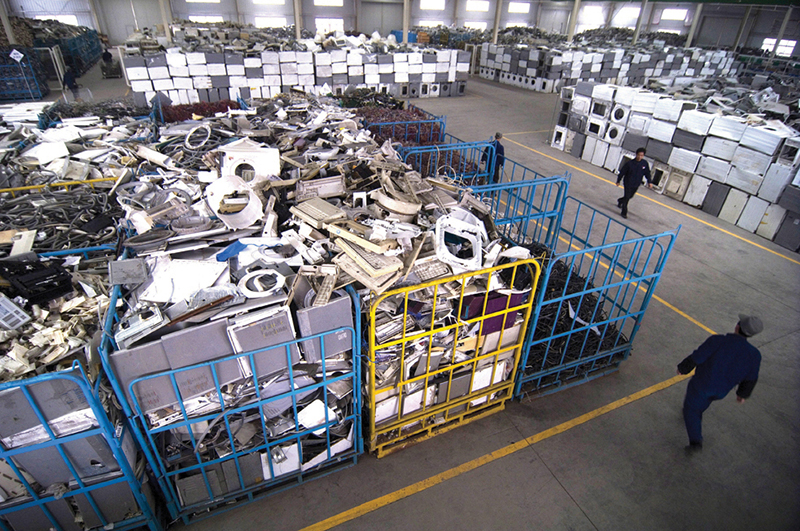
But wait a moment; that’s only the conventional field of waste, concerning materials of different kinds. Waste management applies much more widely, and Macau is a nice example of this.
For example, how about wastage of public money? Think of the over-sized light rail stations, or the cathedral-sized Pac On ferry terminal, or Macau’s immigration and customs building at the Hong Kong-Zhuhai-Macao bridge, with its mini-marathon walking distance and carry-a-case escalator obstacle course, or the conspicuous failure to solve the still permanently congested Pearl roundabout at the Avenida da Ponte de Amizade, despite massive roadworks. What glorious waste creations. And how is it that construction projects in Macau go to the lowest bidder rather than to the most suitable bid? What startlingly successful opportunity waste.
Waste management addresses that which has been discarded as useless, superfluous, and unwanted. Who decides what counts as waste? There are many instances of a much wider needed interpretation of waste in Macau, that reaches beyond material waste. Consider, for example, the waste of human resources in Macau, where those who are qualified in a wide range of fields (often qualified abroad) find that there are no jobs for them in their fields in Macau, because of narrow employment prospects here. This is human creativity and talent waste, just when Macau is extolling the virtues of diversification and talent recruitment. Why is it that, in Macau, qualified pharmacists end up teaching English, trained psychologists end up as office staff, museum and gallery management experts end up as schoolteachers, and, indeed, qualified architects and scientists end up leaving Macau? What a waste.
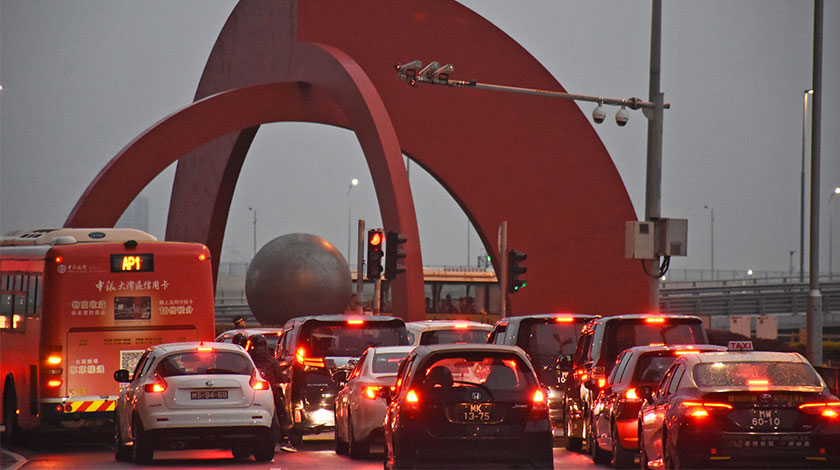
Waste of human resources includes unemployment (8,600 unemployed people in Macau, latest figure) in which there is discrimination by age, gender, ethnicity, race, and country of origin. Additionally, employee attrition sees workers quitting jobs because of poor working conditions. Macau has them all. What a waste.
Or consider the superfluity of senior managers in organisations and offices in Macau: organisational waste. Here the ‘waste’ in ‘waste management’ is adjectival: managers who are a waste. Why are Macau’s organisations and offices top-heavy in senior managers whose main job, it appears, is to be noticed as they strut and fret their hour at an endless number of inconsequential, unnecessary meetings and public events? What a waste of time and money here: time taken to greet these divine top-rank managers; time for them to parade in front of the ‘proles’, their names read out for everyone to applaud; time for them to toast the ‘great unwashed’ who are present in envious awe with their cellphones at the ready to photograph the magnificence; and then time to bow and exit in order to compete in the most-expensive pickup limousine competition. But wait, let us not be hard on these overblown mannequins; they have the good grace to disappear immediately after the photo-taking, leaving the others to rejoice at having seen them, whilst not actually knowing who they were.
Why is it that event after event sees these same VIPs present, smiling over their petit fours, wondering how to hold their glass, their single-use paper plate and plastic cutlery, without dropping them when shaking hands. This is senior manager waste: useless and superfluous would-be big fish in a small pond. To coin a cinematic phrase, maybe they should be ‘wasted’, but maybe this is ungenerous; after all, they are harmless because, in fact, they don’t do much except receive showbiz plaudits. Maybe just recycle them to be garbage collectors.
Waste is that which adds no value, is inefficient and unnecessary. Look at Macau; waste is everywhere and ongoing. Macau’s culture of waste is pervasive and all-to-easily tolerated.
]]>
文:Keith Morrison | 作家及教育家
當提到“廢棄物管理”一詞時,您會想到什麼?固體和液體廢棄物處理?回收?拯救地球?廢棄物的產生?預防浪費?廢棄物處理?塑膠? 可持續性?當然,以上皆是且舉不勝舉。廢棄物管理涉及諸多方面,亦非新鮮事;富有先見之明的Vance Packard早在1960年就已發表了《廢物製造者 (The Waste Makers) 》一書。
在廢棄物管理方面,儘管大型娛樂場度假村處於領先地位,但澳門仍有漫漫長路要走。 根據最新的年度數據,澳門全年要處理230萬立方米建築廢料、43.7萬噸城市固體廢物,日均污水處理量也高達22.3萬立方米。數十年來,世界眾多國家和城市均要求其居民按照不同標準進行垃圾分類並定期進行回收,玻璃、罐頭、塑膠、紙張、食物、有機物、家具、電磁等均在此列。然而,澳門卻是例外。在這裡,即使居民自行進行垃圾分類(當然這距離普及仍有光年之遙),那麼將發生什麼事?哦,很簡單!已經被分類的廢棄物在被收集時,將再次被混集在一起。徒勞無功!這絕不值得驕傲。
然而,考慮到涉及不同種類的物料,這僅僅是傳統的廢棄物領域。廢棄物管理的應用範圍更加廣泛,澳門就是一個很好的例子。

例如,浪費公帑又怎樣?想想那些令人寒心的“大白象”,如超巨型的輕軌站和北安客運碼頭,還有港珠澳大橋澳門邊檢大樓那足以與迷你馬拉松媲美的步行距離和自動扶梯障礙訓練場,又或者是友誼橋大馬路一帶從不休止的大規模道路工程,卻不曾解決長期擁堵的棘手問題。多麼燦爛的廢物創造!為何總是那些出價最低的投標者競得建築項目,卻不選擇那些最合適的團隊?成就功績的機會被白白浪費了!
廢棄物管理可處理那些被認為無用、多餘或不需要的事物。但,誰決定“廢物”的定義?在澳門,有許多例子表明有必要對浪費進行更廣泛的解釋,不應局限於物質的浪費。例如,面對本地人力資源浪費,那些在廣泛領域具備資格的人(通常在國外獲得資格認同)卻無法在澳門找到合適的工作,原因是這裡的就業前景狹窄。這是人類創造力和人才的浪費,但此時澳門卻大力宣揚其多元化和人才招募的優點。為什麼在澳門,合格的藥劑師最終成為英語老師,訓練有素的心理學家最終成為辦公室職員,博物館和畫廊管理專家最終成為學校教師,合格的建築師和科學家卻選擇離開?真是浪費啊!
人力資源浪費包括失業(澳門失業人數最新為8,600人),當中不乏對年齡、性別、民族、種族、原籍國的歧視。此外,僱員因工作條件惡劣選擇辭職導致員工流失。這些現象在澳門屢見不鮮。真是浪費啊!

又或者,面對本地機構和企業高級管理人員過剩:組織浪費。就此而言,“廢棄物管理”中的“廢棄物”作為形容詞,即管理者是廢棄物之意。何解澳門機構和企業的辦公室坐滿了高級管理人員?其主要工作似乎就是在無止盡的會議和公共活動中扮演趾高氣揚、煩躁不安的角色?但這些工作往往是無關緊要、不必要的。真是浪費時間和金錢!浪費時間去接待高高在上的頂級管理人;浪費時間欣賞他們在“貧民百姓”面前遊行並為他們的名字鼓掌歡呼;浪費時間聆聽他們為底層群眾發表的祝詞,欣賞他們接受普羅大眾的羨慕和敬畏,並留下絢爛的照片;最後欣然鞠躬離場,踏上那最奢華豪華轎車。然而,請不要對這些誇張的人體模型過於苛刻;他們很幸運地在大合照後旋風式消失,讓其他人為看到他們深感自豪,實際上他們的名字卻不為人所知。
為何總是在終而復始的活動中看到這些貴賓的身影?他們總是微笑地看著手上的迷你茶點,思考如何在握手時拿穩手中的玻璃杯、一次性紙盤和塑膠餐具?這是高級管理人員的浪費:無用、多餘,堪比小池塘裡的大魚。用電影裡的一句話來形容,也許他們應該被“浪費”,但也許這有點心胸狹窄;畢竟,他們是無害的,因為事實上,除了獲得娛樂圈的喝采之外,大多碌碌無為。或許,只需簡單回收,再造成垃圾收集器。
廢棄物指那些不增加任何價值、效率低且不必要的事物。看看澳門;浪費無所不在且無法磨滅。澳門的浪費文化極之普遍且包容度甚高。
]]>
Macau Business | February 2024
Keith Morrison – Author and educationist
Many and various are the advocates of entrepreneurship in Macau. Indeed, Macau SAR government’s Comissão de Desenvolvimento de Quadros Qualificados ‘encourages young people in Macau to fulfill their dreams of starting their own business and thereby foster economic diversification and innovation in Macao’, offering ‘an interest-free business start-up loan programme specially designed for young people’. Very worthy indeed, as financing and access to start-up capital are formidable constraints. To these challenges facing entrepreneurs in Macau are added other familiar matters: market competition and flux; networking; lack of expertise, knowledge, skills, and experience; talent recruitment; timing of scaling up; personal, emotional, interpersonal, mental strain and burnout; team development; work-life balance; risk analysis and evaluation in handling uncertainty; and regulatory and legal hurdles and their adverse effects.
These challenges might well explain Macau’s sluggish increase in newly incorporated companies (see Graph 1) over the last ten years, and the increase in its dissolved companies (see Graph 2). Here, the average annual percentage (rounded) of newly incorporated companies that were dissolved rose from 11 percent in 2013 and 10 per cent in 2014 to 17 percent in 2022 and 18 per cent in the first three quarters of 2023 (latest data available).
There is a need for a paradigmal mentality change to bring more creative views of entrepreneurship in Macau. Witness the lines of closed-down small businesses in street after street in Macau’s city centre (as in other cities across the world). This is not only indicative of mountainous business rental costs but is also a testament to the demise of regarding entrepreneurship as simply running small shops. Yesterday’s entrepreneurs preceded AI and online business; today’s and tomorrow’s entrepreneurs operate in virtual worlds.
But challenges to entrepreneurship do not stop here. One significant obstruction to entrepreneurship in Macau is the years of learning compliance, passivity, and silence in its schools, in which questioning, critique, imagination, own ideas, and creativity are punishable offences, from kindergarten upwards. This is reinforced in the pipeline through to adulthood in Macau, where regulatory and legal matters in many of Macau’s institutions, government offices, and disproportionate civil service replace entrepreneurship’s appeal to the maxim ‘everything that is not forbidden is allowed’ by the hobbling mentality of ‘everything is forbidden unless it is permitted’.
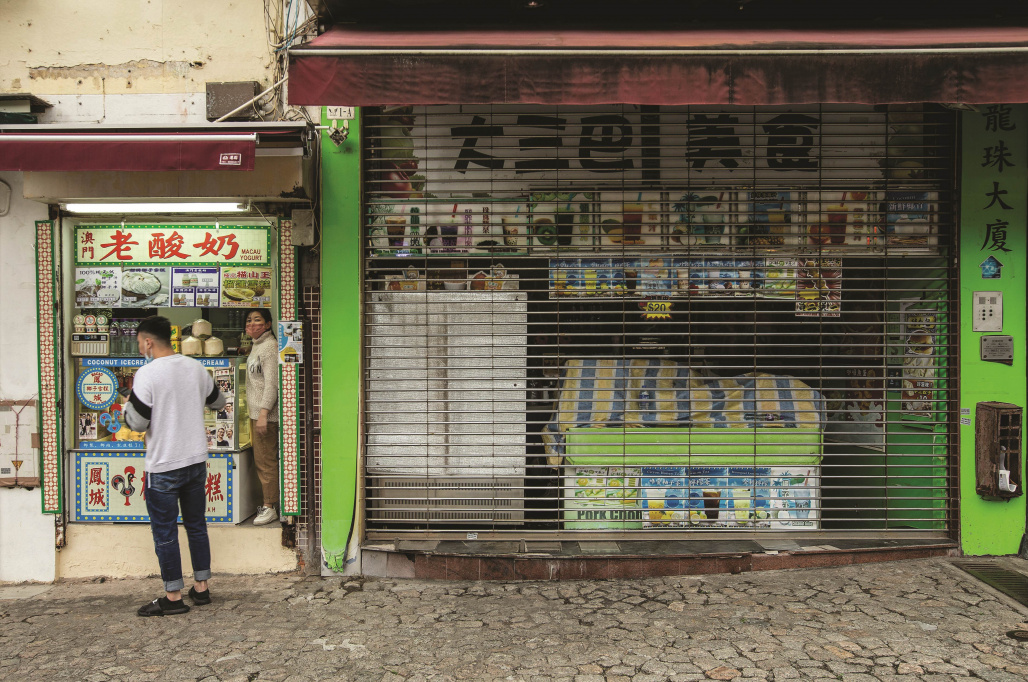
Take for example, a civil servant in Macau who tells a would-be entrepreneur that they cannot do such-and-such because no mention of permitting it has been included in any law, regulation, bye-law, or company document. In most countries, that omission or silence is an open door to creativity, autonomy, responsibility, freedom, entrepreneurial development, and risk taking. In Macau, the lack of mention is the opposite: a shackling and stifling of entrepreneurship, often emanating from the very people who, in their next breath, are advocating entrepreneurship. How to kill entrepreneurship at a stroke.
The sentence ‘everything that is not forbidden is allowed’ recognises the ‘general power of competence’ (legal term) of entrepreneurs, and this is liberatory, open, empowering, innovative, dynamic, and creative. Then look at Macau, where so much is controlling, shut tight, unimaginative, uninventive, risk-averse, and breeds dead-end, static conformity. No wonder so much entrepreneurialism stems from outside Macau.
]]>
文:Keith Morrison | 作家及教育家
新年伊始,小城經濟表現一片欣欣向榮,但城市長期纏身的疑難雜症絕對不容忽視。這些令人頭疼的癥結都已是老生常談,比這座活力之都所依賴的燈光、浮華、旅客、娛樂、趣味、美食和娛樂場更頑強。
例如,澳門充斥著的不平等現象長期存在,居民貧富差距驚人。根據下表,過去十年(最新年度數據)期間儘管本地居民就業性質略有變化,勞動者技能輕微提升且低技能工人數量稍有下降,但仍有近18,900名低技能和低收入工人(佔就業居民總數的七個百分點) 。不同收入群體的相對百分比增長仍無法掩蓋這一事實:儘管數以千計的“非技術工人”收入增長了37%,但他們的收入水平仍低得可憐,僅勉强維持其生存;儘管“服務及銷售人員”的收入增長了四成,他們當中的大部分人仍無法享受體面的生活。
除了下表羅列的數據外,2022年(最新年度數據)約有15,100名本地居民每月收入為澳門幣6萬元或以上(當中約6,300人每月收入超過8萬元),逾四分之一(27.8 %)的就業人口收入中位數為或不足15,000元。房租、樓按貸款、衣食住行等日常開支及育兒費用等支出仍讓大多數年輕夫婦不堪重負,成功置業的那天遙遙無期。2013年到2023年,出生率下降了44%,這實在不足為奇。澳門的生活消費高昂。數以萬計的居民處於低收入水平,生活品質?談何容易。少數富人理所當然地享受著截然不同的生活方式!澳門居民有何機會能夠平等地享有可接受的生活品質、可負擔的容身之所、醫療保健和退休金?他們如何能夠擺脫貧困,不再依賴他人?
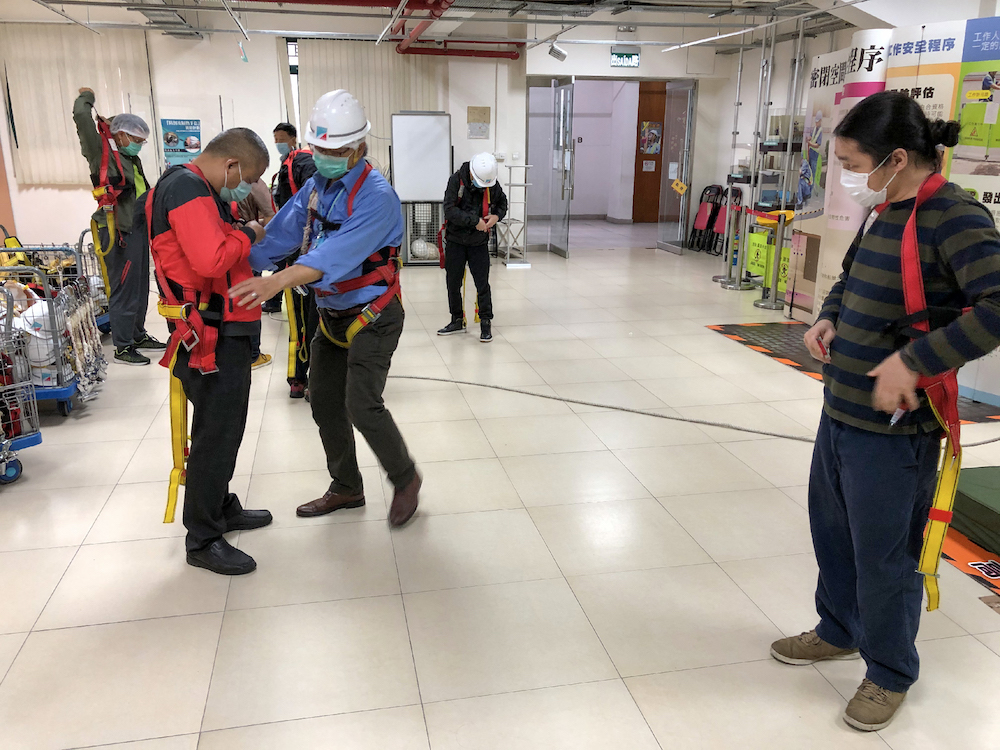
提到退休金領取者和依賴他人的居民,飽受折磨的不僅是本地年輕人。過去十年,澳門老年人口(65歲及以上)數量增加了46%,人數自2013年的48,700人增至2022年的 89,400人(最新年度數據),撫養比率(65歲或以上人口與15-64歲人口之比)從2013年的9.9%攀升至2022年的18.3%。2023年初發表的一項研究報告指出,2021年澳門每100名在職成年人對應17名受撫養老年人,預計到2026年,這一數字將增加至每100名在職成年人對應24名受撫養老年人。在澳門,如何能為在職成年人提供足夠的支持和協助?如何能讓下一代免於如其父輩一樣為撫養祖父母和父母而背上沉重的負擔?
新年伊始,將人的價值置於金錢、經濟、市場和少數人的財富創造之上,這是澳門的當務之急。這需要重新思考價值觀,把對人的關心和關懷放在首要位置,而非金錢、個人財富、地位、權力和貪婪的慾望。澳門的發展和治理必須建基於對居民的關心、以居民生活品質為出發點。這些無法單純地透過購買實現。當權者應重新思考:誰從城市發展受益、誰付出了代價、誰被拋諸腦後,澳門的發展目的和目標群體,以及如何將人性放在首位。有相當一部分澳門居民長期面臨生活機會不平等、收入低、物價上漲、向上流動機會不足和貧窮等挑戰。即使這僅佔總人口的百分之一,那也是幾千人;1%已是太多了。在新一年,您有何新希望能夠解決這些問題?澳門的富人和權貴們做了什麼,才能正本清源,而非敷衍門面?
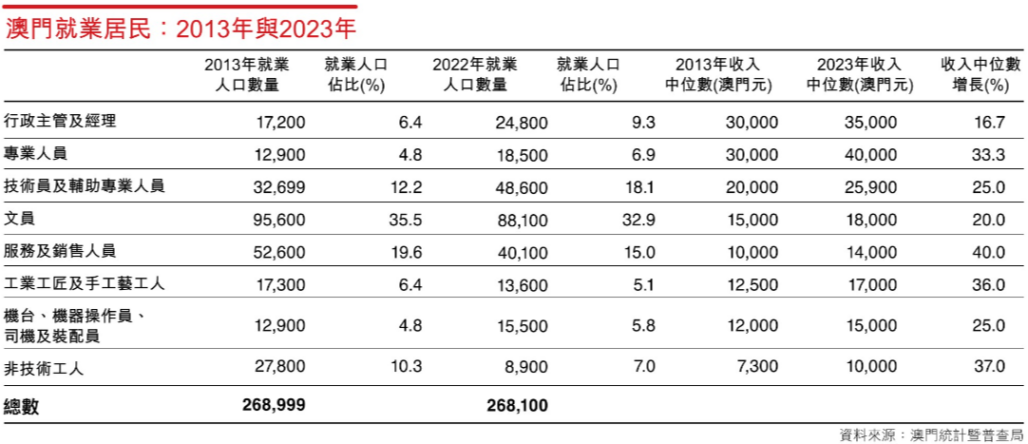

Macau Business | January 2024
Keith Morrison – Author and educationist
As we enter a new year with the signs for Macau’s economy continuing to recover, this should not occlude some long-standing challenges still facing Macau. None of these is new, which makes them more tenacious than might have been imagined in a vibrant city of lights, glitz, tourists, entertainment, fun, food, and casinos.
For example, income inequality in Macau is obstinately persistent, with significant wealth gaps. The table here indicates that, over the last ten years (latest annual data), whilst the nature of employment has changed slightly, with some upskilling observed and low skill employment reducing, there are still nearly 18,900 low-skilled and low-paid workers (7 per cent of the employed residents). Relative percentage increases in income for different groups of employees do not mask the point that, despite the 37 per cent income rise for thousands of unskilled worked, they are still living at a pitifully low, subsistence level, and despite a 40 per cent income rise for service and sales employees, thousands are still unable to afford a decent quality of life.
Aside from the table data, in 2022 (latest annual figures), some 15,100 of Macau’s employed residents earned 60,000 or more patacas a month (with 6,300 people earning over 80,000 patacas each month), the median income for over one quarter (27.8 per cent) of Macau’s employed residents was only 15,000 patacas or less each month. Rents, mortgages, cost of living, childcare, eating, and clothing continue to render it inconceivable for most young couples to even contemplate purchasing their own home. Little wonder that the birth rate has fallen by 44 per cent from 2013 to 2023. Living in Macau is not cheap. Where and what is the quality of life for the tens of thousands of residents on low incomes, whilst the wealthy few enjoy an entirely different lifestyle? Where are the equal opportunities in Macau for all its residents to afford an acceptable quality of life, affordable housing, healthcare, and a pension that keeps them out of poverty or reliance on others?
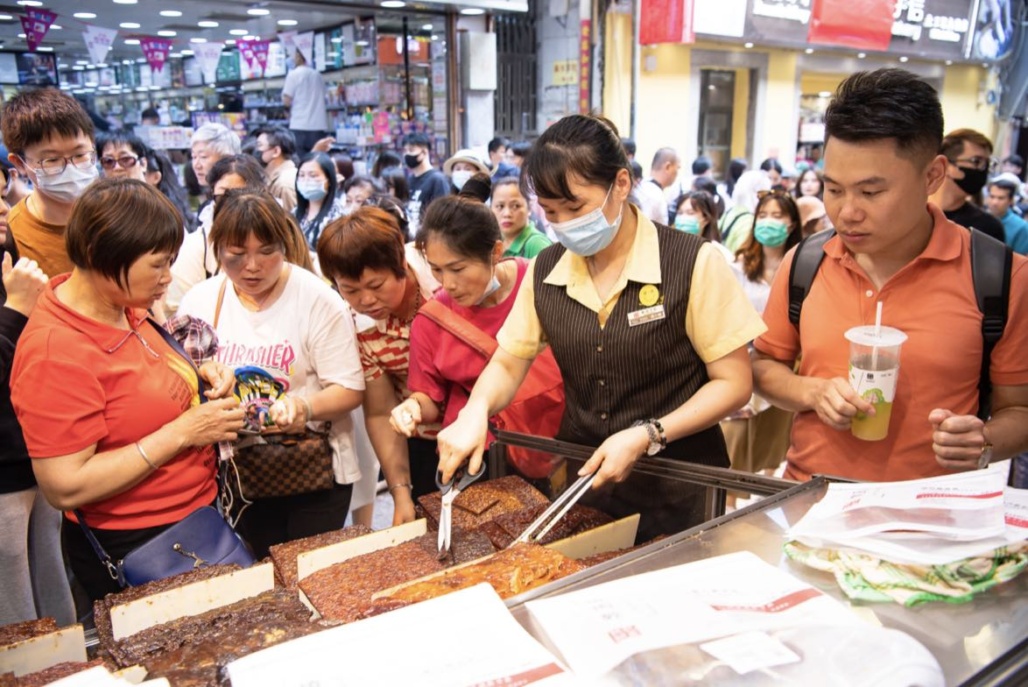
Talking of pensioners and those relying on others for help, it is not only the young adults in Macau who suffer. In the last ten years Macau has seen a 46 per cent rise in its residents aged 65 and more, with numbers rising from 48,700 in 2013 to 89,400 in 2022 (latest annual figures). The elderly dependency ratio in Macau (the percentage of those aged 65 or over who are supported by every 100 adults aged 15-64), rose from 9.9 per cent in 2013 to 18.3 per cent in 2022. A study in early 2023 reported that, in 2021, there were 17 dependent elderly people for every 100 working adults in Macau, and that by 2026 this was estimated to rise to 24 dependent elderly people for every 100 working adults. Where are Macau’s adequate support services to help them and to spare children from supporting grandparents and parents as heavily as is happening?
As we enter a new year, it is urgent that Macau places human values before money, economy, markets, and wealth generation for a few. This requires a rethinking of values, putting concerns and care for people first, not money, personal wealth, status, power, and acquisitive appetitiveness. Macau’s developments and governance must care more for its residents and their quality of life. These cannot simply be bought. They require a rethinking of who benefits from developments in Macau, at whose cost, who is left behind, for what and for whom is Macau’s development, and how to put humanity first. A significant proportion of Macau’s residents are suffering from unequal life chances, low income, rising prices, insufficient opportunity for upward mobility, and poverty. Even if it were only one 1 per cent in this situation, that is thousands of people; 1 per cent is too many. What is your new year’s resolution to address this? What are the wealthy and powerful in Macau doing to be really resolute in addressing this, not just saying it?
Employed residents in Macau: 2013 and 2023
| Number of employed persons 2013 | % of employed population | Number of employed persons 2022 | % of employed population | Median earnings 2013 (MOP) | Median earnings 2023 (MOP) | % increase in median earnings | |
| Administrators & Managers | 17,200 | 6.4 | 24,800 | 9.3 | 30,000 | 35,000 | 16.7 |
| Professionals | 12,900 | 4.8 | 18,500 | 6.9 | 30,000 | 40,000 | 33.3 |
| Technicians and associate professionals | 32,699 | 12.2 | 48,600 | 18.1 | 20,000 | 25,900 | 25.0 |
| Clerks | 95,600 | 35.5 | 88,100 | 32.9 | 15,000 | 18,000 | 20.0 |
| Service and sale workers | 52,600 | 19.6 | 40,100 | 15.0 | 10,000 | 14,000 | 40.0 |
| Craftsmen and similar workers | 17,300 | 6.4 | 13,600 | 5.1 | 12,500 | 17,000 | 36.0 |
| Plant and machine operators, drivers and assemblers | 12,900 | 4.8 | 15,500 | 5.8 | 12,000 | 15,000 | 25.0 |
| Unskilled workers | 27,800 | 10.3 | 18,900 | 7.0 | 7,300 | 10,000 | 37.0 |
| Total employed | 268,999 | 268,100 |
Source: DSEC
]]>
Macau Business | December 2023
Keith Morrison – Author and educationist
In an eventful year that saw the startling resurrection of Macau’s economy and the return of tourist crowds, the picture could be seen as positive, and, indeed, in some areas this is undeniable. Construction work on unused and reclaimed land has proceeded apace; new, gleaming conference facilities have opened; the unemployment rate of local residents has fallen to its lowest for the last three years; the fiscal reserves are up; Gross Domestic Product has rocketed; the number of doctors and nurses (approaching 5,000) has risen to its highest ever; the hours of internet usage are at record level (over 143,000 hours each month), with over 710,000 subscribers; the number of mobile phones (approaching 1.4 million), with around 730,000 subscribers, is the highest on record. Who could ask for more? Well, I could.
Consumerism renders Macau a permanently greedy stomach or a furnace; it consumes. Macau’s consumption of water and electricity is the highest on record; its number of registered vehicles is at an all-time high (over a quarter of a million). Its city-level peristaltic throughput creates monumental waste: in 2022 (latest figures available), municipal waste topped 400,000 tonnes, special and hazardous waste reached nearly 5,000 tonnes, and over 2.3 million cubic metres of construction waste was landfilled.
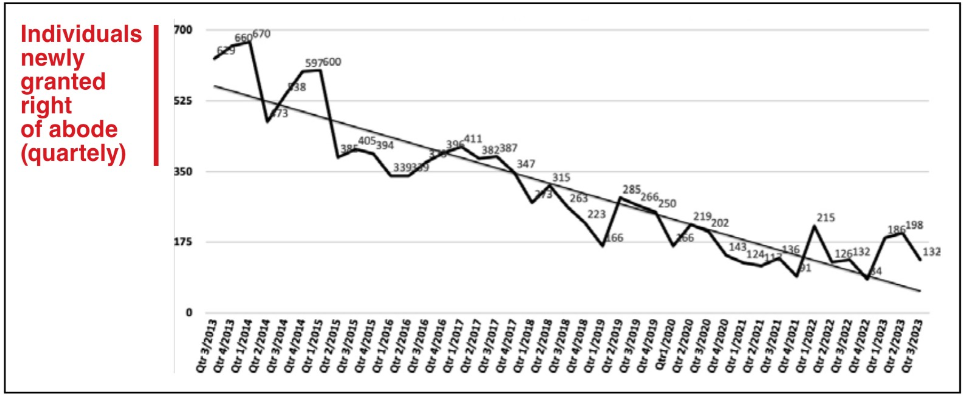
The lived experiences of Macau residents continue to tell a problematic story. It remains very difficult to afford housing and is almost impossible for younger adults. Employment still needs massive diversification. Waste management and recycling are still largely in their infancy in much of Macau. Severe environmental pollution of all kinds persists. Poverty remains. Macau continues to be a pan-territory, dirty building site. Concerning rights to abode in this would-be international, multicultural city, the number of new individuals granted rights of abode has declined in the last decade (see the graph) and is tiny (132 in the third quarter of 2023), with problems of residency fracturing international relations.
However, as a Christmas treat, read this statement on Macau, generated by ChatGPT (which was the flavour of the month earlier this year): ‘With its vibrant tourism and entertainment industry, Macao attracts millions of visitors from around the world’. Whilst its tourism might be vibrant, Macau’s residents cope with crowds on every street, ear-splitting noise in restaurants and public places, and a plethora of no-go honeypot locations.
The great ChatGPT statement continues: ‘Macao’s strategic location within the Greater Bay Area positions it as a vital transportation and logistics hub. Its well-established transportation infrastructure ? facilitates the smooth flow of goods, services, and people throughout the region. Macao’s role as a transportation hub enhances regional connectivity and strengthens its own economic competitiveness’. Tell this to the daily commuters crammed onto a bus, squashed like Macau’s famed, resplendent tinned sardines, and to car drivers caught in monstrous congestion and multi-kilometre lines of traffic jams, trying vainly to negotiate nose-to-tail fleets of tourist coaches and buses on its bridges. Tell this to lorry drivers with the ‘veiculo longo’ sign on their wagons, trying to negotiate Macau’s Lego-size roads, chicane-like road works everywhere, and frustratingly tight bends. The number of traffic accidents in Macau averages over 1,000 per month and the number of victims averages over 380 per month (including over 36 pedestrian victims). On transportation, for Port Laden Container Throughput and the Laden Container Flow for the last ten years, the trendlines are completely flat, i.e. no change.
ChatGPT has done a neat promotion job here, illustrating its Artificial Non-intelligence, selectivity, and lack of balanced judgement. ChatGPT’s much-vaunted, enthusiastic attraction is the triumph of the optimism of ignorance. Where is Macau’s positive, inward investment for its residents, families, international members, and non-local workers? When is Santa Claus going to put these right?
]]>
文:Keith Morrison | 作家及教育家
這是充實的一年!澳門經濟強勢復甦,旅客蜂擁而至,處處呈現一幅幅欣欣向榮的景象。誠然,某些領域的成績確實不容置疑。閒置土地和填海地塊上的建設工程進展突飛猛進;煥然一新的會議設施紛紛投入使用;本地居民失業率跌至三年最低水平;政府庫房增收;城市生產總值激增;醫生和護士的人數(接近5,000人)飆升至有史以來的最高水平;網路使用時間創歷史新高(每月逾143,000小時),訂閱用戶超過71萬人;智能手機數量(接近140萬部),連同約73萬上台用戶,寫下了最高記錄。誰還要得隴望蜀?嗯,我!
這座被消費主義捆綁的城市早已成為了貪婪的奴隸,陷入了無休止的消耗。澳門水電消耗創歷史新高;城市註冊車輛數量創歷史新高(超過100萬輛),更不用提那如怪物般吞吐產生的城市固體廢物量:2022年城市固體廢物逾40萬噸,特殊和危險廢物近5,000噸,超過230萬立方米的建築廢棄物被送往堆填區。
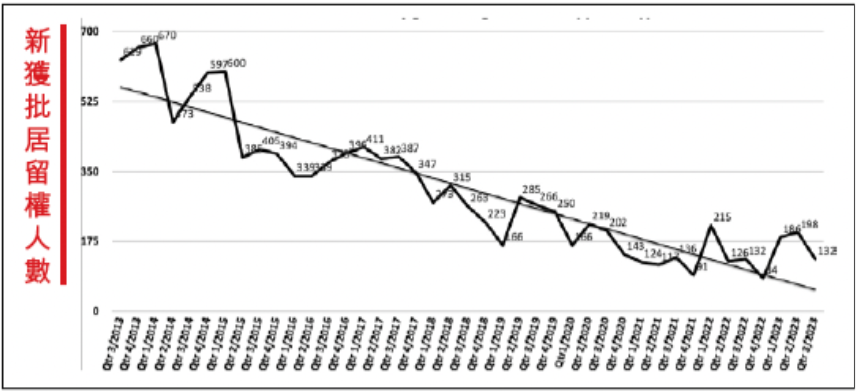
在此,我們繼續就澳門居民的生活講述一個令人氣餒的故事。購置住宅物業仍令人感到高不可攀,對年輕人來說更幾乎是不可能;就業仍有待真正實現大規模多元化。在澳門的大部分社區,廢棄物的分類管理和回收仍處於起步階段,各類環境污染繼續威脅著大眾的生存;貧窮之神繼續糾纏濠江;小城也未能擺脫那些令城市看上去千瘡百孔的髒亂的建築工地。在這座自詡國際化、多元文化的城市,新獲批居留權的人數卻在過去十年持續下跌(見圖)且數量少之又少(2023 年第三季度僅132 人),居留問題導致國際關係破裂。
然而,作為送給特區的聖誕禮物,請參閱以下由ChatGPT生成的聲明(充斥著2023年的氣息),“澳門憑藉其充滿活力的旅遊和娛樂盛事吸引了來自世界各地的數以百萬計旅客”。雖然旅遊業或確實充滿活力,澳門居民卻要應付街道上、餐廳和公共場所擁擠的人群和震耳欲聾的噪音,還有那些水洩不通的熱門景點。
ChatGPT的精彩聲明進一步提出,“澳門在大灣區內的戰略位置使其成為重要的交通和物流樞紐。其完善的交通基礎設施……促進了整個地區的貨物、服務和人員的順暢流動。澳門作為交通樞紐的作用,增強了區域互聯互通,提升了自身的經濟競爭力” 。 請讓那些依賴巴士通勤的居民閱讀這一段文字,他們每天就如同澳門特產罐頭沙丁魚一樣被無情擠壓;那些因嚴重交通堵塞或那綿延數公里的汽車長龍而惱火的司機也應細讀這段文字,他們往往氣憤卻無助地與旅遊巴士和巴士隊伍互相遙望。那些貨車司機駕駛掛著“veiculo longo”標誌的貨車,試圖在澳門樂高積木般的道路上穿梭、挑戰那佈滿施工陷阱的急轉彎。澳門平均每月發生交通意外1,000多宗,月均受害者數量超過380人(其中行人受害者超過36人)。在運輸方面,過去十年海運貨櫃吞吐量和海運貨櫃流量的趨勢線完全持平,即沒有變化。
ChatGPT在此進行一次巧妙的推廣,展示了其非人工智慧、選擇性和失衡的判斷。 ChatGPT大肆吹噓的、熱情澎湃的魅力純屬無知的樂觀主義的單方面勝利。澳門對城市居民、家庭、國際人士和外地僱員的積極投入在何處?聖誕公公何時才能糾正這些錯誤呢?

Macau Business | November 2023
Keith Morrison – Author and educationist
Macau wisely looks to mainland China, South-East Asia, and Portuguese-speaking countries, as part of its economic diversification. However, to be a player on the international stage and world-wide market, it must look wider, and, hence, the standard of English in Macau must improve dramatically and urgently. There is nothing new here; it has been said for decades, but, with a few exceptions, the persistent problem of hopeless English in Macau obstructs Macau’s international development. Ask university teachers in Macau about the standard of many Macau students’ English; the honest ones will tell you that it is awful and is worsening. Many Macau students cannot write and speak a single sentence or even a single phrase in correct English upon entry to tertiary institutions.
Macau can ill afford to ignore the need for fluent English. This is not linguistic imperialism; rather, it is the promotion of necessary linguistic capital, i.e. proficiency in a high-status, world-wide language that is used by groups with economic, social, cultural, and political power in local and global societies. Put simply, linguistic capital can promote economic capital. Fluency in English offers students access to better life chances, with powerful and long-lasting effects on careers, and it offers benefits to Macau’s economy and, thereby, its society: micro and macro benefit. Insisting on high quality English in Macau is neither special pleading nor ideology; it is a commonplace platitude in pragmatic Macau. ‘Nothing new there’, you say, so why does English continue to be so poor in Macau?
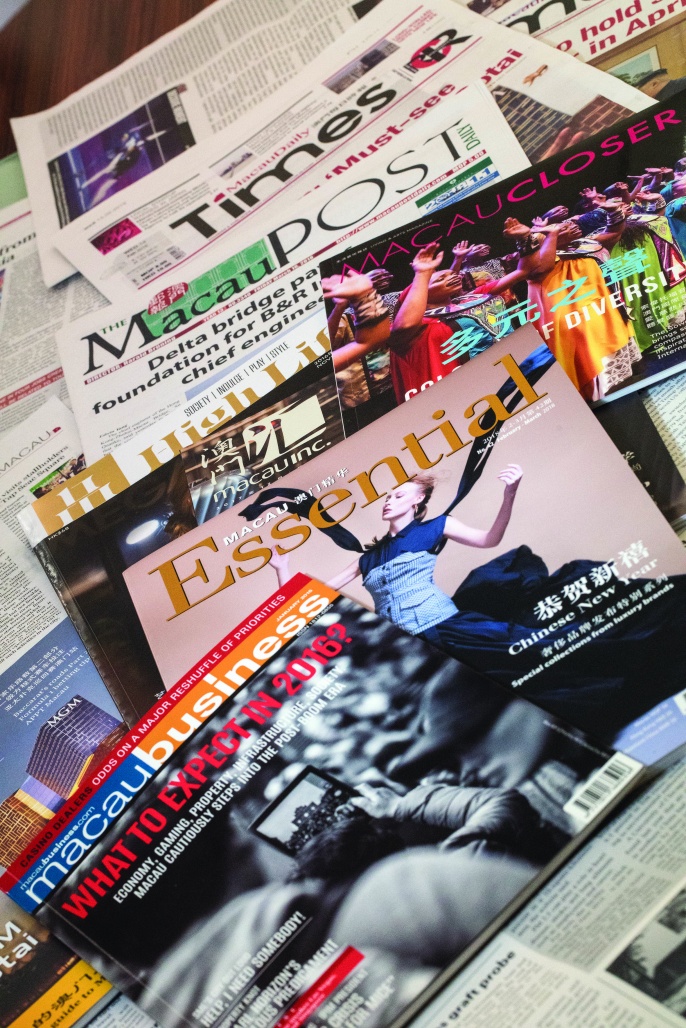
Macau owes it to its students to insist on high standards of English. Schools and tertiary education institutions in Macau have a moral duty to ensure that their students can work with English at an international standard. Yet what do we see: supposedly English medium universities and English medium strands in Macau schools teach in Chinese when they say that they teach in English, and English teachers in Macau’s schools use ineffective teaching strategies. Further, secondary schools in Macau pass and graduate their Form 6 students, thereby giving them university entrance, a compulsory component of which is proficiency in English, yet the students’ English is pathetic, virtually non-existent.
If students’ English is awful, despite 15 years of English at school, then their English performance must be failed. However unpleasant, this is a moral responsibility that Macau schools should uphold, but many do not; why not? Why such recalcitrance to act honestly? Forget about Macau’s Joint Admission Examination in English for four of Macau’s tertiary education institutions; almost no notice seems to be taken of its results, even though Macau schools spend months drilling their students for it. Macau’s schools and tertiary institutions must not continue their quiet, collusive neglect of this major element of internationalisation, diversification, globalisation, and economic development. They must be honest: if students do not meet a decent standard, then they fail. Macau’s schools must stop graduating students who are incompetent in English, e.g. raising marks so that students pass, when English is a requirement for graduation. That is dishonest and immoral.
For Macau to flourish, it needs a rich multiglossia. This means that students must reach external, international English standards, not the low, internally set standards that so many of its schools far too readily credentialise. For decades we have had study after study of students’ poor motivation to learn English in Macau, their lack of exposure to English outside school, archaic teaching strategies in school, and the irrelevance of English in many walks of life in Macau. These are insufficient excuses. External, international standards of English are absent in many Macau schools, and they get away with low standards. Why not compel Macau’s secondary schools to have English examinations that are set and marked by external, internationally accredited examination boards, with internationally prescribed curricula, which only a handful of schools in Macau currently do? Importantly, why not ensure high stakes consequences of failure in English performance at school?
None of this is new. It is history, yesterday’s news, an endless restatement of the blindingly obvious, but the problem remains. English does not threaten Macau’s official languages, nor diminish Putonghua, nor threaten Chinese culture and language. Why is so little happening?
]]>
文:Keith Morrison | 作家及教育家
澳門明智地將目光投向中國內地、東南亞和葡語國家,將之視作城市經濟多元化重要元素。然而,只有開闊眼界,方能成功躋身國際舞台和世界市場。因此,澳門有必要大幅提升城市的英語能力水平。經過數十年的討論,這早已是陳腔濫調,但除了少數例外,澳門令人感到絕望的英語水平問題依然是城市國際化的障礙之一。若您向澳門高等院校的老師查詢本地學生的英語程度時;誠實的人們將告訴您,情況很糟糕並正在惡化。許多本地學生在入讀大專院校時無法運用英語正確地寫或說一個完整句子,甚至一個短語。
澳門不能忽視對英語的語言需求。這絕非語言帝國主義;相反,此舉旨在提升城市必需的語言資本,例如能夠熟練地使用一種佔主要地位的世界通用語言,且這種語言備受本地和全球社會具經濟、社會、文化和政治影響力的群體所推崇。簡而言之,語言資本能夠助力經濟資本的成長。流暢的英語能力為學生創造更優質的人生機遇,對職業生涯產生強大且持久的影響,特區經濟、社會亦可從中獲益良多:無論是微觀效益,還是宏觀效益。在澳門範圍內堅持提升英語能力水平,這既非特殊訴求,也不是一個意識形態的口號;對務實的人們來說,這是老生常談了。即然這是“舊調重談”,那麼澳門的英語能力為何仍如此慘不忍睹?
澳門有責任堅持提升學生英語水平。從道德上而言,本地學校和高等教育機構有義務確保學生能夠使用符合國際標準的英語。但事實上:那些號稱以英語授課的中小學和高校,實際上卻大多使用中文授課,英語教師採用的教學策略亦收效甚微。此外,本地中學向其中六學生頒發畢業證書,畢業生入讀大學;熟練使用英語作為完成高等院校學業的必要條件之一,鑒於學生英語水平實在太低,這一要求幾乎名存實亡。
儘管學生已在學校學習了15年英語,英語能力卻極其薄弱,那麼學校的英語教育也必定一敗塗地。誠然,這令人耿耿於懷,作為學校應該堅守的道德責任一再遭到漠視;為什麼?為什麼無法誠實行事?忘掉澳門四所高校合辦的英語招生考試吧;幾乎沒有人會留意其結果,儘管本地學校花了數月時間對學生進行訓練。面對城市國際化、多元化、全球化和經濟發展過程中不可或缺的要素,澳門的學校和高等教育機構絕不能繼續心照不宣地保持沉默、冷漠以對。他們必須抱誠守真:如學生確實未有達到體面的標準,那便是學校的失敗。澳門學校必須停止讓英語能力欠佳的學生畢業,例如當英語被列入畢業要求時,卻調高考試分數讓學生合格。這是不誠實且不道德的。
豐富多彩的語言應用是澳門實現繁榮的必需品,這意味著學生的英語語言能力必須達到國際標準,絕非許多學校內部設定的低標準。經過數十年的持續研究,我們發現澳門學生學習英語的積極性低下、校外缺乏英語接觸、學校教學策略守舊且本地居民生活與英語脫節等問題。這些藉口都不足以令人信服。本地許多學校尚未採用國際認可的英語標準,卻自欺欺人地定下不切實際的低標準。為什麼不強制要求本地中學推行由國際認可的考試委員會制定和評分的英語考試,並採用符合國際規定的語言課程?目前,澳門只有寥寥數家學校以此方式行事,為何呢?重要的是,為什麼不對英語教育失敗的學校進行嚴處?
這些都不是新鮮事,是歷史,是舊聞,是對顯而易見的事實無休止的重複,問題不曾解決。英語不會威脅澳門的官方語言,不會削弱普通話的地位,更不會威脅中華文化和語言。為何就總是停步不前?

文:Keith Morrison | 作家及教育家
據說很久以前,有一隻公雞和狐狸。一天,狡猾的狐狸稱讚公雞的歌聲是世上最美妙的,尤其是當他閉上眼睛歌唱時。如此誘惑人心的奉承令公雞折腰,當他閉上雙眼,拍動翅膀,宛如冉冉巨星般高歌時,狐狸銳利的雙爪抓住了他並飛奔離去。驕傲往往蒙蔽了人們的雙眼,對真實的情況視若無睹。這個出自英國詩人喬叟的小故事恰恰繪聲繪色地寓言了澳門的實際。這座小城慣於自吹自擂,總是漠視自我的限制且對現實視而不見,紙上談兵多於身體力行。
澳門將經濟復興的希望和抱負全數寄託在以推動經濟多元化為目標的“1+4”策略之上,可謂當中的典型例子。這座城市的幻想翅膀甚至伸展至國際旅遊業以外的領域,想像憑藉未來(1)醫療服務、(2)金融服務、(3)高新技術,以及(4)大型展會和活動等行業的蓬勃發展,成功在本地打造符合國際標準且極具吸引力的多個中心。
根據特區當局的初步規劃,所有這些宏圖大志都將在未來五年內實現!如此令人震驚!如斯狂妄自大!實在是率性盲目!(那曾預言“必勝”的澳門輕軌系統如今卻成為了一場代價高昂的失敗)。緊閉雙眼,搧動翅膀,驕傲高歌,自我吹捧,漠視實際;這就是澳門,一個有趣的小城市,幻想著超越自己的重量。
就“4”個發展領域而言,試想一下以下反應。
您認為到哪裡能夠找到最優質的醫療服務?新加坡、倫敦、波士頓、夏威夷、曼谷?答案都不是;我愛澳門。確實莫名其妙!
您認為到哪裡能夠獲得最頂尖的金融服務?倫敦、紐約、上海、香港、新加坡?不;我喜歡骯髒的小澳門,這裡以“創意洗錢”聞名。
您認為到哪裡能夠提供最前沿的技術?矽谷、班加羅爾、東京、倫敦、紐約?不;對我來說,就只有澳門!
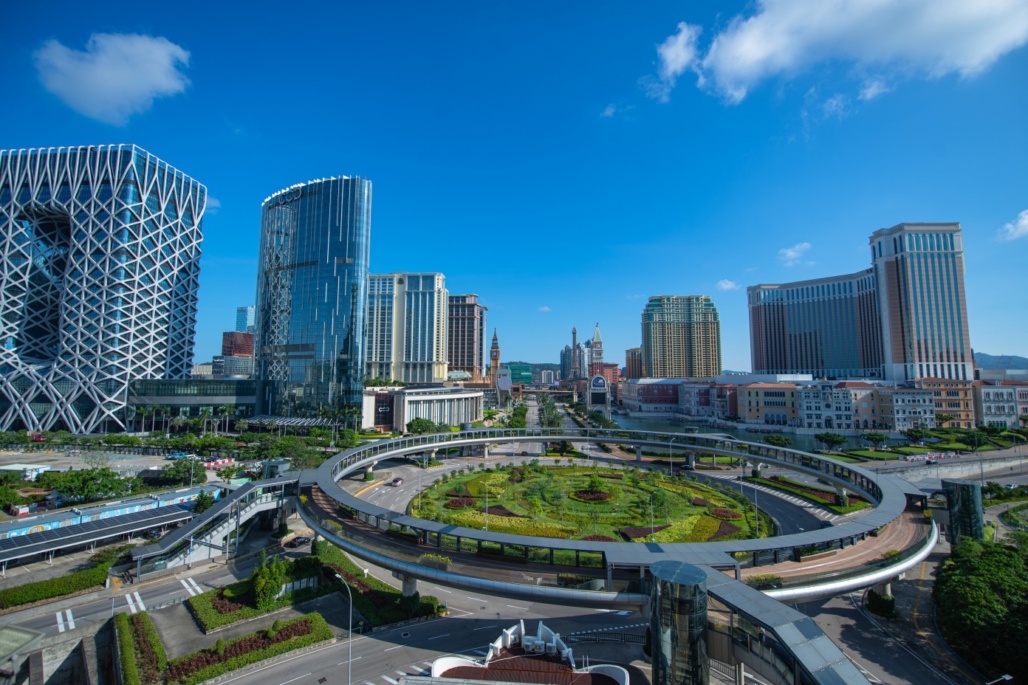
您認為哪裡最適合舉辦大型文化、體育和會議活動?倫敦、巴黎、紐約、新加坡、巴塞隆納、杜拜?都不是!眾所周知,正確的答案只能是澳門。
澳門的雄心壯志根本無法實現。這裡缺乏必要的專業知識、經驗、技能、基礎、平台、品質和聲譽,無法說服投資者將資金投入“1+4”領域。這種多元化的口號不過是不切實際、虛無縹緲的夢想,實屬虛構,甚至被認為是荒誕的笑話。
讓我們再看看那些擁有國際級技能的海外專家因澳門不透明的移民和勞工政策陷入了苦苦掙扎的境地。澳門本地高素質、經驗豐富、知識淵博且技術精湛的專家在哪裡? 國際級的經濟商業培訓機構和學生又在哪裡?澳門處理創新領域事務的法律架構準備程度如何?是否適合?覆蓋面足夠廣泛?澳門是否已經具備了信任、安全、可靠性和透明度等等不可缺失的要素?為推動“4”大範疇發展所需的體制、有形和無形的結構和基礎設施網絡是否準備妥當?澳門為踏上這段旅程並承擔風險作了何種程度的準備?為一系列發展奠定堅實基石的安全網、金融保障、基金和改革在哪裡?已經確定並解決的成本/效益和風險分析、評估、保障和保護措施有哪些?所有能夠證明這一切的證據又如何查閱?
對於一個墨守成規、守舊管治、嚴重缺乏透明度、充斥著卡夫卡式繁瑣法規和行政程序、自由定義含糊、官僚機構設置複雜的城市而言,如何能夠吸引投資者、開發商或賭客注資?要知道這裡甚至無法提供足夠的保護和保障。將澳門打造成下一個杜拜、新加坡、倫敦或紐約所需的資金、透明度、吸引力、知識、能力和便利何在?繼續沉醉於白日夢。
自以為能夠飛越太陽,逃脫懲罰的伊卡洛斯落得從天上墜落的苦果,這是一個關於驕傲、妄想和天真孩童的寓言故事,警惕人們自滿且不切實際的危險。作為一個經濟仍不成熟且青澀的城市,澳門政府提出的目標十之八九是虛幻、驕傲、傲慢且自大的。官方言辭冠冕堂皇、空洞、謬誤、迷惑性十足,所提出的理據過於樂觀和正面,無法令人信服。對真實世界中,那些完善、經驗豐富、明智的國際供應商之間的龍爭虎鬥視而不見。信奉現實主義的人士少之又少。
不自量力的伊卡洛斯、自滿的公雞都是狂妄自大者的前車之鑒。

Macau Business | October 2023
Keith Morrison – Author and educationist
Once upon a time there was a cockerel who succumbed to flattery when a wily fox told him that he had the most magnificent singing voice, especially when he sang with his eyes closed tightly. The cockerel closed its eyes, flapped its wings, and sang like a superstar, whereupon the fox grabbed him and ran off with him. Pride blinds people to the real situation. This Chaucerian tale is an allegory of Macau; Macau flatters itself, is perennially blind to its limitations, delights in closing its eyes to reality, and repeatedly has more talk than substance.
Take, for example, Macau pinning its economic hopes and aspirations on its ‘one plus four’ strategy for economic diversification. It has spread its wings of fancy beyond international tourism, to imagining that its prospective (1) health services, (2) financial services, (3) technology, and (4) large-scale events can become centres of international quality and attraction in Macau, and all within a five-year initial time scale. What stunning hubris this is, and what blindness accompanies it (look at Macau’s light rail system: doomed to succeed; to date an expensive flop). Close your eyes, flap your wings, sing with pride, flatter yourself, and be blind to reality; that’s Macau, a funny little place with delusions of being able to punch above its weight.
For each of the ‘plus four’ development areas, imagine the following responses.
If you want the best, highest quality health services, where do you go? Singapore, London, Boston, Hawaii, Bangkok? Answer: no; I love Macau. Very odd.
If you want the best financial services, where do you go? London, New York, Shanghai, Hong Kong, Singapore? No; I love grubby little Macau, with its reputation for creative money laundering.
If you want the best technology, where do you go? Silicon Valley, Bangalore, Tokyo, London, New York? No; it’s Macau for me!
If you want the best, large-scale, cultural, sporting, and conference events, where do you go? London, Paris, New York, Singapore, Barcelona, Dubai? No, no; get it right: everyone knows that it’s Macau. Not.
Macau’s ambitions simply do not ring true. Macau does not have the necessary expertise, experience, skills, foundations, platforms, quality, and reputation to be able to convince punters to put their money into the ‘plus four’ development areas. Such diversification is an image of air, a wonderland dream, a fiction, even a joke.
Look at how the necessary international experts with international skill sets struggle to cope with Macau’s opaque immigration and labour practices. Where are Macau’s own high-quality local, experienced, knowledgeable, skilled experts? Where are the necessary international-level economics and business training institutions and students in Macau? How far is Macau’s legal framework prepared, suitable, and sufficiently extensive, for handling innovation? Where are the necessary trust, security, reliability and transparency in Macau? Where are the necessary institutional, tangible and intangible structural and infrastructural networks for the ‘plus four’ developments? Where is Macau’s readiness for embarking on this journey and taking risks? Where are the safety nets, financial security, foundations, and reforms needed to enable such developments to be more than castles built on sand? What cost/benefit and risk analysis, evaluation, safeguarding, and protections have been identified and addressed? Where is the evidence of all these made available for everyone to see?
What could possibly attract investors, developers, or punters to put their money into a territory that is hidebound by restrictive practices, Kafkaesque regulations and procedures, somewhat feudal governance, a monumental lack of transparency that reaches deeps into its heart, uncertain freedoms, labyrinthine bureaucracy, insufficient protections, and with neighbours and family members looking over Macau’s shoulders to control it? Where are the money, transparency, attractions, knowledge, ability, and facilitation coming from, for Macau to be the next Dubai, Singapore, London, or New York? Dream on.
Icarus thought that he could fly into the sun and get away with it. His fall from the sky is an allegory of pride, delusion, and the naivety of immature youth, and of the dangers of believing that you can do things that you cannot do and that don’t work. Look at economically young and immature Macau: ten out of ten for dreams, pride, arrogance, immodesty, and high-sounding, empty, fallacious, deceptively enticing words. Ten out of ten for optimism, hope, the absence of convincing evidence, and blindness to real, red-in-tooth-and-claw competition from established, experienced and worldy-wise international providers. Nought out of ten for realism.
In the wake of hubris comes nemesis; witness Icarus. Cock-a-doodle-doo.
]]>
Macau Business | September 2023
Keith Morrison – Author and educationist
One of the routine mantras that one hears every day in Macau is its international make-up and societal fabric, which reaches back centuries. Walk down the city streets of Macau and you will see people from many nations, be they tourists or non-resident workers.
However, Macau is not as international as it professes to be, and in many senses. In terms of population, the 2021 census of Macau showed that, setting aside residents who were born in mainland China and the Greater China region, Macau had only 76,000 (rounded) residents from outside Macau, and only 11 per cent of its population were non-Chinese, compared to some international countries, for example, in 2020: the USA (50 per cent), Germany and the UK (16 per cent each).
In terms of visiting Macau, it is relatively easy to be international in Macau if you are a tourist, as they are the lifeblood of its economy. However, travel to and from Macau for some international tourists is a pain, as the number of direct flights from outside East Asia is miniscule. Perhaps it is hardly surprising that, for inter-continental tourists, Macau is still unattractive. Data on international tourists reveal a 43 per cent per drop in international tourists since the end of 2018 to the present, and if we remove the number of visitors from mainland China and the Greater China region, there is an 84 per cent drop in international tourists.
How easy is it to be an international employee in Macau? For many it is very far from easy. The number of non-resident workers in Macau dropped from the highest point in the first quarter of 2020 (171,000, rounded) to the first quarter of 2023 (148,000, rounded). But this masks big differences: Philippines (down 16 per cent), Vietnam (down 51 per cent), Hong Kong (down 43 per cent), India (down 20 per cent), Indonesia (down 49 per cent), Malaysia (down 63 per cent). The pandemic saw off thousands of international, non-resident workers at the drop of a hat, only to require many of them to come back when the economy picked up, i.e. a disposable commodity until needed: Marx’s reserve army of employees, particularly for lower-skilled jobs. Portuguese workers and their families left Macau, intending never to return. Why else is this, apart from the pandemic and its effects on the downturn in Macau’s economy?
One explanation is this: the social philosopher Axel Honneth critiqued societies for their failure to recognise and respect subaltern, marginalised, and disempowered groups, i.e. for the failure to accord social justice and legitimate rights, dignity, identity, civil rights, status, decent work, and esteem to small, disempowered groups in society who are unable to gain access and opportunity to lead a fulfilling life. This applies to many international, low-skilled, non-resident workers in Macau. Do recognition and respect really happen for Macau’s non-resident workers? Look at Macau’s immigration and labour departments and ask how well they meet this standard. Many of Macau’s non-resident workers are treated as third-class labourers, particularly if they are regarded as low-skilled.
Recognition, for Honneth, is at the centre of moral and ethical life, treating people humanely and respectfully, rather than instrumentally, as objects and commodities. Humanitarianism is a defining feature of a truly international society. How strong is this in would-be international Macau? Who are the first to go when times are hard for the economy? Even after the re-opening of Macau to foreign visitors and workers, job security for non-resident workers remains extremely frail, yet Macau relies on them.
Macau is very happy to welcome tourists from across the world, but it has few adequate protections and respect for its non-resident workers; there is misrecognition of their worth as employees. As the pandemic revealed, to be an international worker in Macau is to be fragile, expendable, a perishable good. How international is that? Sadly, a condition for being an international non-resident worker in Macau is to be silent, compliant, accepting, obedient, and easily dismissible.
Just when diversification is the name of the game in Macau, and with the manifold benefits of diversity that internationals can bring, how sensible is it to treat its international non-resident workers so poorly, and with lamentable transparency and accountability? How much do Macau employers care about their non-resident workers? Just how international is Macau, really? No wonder the Macau government, less caring about its international workers, has to try endlessly to entice local talent to return from abroad to Macau.
]]>
文:Keith Morrison | 作家及教育家
在澳門,城市的國際化構成和社會結構已成為了人們耳熟能詳的日常口號。要知道有關歷史可追溯到多個世紀前。於澳門的大街小巷穿梭遊走,你會看到來自不同國家的人士,無論是旅客,還是工作人員。
然而,從多個不同方面看來,澳門的國際化程度似乎言過其實。就城市人口而言,根據2021年人口普查數據,撇除在中國內地和大中華地區出生的居民,澳門只有7.6萬人(四捨五入)來自澳門以外,其中非華裔人口僅佔總人口的11%,遠低於其他國家,以2020年數據為例:美國(50%)、德國和英國(各16%)。
就城市觀光而言,如果你是旅客,確實能夠較輕鬆地融入本地的國際氛圍,因為旅客始終是澳門經濟的命脈。對於某些國際旅客來說,往返澳門的交通令人感到頭痛,因為城市連接東亞以外地區的直飛航班數量甚少。在洲際旅客看來,澳門自然仍未有足夠的吸引力。國際旅客數據顯示,自2018年底至今,國際旅客數量下降了43%,若撇除來自內地和大中華地區的旅客,則國際旅客的跌幅高達84% 。
加入澳門國際僱員的行列有多難?對於許多人來說,這絕非易事。澳門外地僱員人數從2020年第一季度的最高點(171,000人,四捨五入)下跌至2023年第一季度(148,000人,四捨五入)。當中的差異巨大:菲律賓(減少了16%)、越南(減少了51%)、香港(減少了43%)、印度(減少了20%)、印度尼西亞(減少了49%)、馬來西亞(減少了63%)。新冠肺炎疫情讓成千上萬的外地僱員在瞬間成為了城市急於擺脫的不速之客;直至城市經濟復甦後,他們才收到返澳的邀請,就如同只有在需要時才使用的即棄用品:馬克思的僱員後備軍,尤其是對於低技能群體來說。葡籍僱員及其家人在離開之時就已決定了永不返澳。除了疫情及其對澳門經濟的衝擊外,還有什麼原因呢?
一種解釋是:社會哲學家Axel Honneth批評社會未能承認和尊重底層、邊緣化和被剝奪權力的群體,即未能賦予其社會正義和合法權利、尊嚴、身份、公民權利、地位、體面工作;社會中的弱勢群體未有獲得尊重,無法獲得過上充實生活的途徑和機會。 這適用於澳門的許多國際、低技能、非本地的僱員。澳門外地僱員真的得到了社會的認可和尊重嗎?看看澳門的出入境和勞動部門,他們的表現如何。許多在澳門工作的外地僱員被視作三等勞工,特別是當他們被歸類為低技能的時候。
對Honneth來說,認可是道德和倫理生活的核心,以人道和尊重的方式對待他人,而非工具性地把他們視作物品或商品。人道主義是真正國際社會的一個決定性特徵。國際化的澳門表現如何?當經濟陷入困境時誰最先被迫離開?即使澳門向外國旅客和僱員重新張開雙臂,外地僱員的就業保障仍極其脆弱,但澳門對他們的依賴卻不曾減退。
澳門熱烈歡迎來自世界各地的旅客,卻未能向外地僱員提供足夠的保護和尊重;他們作為員工的價值被誤讀。正如疫情所揭示的那樣,澳門的國際僱員隊伍不過是脆弱且易腐爛的損耗品。國際化程度能有多高?可悲的是,成為澳門非本地僱員的一項條件是保持沉默、順從、接受、聽話、容易被解僱。
當多元化成為澳門遊戲的代名詞,且國際人士可為城市的多元化進程帶來多重好處時,特區政府卻以如此糟糕的透明度和問責制處理外地僱員問題,這是否明智?澳門雇主有多關心外地僱員?澳門的國際化程度究竟有多高?難怪澳門政府對國際僱員無動於衷,必須不斷嘗試吸引海外的澳門人才回流澳門。

文:Keith Morrison | 作家及教育家
小城再次全速開動,擁抱夏季旅遊業高峰:旅客絡繹不絕,旅遊巴士隨處可見,娛樂場重新展現炙熱的活力。然而,博弈的版圖超出了娛樂場。
幸運遊戲是澳門道路上的一大特色。本地司機在城中約445公里的公共行車道路上行駛時,總是險情不斷。道路安全威脅無處不在,從亂過馬路的行人到那些肆意破壞駕駛禮儀的的士、摩托車,尤其外賣車手。這些道路使用者總是幻想化身世界錦標賽大獎賽賽場上的職業車手,奮力搶先,為爭奪最高榮譽而罔顧交通法規的一切約束。這場車道上的博弈除了時刻了解道路的最新情況,例如心血來潮的道路封閉或改道等,駕駛者還會面對令人沮喪或憤怒的場景、不顧一切地冒險,以及交通事故。
澳門登記在冊的車輛數量在過去五年期間略有增加,從約239,000輛增至約250,000 輛(即2023年初,每公里行車道路上約有560輛車輛),澳門的交通事故宗數並沒有相應增加。事實上,數據呈下滑趨勢。對於統計愛好者來說,澳門車輛數量與城市交通事故數量之間的簡單對比表明,登記車輛數量與交通事故數量之間的解釋性關係甚微(26.6%)。 那麼,如何解釋下表交通意外數量下降的趨勢線呢?
本地司機只能甘心忍受其他司機公然的敵意?尤其是的士司機、外賣車手、貴價私家車車主。就因為這些自以為富有和強勢的道路使用者相信自己能夠為所欲為?事實如是。
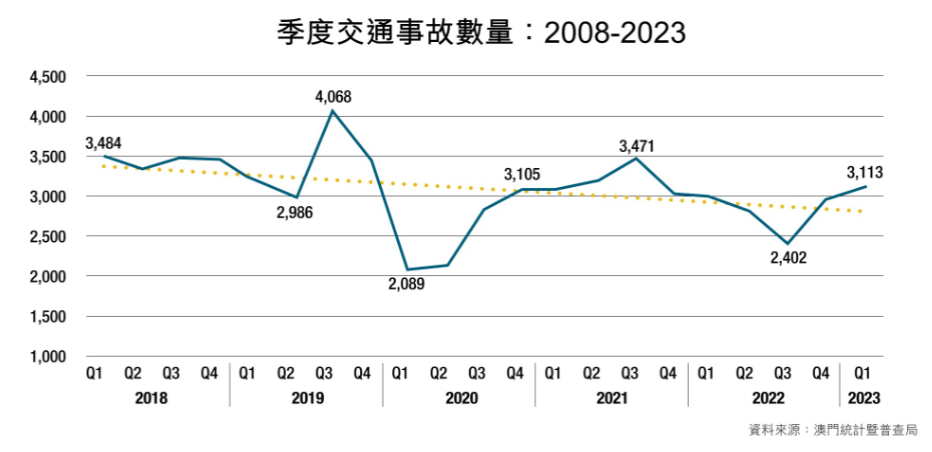
許多本地居民的寬容本性(除了那些為了贏得幾秒鐘的時間就甘願冒著生命危險,以狂妄的速度於車流中隨意穿插的速度狂人)也是原因之一?事實如是。
某些司機為接送親朋戚友或交收物件就隨意停泊路邊,尤其是在那些狹窄的街道上,後方司機除了靜心等待,直到那些漫不經心的人士優哉悠哉地繼續前進之外,就別無他法? 事實如是。
或許是因為澳門司機的安全駕駛能力越來越強? 不!為應對並減少因司機違反道路使用規則或視駕駛禮儀為無物而造成的意外,小城的行車道路被一排排不成比例且醜陋的護欄隔開。
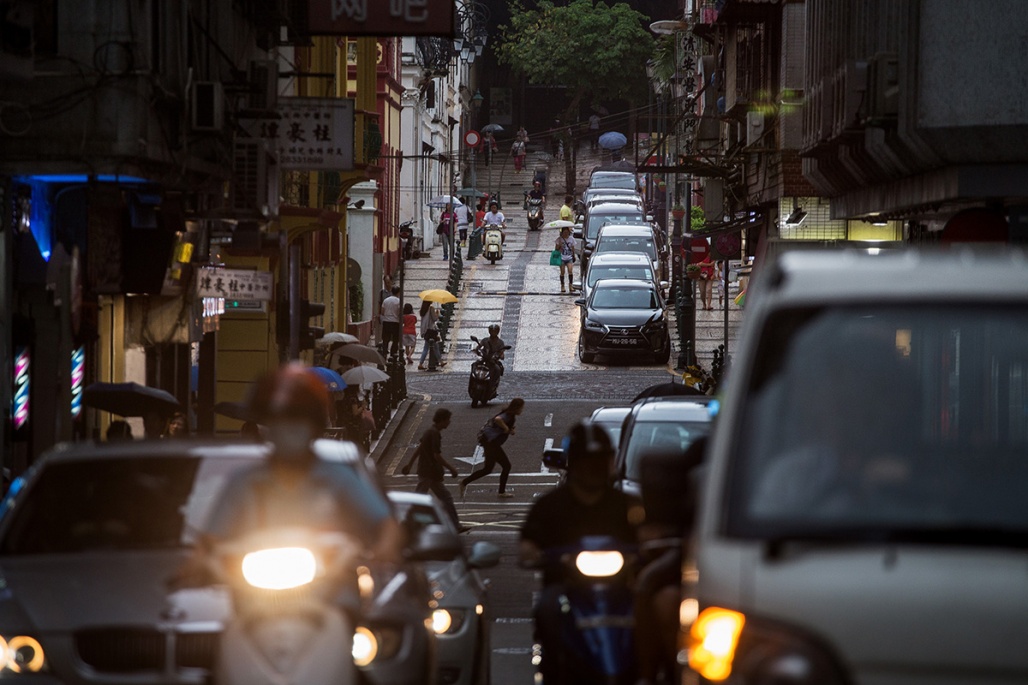
各區交通擁堵導致車速下降,尤其是當交通分流毫無預警地實施,只為了迎合特區政府病入膏肓的強迫症和無休止的道路施工?事實如是。
由於城市道路路面質量較差,數小時的雨量便能滴出坑洞,導致車道封閉? 事實如是。
由於政府為舒緩交通擁堵付出的努力未能真正發揮作用,即使設立了數之不盡的交通燈、監控攝像頭、值班警察,甚至改變了城市道路佈局、新建了道路和快速道路和減速帶(“沉睡的警察”)? 事實如是。
原因眾多,但當中只有少數是積極的。所以,司機們要小心了;魯莽的夏季給澳門行車道路上的博弈增添了魅力。如果能與其他城市一樣,為騎單車的人士提供真正的保障就好了。但在澳門,那是十分遙遠的事,機動車輛始終佔據澳門的主導地位。

Macau Business | August 2023
Keith Morrison – Author and educationist
Here we are, back in full-throttle summer tourism in tiny Macau, with visitors galore, lines of tourist coaches everywhere, and the casinos back on course to welcome gamblers. However, gambling reaches much wider than Macau’s casinos.
Games of chance feature strongly on Macau’s roads. Macau’s drivers face many perils in negotiating safe passage on its 445 kilometres of lanes of public roads. Threats to road safety lurk everywhere, from jaywalkers to taxis bent on breaking every road courtesy imaginable, to motorcylists, particularly of the food delivery variety, imagining themselves to be taking part in world championship grand prix races, jockeying for position and apparently exempting themselves from any traffic laws. Add to these the game of chance in knowing whether the road that you normally take will suddenly be closed or diverted, and the scene is set for driver frustration and anger, risk taking, and traffic accidents.
Whilst the number of registered vehicles in Macau has risen in the last five years, from 239,000 to 250,000 (rounded) (i.e. around 560 vehicles for each lane kilometre of road in early 2023), the number of traffic accidents in Macau has not risen proportionately. Indeed, the graph shows a falling trendline. For lovers of statistics, a simple regression of the number of vehicles in Macau on the number of its traffic accidents indicates that the number of registered vehicles bears very little explanatory relationship (-26.6 per cent) to the number of road accidents. How, then, can the falling trendline in accidents be explained?
Is it because Macau’s drivers simply resign themselves to having to tolerate the open hostility of other drivers in Macau, particularly the taxi drivers, motorcycle delivery riders, owners of expensive cars who think that they can do whatever they wish because they are so pathetically rich and big? Yes.
Is it because of the tolerant nature of many of Macau’s citizens (that is, excluding the speed maniacs who think that it is fair game to put others’ lives at risk by weaving in and out of traffic at top speed, for the sake of gaining a few seconds of time)? Yes.
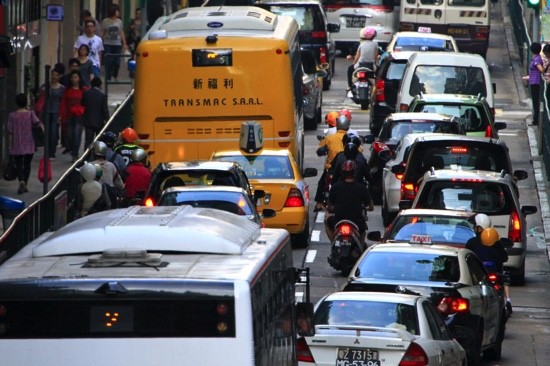
Is because drivers simply stop to pick up or drop off people or things, particularly in Macau’s many narrow streets, so there is nothing to do but wait until those drivers graciously, or often uncaringly, decide to move on? Yes.
Is it perhaps because Macau drivers are getting better at driving safely? No; it is the endless, disproportionate rows of barriers that separate lanes of Macau’s roads in order to cope with, and reduce accidents caused by, drivers who constantly disobey lane discipline and courtesy.
Is it because the traffic congestion everywhere reduces speed, particularly when traffic diversions suddenly spring up for endless road works in meeting Macau’s obsessive-compulsive disorder and major sport of digging repeatedly? Yes.

Source: DSEC
Is it because Macau’s poor-quality road surface is full of gaping holes that appear after a couple of hours of rain, bringing lane closures? Yes.
Is it because attempts to reduce traffic congestion have not really worked, even with a myriad of traffic lights, surveillance cameras, on-duty police, changed road layouts, new stretches of road and bypasses, speed reduction bumps (‘sleeping policemen’) everywhere on the roads? Yes.
There are many possible reasons, but only a few are positive. So, drivers beware; the silly season of summer brings the increased charms of games of chance on Macau’s roads. If only, as in cities elsewhere, real provision was made for cyclists. But that is light years away in Macau. Motor vehicles reign supreme in Macau.
]]>
文:Keith Morrison | 作家及教育家
最近,對本地經濟復甦的樂觀情緒籠罩著小城,但這不應掩蓋了社會和價值觀面臨的長期挑戰。陽光下必有陰影,當中或潛伏著各類蠢蠢欲動的病毒。
揭露社會病態一直是批判理論家賴以生存的工作,他們總是對診斷社會病態感到樂此不疲。首先,霍克海默(Max Horkheimer)早期提出了工具理性病原體並闡述倫理和價值觀為科學主義所作的犧牲、阿多諾(Theodor W. Adorno)認為受流行文化操縱的代用品是造成人類轉變的病因,以及馬庫色(Herbert Marcuse)的生活在消費主義且受到大眾媒體麻醉的“單向度的人”。後繼有哈伯瑪斯(Jürgen Habermas)強調大眾傳播媒介被扭曲的角色。他認為官僚主義、權力和金錢對日常“生活世界”的猛烈侵蝕,在這種情況下,企業和國家對大眾日常生活越趨強勢的掌控。 然後,霍耐特(Axel Honneth)直指社會對邊緣化人群的錯誤認識和不尊重,以及鮑曼(Zygmunt Bauman)引入“流動”的概念,描繪了一個在後現代、唯物主義、後工業信息時代背景下,不斷變化的、無形的、無根的、短命的社會。反烏托邦社會的每一個角落都藏有潘多拉的盒子。
聽起來很熟悉?若所有這些病態癥結同時存在且互相融合的話,世界將變成怎樣? 他們確實這樣做了,就在這座封閉的小小城市;堪比莎士比亞筆下女巫用“蠑螈之眼、青蛙之趾” 熬煮而成的魔毒,頗有草藥師茶話會的味道。
看看澳門對物質主義、商業和金錢的美化,將其視作進步和發展的途徑,以及對付社會動蕩和毀滅的預防劑。以Tik Tok為代表的大眾媒體世界上那些令人瞬間得到滿足的蠢話、社交網絡世界可悲的即食情誼、浪費時間的短片視頻,被遊戲化的日常生活,以及沉迷於平庸俗氣的手機娛樂世界,這一切充斥並掌控著澳門居民的生活。遊走在澳門商圈,不難發現大眾已將物質消費視為生活目的。
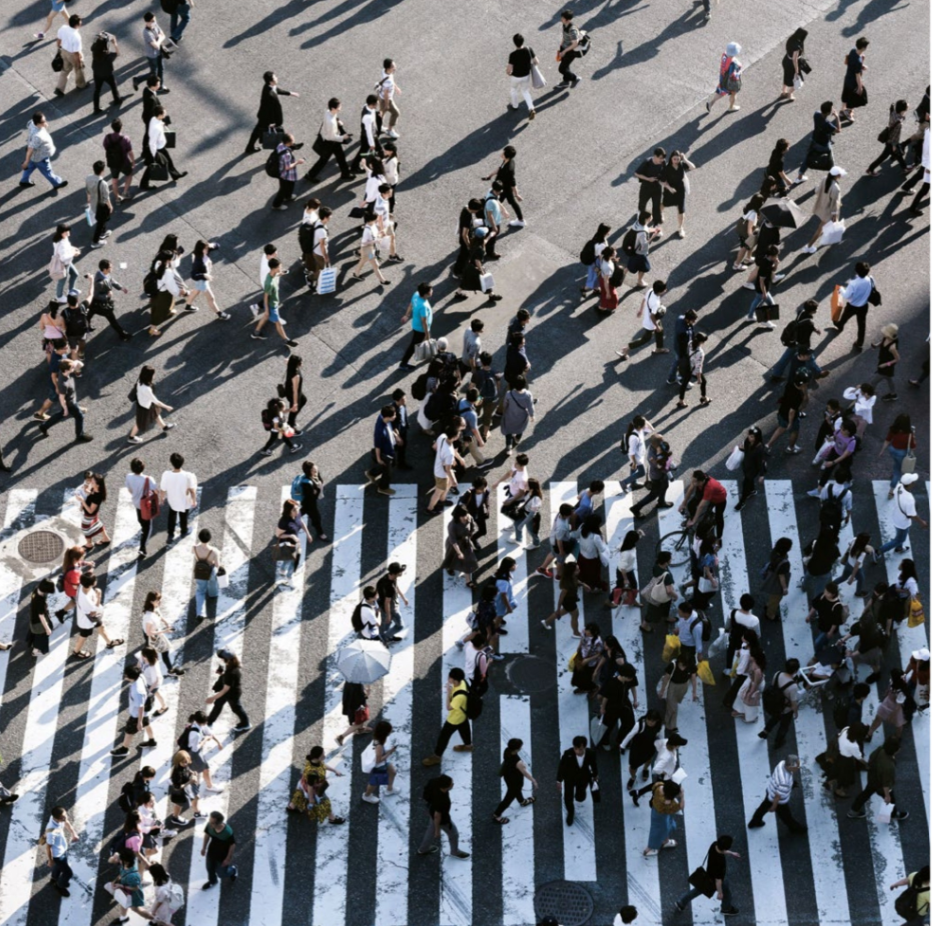
再看看澳門深受官僚主義之害的公營部門和機構。公僕們顯然不願向公眾披露有用的信息,且對一切事宜漠不關心,除了保護自己免受風險或被視為越軌外。官僚主義已滲透到澳門市民的日常生活中;政府部門人頭攢動的公共區域,排起長龍的購票隊伍,手中數不勝數的證件,“請出示身份證”成為了指定的開場白。甚至高尚的警察在獨有的“深夜截停”遊戲期間也自豪地亮出那珍貴的、漂亮的手電筒,在你耳邊吟唱著毫無意義的“甜言蜜語”,以及毫無根據的個人侮辱。力量之強大!試想一下,對城市居民無處不在的永久監視最終融入了澳門社會,無論是好是壞,無論是富裕還是貧窮,無論是疾病還是健康,直到死亡方能將您我分開。
澳門對非本地勞工的邊緣化和不尊重,儘管這群人們艱苦且低廉的工作為城市經濟奠定了基礎。只需在澳門政府部門停留數分鐘,您必定會體會到城市不曾向這些工人展示他們應有的尊嚴、尊重、禮貌、包容和價值。
是的,澳門和其他地方一樣,存在多種病態的陰影地帶。為了改善價值觀、道德、人性、公共利益、社會正義、社區、物質主義的替代品,城市居民和政府領導人付出了什麼?他們如何將社會從官僚主義和各種控制交錯而成的鐵籠中解救出來?但所有這些都得到金錢、權力精英、媒體的加護並被國家神聖化?商業領袖如何推動人類的發展?我們要的並非打造出格式化、消費者編程的掠奪性機器人。他們的大腦是真實的,非人造的?除了鼓吹物質主義、商業、關係和對他們所謂任何指定事物的愛之外,澳門的領導人還在做什麼?價值審訊、批評、辯論和倫理究竟怎樣了?被所謂的安全保護之火所消耗,安撫澳門自我審查的媒體?伴隨著澳門經濟復甦之路的鋪開,那些發熱的病原體、多種交叉傳染的病原體,以及光靠旅客的金錢無法治癒的疾病。澳門的治療師何在?社會和道德責任的領導者何在?

Macau Business | July 2023
Keith Morrison – Author and educationist
The recent euphoria over Macau’s economic resurrection should not mask the long-standing challenges facing its society and values. Sunshine creates shadows in which can lurk a range of pathologies.
Identifying pathologies of society has been the ‘bread and butter’ of critical theorists who gleefully identify social pathogens. Consider Horkheimer’s early pathogen of instrumental reason and the sacrifice to scientism of any concern for ethics and values, alongside Adorno’s disarming pathogen of the deformation of humans by ersatz, popular culture, and Marcuse’s ‘one-dimensional man’ living with consumerism and anaesthetising mass media. Then along came Habermas’s pathogen of power-distorted communication and his blistering ‘colonization’ of everyday ‘lifeworlds’ by bureaucracy, power, and money, in which businesses and the state increasingly control everyday life. Then came Honneth’s pathogen of misrecognition of, and disrespect for, marginalised peoples in society, and Bauman’s liquid, ever-changing, formless, non-rooted, short-lived societies of the postmodern, materialist, post-industrial information age. A cornucopia of diseases in every quarter of dystopic society.
Sounds familiar? What if all these pathogens existed simultaneously, fused together? They do, and in introverted little Macau; a witches’ brew of pathogens that make Shakespeare’s ‘eye of newt and toe of frog’ seem like a herbalist’s tea party.
Look at Macau’s glorified preoccupation with materialism, business, and money as the paths to progress and betterment, and as prophylactics against social instability and ruin. Look at the dumbing-down nonsense of the instantly gratifying Tik Tok world of mass media, the pathetic immediacy of social networking, the ‘chewing gum of the eyes’ of television, the gamification of everyday life, and the addiction to banal cellphone entertainment, all governing the lifeworlds of Macau’s population. Walk down Macau’s shopping malls to see materialist consumption as the purpose of life.
Look, too, at Macau’s bureaucracy that renders its government workers apparent reluctance to disclose useful information to the public and not caring about anything other than protecting themselves from risk and from being seen to step out of line. Bureaucracy penetrates the everyday lives of Macau’s citizens; look at the packed public areas of government offices and their ticketed queues lined up, clutching endless documents, the opening gambit of which is the order to show your identify card. Even our noble police do this when they play their ‘stop you late at night’ game, flashing down your car for a spot check, proudly shining their prized, beautiful torches right in your eyes, uttering ‘sweet nothings’ in your ear, and all without a word of justification for such personal affront. What power! Consider Macau’s marriage to ubiquitous, everlasting surveillance of its citizens, for better, for worse, for richer, for poorer, in sickness and in health, till death do us part.
Look at the marginalisation and disrespect shown to non-local labourers in Macau, regardless of its economy being built on the backs of their grinding, low-paid work. Just stay for a few minutes in Macau’s government offices and witness repeated failure to show these workers due dignity, respect, courtesy, inclusion, and value.
Yes, Macau, like elsewhere, lives in a shadowland of multiple pathologies. What are its citizens and leaders doing to improve values, morals, humanity, the public good, social justice, community, alternatives to materialism, and redemption from the iron cage of bureaucracy and control, all buttressed up by money, power elites, media, and sanctified by the state? What are business leaders doing to develop humans who are more than formatted, consumer-programmed predatory robots, and whose brain is real, not artificial? What are Macau’s leaders doing apart from trumpeting the reach of materialism, business, guanxi, and love for anything that they declare should be loved? Whatever happened to values interrogation, critique, debate, and ethics? Consumed in the fire of security protection, quietening Macau’s self-censoring media? Alongside Macau’s glorious economic recovery reside febrility, multiple and mutually infecting pathogens, and sicknesses that cannot be cured by reliance on tourists’ money alone. Where are Macau’s healers, its leaders of social and ethical responsibility?
]]>
Macau Business | June 2023
Keith Morrison – Author and educationist
Many employers in Macau expect their employees to have received higher education (HE). This returns to the endless question of what HE is for; is it for job knowledge and skills acquisition, attitude development, thinking abilities, creativity, problem solving, how to learn, or what? What and whose knowledge? Adding to this knotty problem, along comes Artificial Intelligence (AI), with ChatGPT, to challenge HE’s role in being what Stephen Heimans and his associates, earlier this year, called ‘gatekeepers of knowledge and producers of qualificated [sic] people’. Their concern is well founded, and businesses need creators, not copycats. Can ChatGPT and its lookalikes help or hinder here?
In Macau, the widespread order of the day for education is to be able to repeat what the teacher and the textbook say as if they are unquestionable truths to be memorised and regurgitated on demand. How useful is that for jobs? Is it to learn to do as you are told, to repeat others’ thoughts, right at a time when entrepreneurship, novelty, originality, flexibility, and the need for new ideas are on everyone’s lips in business?
How, then, does AI feature here? The arrival of ChatGPT in HE across the world (not permitted in Macau but let us not pretend that it does not exist here; it does, and we cannot hold back the tide) raises interesting questions.
On the one hand it releases HE students from reliance on the teacher and textbooks, and it can promote freedom of thought, enquiry, and interests, i.e. exactly what education and business need. It can call up, organise and present important and useful knowledge at the press of a button, saving time and unnecessary effort, again exactly what business needs.
On the other hand, for lazy HE students seeking an easy life, ChagtGPT is the cure-all for the unpleasant demands placed upon them to think for themselves and to own up to the authenticity of the assignments that they submit. They can enjoy the quick-fix injection of AI directly into what little of their brain they are prepared to devote to their studies. It becomes the solution to what they regard as the audacious, intolerable calls made on them by teachers, to think for themselves for more than five minutes a day and to do their own work. It can make students intellectually lazy, too casual, and happy for something or someone else to do their thinking and then to pass it off as their own thoughts if they can get away with it. No wonder that HE teachers across the world rail against the power and potential of ChatGPT and similar software to damage thinking and academic integrity, to promote plagiarism and theft of intellectual property and personal identity, to breach data protection, and to corrupt the learning of values and ethics. Learning and business must be ethical.
Importantly, ChatGPT raises interesting questions about the purposes and values that we wish to inculcate in HE, and the pedagogical strategies that currently feature in too many dry-as-dust, meaningless classes in Macau’s HE institutions. Is ChatGPT and/or its lookalikes any worse than students sitting silently in class whilst the teacher at the front drones on, bristling with apathy regarding whether they listen, sleep, surf the internet, chat online, play online games, or simply stare vapidly into space? Well, yes, it is worse, as all too easily it neglects learning about, and practising, responsibility and thinking for oneself about knowledge, ideas, issues, ethics, and values, i.e. exactly what business and entrepreneurship need.

ChatGPT is a powerful impetus for the need to redirect attention away from HE’s concern for largely product-focused learning and outcomes, its preoccupation with marks, metrics, and performativity, the narrow instrumentalism and technicism of much HE, immunised against considerations of humanity and discourses of values and ethics which surely should be the basis of living and business. ChatGPT raises questions of processes, meanings, and ownership of learning, what and whose knowledge, and the values, ethics, and purposes of, education, i.e. matters that ChatGPT and its lookalikes cannot decide for us.
Artificial Intelligence is an artifice, a simulacrum, a dangerous proxy for education and learning. ‘Real’ HE, with or without ChatGPT, concerns values, ethics, responsibilities and responsible citizens, existential freedoms, decision making, and the furtherance of an open knowledge democracy for humans and societies; these surely, are also the purpose of business – promoting the good life for all. How to make ChatGPT work for, rather than to deform, HE and its human, ethical, and societal purposes?
ChatGPT and its lookalikes in HE are promiscuous, seductive, flirtatious, comely, addictive sedatives, risking creating parrots rather than humans. Yet they are simultaneously a stimulant, a timely wake-up call to review HE’s key purposes, features, values, processes and contents of teaching and learning, and how these align themselves to what kind of citizens we want and what kind of employees we need, and what for. ChatGPT foregrounds the need to revive the personalised, individualised, face-to-face, viva-based, in-depth questioning and challenging of students and their thinking and enquiry, interrogating what they really know, how and why they learn, how to assess them, and what behaving ethically means. These are also what business needs.
If only ChatGPT and its lookalikes were freely available in Macau, rather than having to be an underground, illegal, banned substance. This could give rise to long-overdue changes in higher education in Macau.
]]>
文:Keith Morrison | 作家及教育家
澳門多數僱主都希望旗下員工曾接受過高等教育。這又回到了那個老生常談的問題:高等教育的目的?為了獲取工作知識和技能;提升工作態度、思考能力、創造力、問題解決能力;習得學習的方法,還是其他目的?怎樣的知識?屬於誰的知識?正如今年年初Stephen Heimans 及其團隊成員所描述,高等教育扮演著“gatekeepers of knowledge and producers of qualificated [sic] people(知識守門人和合格人類的生產者)”的角色,除了上述的棘手問題外,新興的人工智能 (AI)和ChatGPT也對高等教育的這一角色發起了挑戰。他們的擔憂是有根據的,企業需要創造者,非模仿者。ChatGPT 及其同類型產品將創造助力?還是成為阻礙?
在澳門,教育領域現時推崇的普遍秩序是學生複製老師和教科書話語的能力,就如同不容置疑的真理一樣,根據各自需要緊記在心且不時反省。這對工作能有多大用處?是不是要學會按照他人吩咐去做,重複別人的想法?但為何掛在人們嘴邊的卻總是所謂的企業家精神、創新、獨創、靈活和對新想法的渴求?

那麼,人工智能將如何發揮作用呢?當全球高等教育界張開雙臂迎接ChatGPT時,(儘管在澳門遭到禁止,但請不要假裝它不存在;它確實存在,這是我們無法阻止的潮流)ChatGPT提出了一系列有趣的問題。
一方面,它允許學生擺脫對老師和課本的依賴,促進思想自由、探究自由和興趣自由,這正是教育和商業所需要的。只需按一下按鈕,程序就能夠調出、組織並呈現重要、有用的知識,為人們節省時間、避免不必要的工作,這也正是業務所需的。
另一方面,對於尋求輕鬆生活、懶惰的高校學生來說,面對獨立思考和確認其遞交作業真實性的要求,ChatGPT是解決一切不愉快的靈丹妙藥。他們將AI注入大腦那片那為學習空出的小小天地並享受這一快速的過程。這也被學生們視作應對老師的有效方案。要知道,他們被要求每天獨立思考五分鐘以上並獨立完成工作!如此大膽且無法忍受的要求!學生們墮入了ChatGPT創造的夢境,他們變得懶於思考、過度隨意,並事事讓他人代勞,最後,一旦能夠僥倖逃脫,就將其當作自己的想法傳遞出去。難怪世界各地的高校教師都反對ChatGPT和類似軟件的應用,譴責其破壞思想和學術誠信、鼓吹剽竊和盜竊知識產權和個人身份、破壞了數據保護及損害了價值觀學習的能力、潛力和道德。道德是學習和營商所必須的要素。
重要的是,ChatGPT提出了一系列有趣的問題,當中涉及我們希望在高等教育中灌輸的目的和價值觀,以及目前澳門高等教育機構中太多枯燥無味的教學策略。與學生安靜地坐在課堂上,看著喋喋不休的老師發呆、或睡覺、或上網、或線上聊天、或玩線上遊戲相比,ChatGPT 和/或其類似產品是否造成更差的影響?嗯,是的,情況更負面,因為學習、實踐、責任,以及對知識、想法、問題、道德和價值觀的反省都被一一忽略了,但這些卻是商業和企業家精神所需要的。
ChatGPT確實能夠有效地轉移人們的注意力,令高等教育以產品為中心的主流,其對分數、評估和表演性的關注,以及所信奉的狹隘工具主義和技術主義等等擔憂不再成為熱門話題,人們對人性和話語的考慮免疫了,對價值觀和道德規範無感,但這些本應是生活和商業的基石。ChatGPT就學習的過程、意義和所有權、什麼知識和誰的知識,以及教育的價值觀、道德和目的等提出了疑問,即ChatGPT及與之相似的產品始終無法為人們做出決定啊。
人工智能是一種技巧,一種擬像,一種危險的教育和學習代理。“真正的”高等教育,無論是否存在ChatGPT,其內容都應涵蓋價值觀、道德、責任和負責任的公民、存在的自由、決策制定,以及有利於促進人類和社會的開放知識民主;這些當然也是商業的目的——促進人類的美好生活。如何讓ChatGPT為高等教育及其人類、倫理和社會目的服務?而非改造?
在高等教育領域,ChatGPT等產品就如同一劑混雜的、誘人的、充滿情調且精美的、令人上癮的鎮靜劑,伴隨著創造人體複印機的風險。然而,那同時也是一種興奮劑,一個及時的警鐘,促使我們回顧高等教育的主要目的、特點、價值觀、過程和教學內容,以及思考如何讓這些要素與我們對公民和員工的期望保持一致的方式和原因。ChatGPT 強調激活學生個性和獨立的需要,鼓勵學生直面困難、生命,對學生及其思考和探究發出深層次提問和挑戰,了解學生真正的認知、學習方法及學習目的、評估及道德行為的含義。這些也是企業需要的。
若ChatGPT及其類似產品在澳門能夠被免費使用,而非被打上地下的、非法的、被禁止的標籤,這可能為澳門高等教育帶來期待已久的變化。

Macau Business | May 2023
Keith Morrison – Author and educationist
In his 1943 detective novel ‘The Weight of Evidence’, the author, Michael Innes, rephrases the age-old debate on the meaning of science: ‘is science the disinterested pursuit of knowledge which the world may apply if it will? Or is it an activity always dependent upon economic and political demands?’
Here, 80 years on, there is a tacit nod to this question in recent comments at a press conference given by Macau’s Science and Technology Development Fund (FDCT), an important, generous arm of the Macau government which gives money to scientific projects (currently up to 470 million patacas). Here, if the report is accurate, funding for scientific projects proposals from universities will be vetted – selected in or out for funding – based on ‘their innovativeness, academic values, research methods and prospects of practicality’. Proposals from ‘enterprises’ will be vetted for their ‘technicality, feasibility, economic and social efficacy, as well as their possibility for industry-campus-research collaborations’. It sounds promising. But what, actually, is it promising?
What we are seeing here is a miniaturised version of the Triple Helix model of innovation, wherein government, industry, and universities work together for the economic and social development of the region. Such synergies can be highly productive, bringing massive social benefits, of which mainland China is one of the world’s leading examples in ‘levelling up’, reducing poverty, and developing infrastructure in a telescoped time frame.
But pause for a moment. What are the FDCT’s ‘academic values’ here? One debate in higher education is the extent to which universities, centres of scholarship and learning in all fields, have entered into a Faustian pact and sold out to mass-market, consumer-based, training-based, materialistic, product-oriented, employment-focused education rather than to the higher interrogation of values, ethics, and learning in broad and deep senses.

Universities have marginalised deliberation, questioning, disputation, debate on virtues, arts, humanities, and the pursuit of the good life by the rounded, thinking, ethically alert person and society. Rather, many have become polytechnics and technical colleges in sheep’s clothing and academic gowns, shops for commercialised, industrialised, practicalised, technicised, materialist values and products. Ironically, credentials, as a market commodity, have increasingly less value in the employment stakes, but they feed competitive mentalities in which knowledge is cheapened to a purchasable product that props us politico-economic agendas.
To restrict scientific research in Macau to selected industrial, material projects, influenced by economics and the politics of government agendas, is to straitjacket rather than to release the creativity that Macau needs but lacks so much.
Surely nobody would quarrel with the role of universities in producing high-level scientific developments of a practical nature, but this is not the question. Question: ‘at what cost to the other sciences that make humans what they are, that are faithful to the richer, deeper, view of the sciences as knowledge (scientia), is a narrow, philistine view of sciences as those which can be industrialised and commercialised and have a direct practical application?’ Answer: a cheapening of science and of the humanness of humans, and a narrowing of the traditional role of universities as bastions and protectors of the richness and diversity of human endeavour and creativity.
Question: from where do practical applications originate? Answer: pure science, abstract science, theoretical science, scholarly knowledge, broad and deep learning, critical thinking, imagining, creativity, artistry, humanity, trying out, thinking out of the box. As Kant reputedly said: ‘practice without theory is blind’; they co-exist symbiotically. So, why privilege some views of science so massively over other views of science? Why limit science to feeding factory products?
Question: what has happened to deep-seated, responsible academic ‘freedom from’ constraint, and ‘freedom for’ the unleashing of creativity, imagination, scholarship, academic pluralism, critique, diverse freedoms, rich science, and scientia? Answer: flushed down the gold-plated, immaculately produced, identically manufactured, antiseptically maintained, scientifically tested, human-proof, perfectly industrialised toilet.
]]>
文:Keith Morrison | 作家及教育家
在1943年出版的偵探小說《The Weight of Evidence》中,作者Michael Innes重新闡釋了關於科學意義的古老爭論:“科學是對知識的無私追求?且能夠被世人應用?還是,科學總是取決於經濟和政治需求的活動?”
時光匆匆八十載,澳門科學技術發展基金 (FDCT) 早前在新聞發佈會上作出的評論正是對此爭論的默許。若報道準確無誤的話,這家以為本地科研及創新項目提供資助(迄今的資助金額高達澳門幣4.7億元)為主要職責的政府機構在審批高校遞交的科研項目提案時,將以項目的“創新性、學術價值、研究方法和應用前景”為準則作出資助與否的決定;“技術水平、實際應用場景、經濟或社會效益,以及產學研合作的可能性”則被視作審批企業提案的標準。聽起來似乎終於撥開雲霧見青天。但實際上,具體的承諾是什麼?
在此,我們看到了一個微型的三螺旋創新模式,當中政府、業界和高校協力推動地區經濟和社會發展。誠然,這種協同效應的生產力甚高且能夠創造巨大的社會效益,其中內地便是世界上在短時間內“升級”、減少貧困和發展基礎設施的領先例子之一。
但是,請靜心思考。對FDCT而言,何謂“學術價值”?高等教育界存在這樣一個爭論:在某程度上,高校以及不同領域的學術和學習中心放棄對價值觀、倫理學和知識的更高層次鑽研,轉身與魔鬼簽署協議,將重心轉向以大眾市場的目標、進行以消費者和培訓為基礎、唯物主義、以產品為導向、以就業為中心的教育銷售。
對當今高校而言,對美德、藝術、人文的思考、質疑、討論和辯論均已被邊緣化了,圓潤的、有思想、有道德覺悟的人和社會對美好生活的追求亦被拋諸腦後。相反,許多理工學院和技術學院或已經成為了披著羊皮和學術長袍的商舖,被商業化、工業化、實用化、技術化,販賣唯物主義價值觀和成品。十分諷刺的是,證書作為一種市場商品,在就業市場的價值越來越低,卻助長了競爭心態,在這種心態中,知識被貶低為支持政治經濟議程的可購買產品。

將澳門的科研限制在受經濟和政府議程政治影響的指定工業、物質項目,這束縛了本地亟需釋放的創造力,要知道澳門本身就缺乏創造力啊!
當然,沒有人會對大學在推動高水平實用科學發展方面發揮的作用提出異議,但這不是癥結所在。問題:“其他科學以何代價造就了人類,這些科學忠於更豐富、更深刻的科學知識觀(scientia),是一種狹隘的、庸俗的科學觀,認為科學是可以工業化、商業化並被直接應用於實際?”答案:科學和人性的貶值,以及高校作為人類努力和創造力的堡壘和守護者的傳統角色,收窄其豐富性和多元性。
問題:實際應用源自何處? 答案:純科學、抽象科學、理論科學、學術知識、廣泛和深入的學習、批判思維、想像力、創造力、藝術性、人性、嘗試、跳出固定條框。 正如Kant所說:“沒有理論的實踐是盲目的”;它們共生共存。那麼,為何某些科學觀點能夠凌駕其他觀點,被列入優先事項呢?為何科學被局限在投餵工廠生產的領域?
問題:深層次且負責任的、不受約束的“學術自由”,以及釋放創造力和想像力、推動學術探索、多元化、批判、多樣化自由、科學豐富的學術“自由釋放”究竟經歷了什麼?答案:被鍍金、完美生產、相同製造、防腐維護、科學測試、人類防護、完美工業化的馬桶沖走了。

Macau Business | April 2023
Keith Morrison – Author and educationist
As Macau rebuilds its post-pandemic economy, one could be forgiven for believing that the good life for all has arrived, as evidenced in the manifest opulence on display in its up-market shopping malls. However, this is not the case; social justice needs attention in Macau.
Social justice, Hayek’s scornful and derisive antithesis of neoliberalism, is in limited supply in Macau, and is found wanting in several areas. Whilst social justice is a slippery term, several common areas can be identified, e.g. fair (re)distribution of wealth, resources, opportunities, rewards and responsibilities, and practical recognition of the rights of minorities.
Many years ago the United Nations identified income and ‘opportunities for work and remunerated employment’ as key indicators of social justice. These are a persistent problem in present-day Macau. When one looks at job opportunities in Macau, the number of dead-end jobs disproportionately exceeds the number of fulfilling, meaningful careers and creative, diverse employment opportunities. Why, each month, do over 23,000 employed people in Macau earn below 5,000 patacas, and over 95,000 (26 per cent of the employed population) earn below 10,000 patacas (latest figures available)? For them, social justice is a pipe dream, an irrelevance in the press for daily survival.
Social justice also includes access to housing, health care, food, social services, and attention to the poor and needy. Rawls’s celebrated theory of distributive justice noted that social and economic development should bring ‘the greatest benefit of the least-advantaged members of society’, i.e. levelling up. Does it, in Macau?
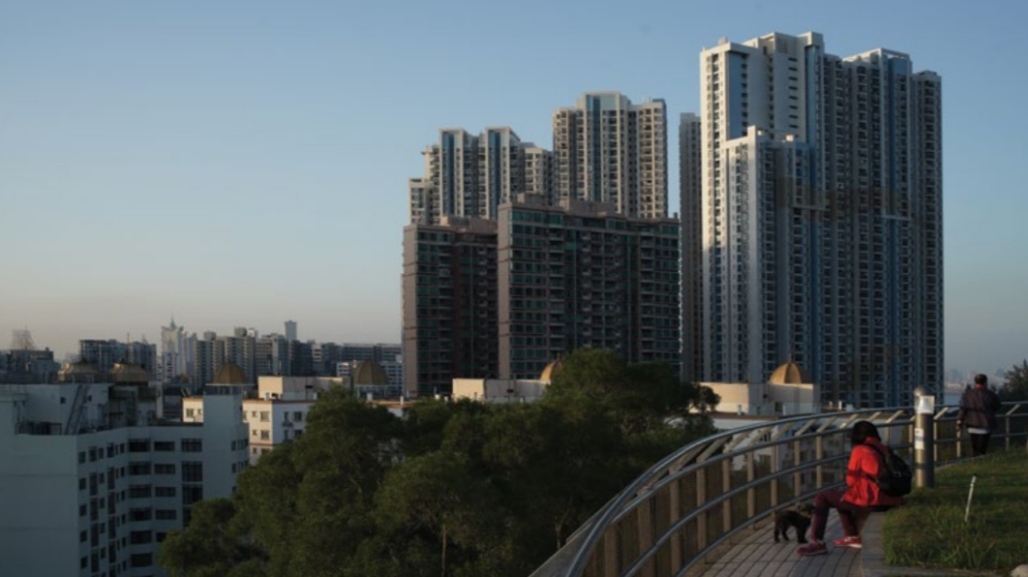
For the social philosopher Axel Honneth, the moral imperative of social justice extends beyond the ‘fair or just distribution of material goods’. For Honneth, the pathology of social injustice resides in disrespect for the identities, recognition, and empowerment of diverse subaltern groups in society, and their exclusion from access to opportunities for their own and others’ development and the good life. This pathology exists in Macau. For example, with regard to education, why are affordable, decent schools for non-Chinese speaking children of expatriate workers so limited in Macau? With regard to housing, why is it that low-skilled, often migrant, shift workers share beds and cramped accommodation in Macau, just to eke out a living? Why do people still live in converted containers and corrugated iron huts in Macau? Whilst instant ghettoes of social housing are being built on Macau’s reclaimed land, housing is simply unaffordable for huge numbers of the population, whether they are the ‘sandwich class’, the full-on banquet class, or the crumbs-from-the-rich-man’s-table class.
Health care and social care for the increasing number of Macau’s elderly population are tottering on the edge of the precipice to total disaster. Why do patients of all ages go to Hong Kong for medical treatment, even when it is paid for by the Macau government? Where are the local facilities?
The list of limits to social justice in Macau is endless. Economic, social, personal, psychological, residential, educational, familial, medical, environmental, and developmental support for the poor of all ages is an urgent need in Macau, even though well-intended moves in this direction have been made in the last two decades. The annual financial handout to Macau’s citizens is a welcome but token nod to redistributive justice, whilst leaving the wealthy few untouched and free to continue their lives of privilege, self-indulgence, asset-driven materialism, and wealth accumulation.
Social justice in diverse areas sets a formidable agenda for Macau’s development that reaches far beyond materialism and wealth creation. It is a moral obligation, and it should be the touchstone of the Macau government’s plans for societal, economic, and personal development. The business of social justice in Macau should be at the heart of the business community in Macau. Is it?
Macau’s economic development must build on a moral foundation which replaces the contemptible neoliberal, Hayekian, license of self-interested, exploitative actions and behaviour, with societal and moral responsibility, and generalizable, mutual interests. Social justice puts to shame Hayek’s shocking contention that social justice ‘is intellectually disreputable’, vacuous, and dishonest.
]]>
文:Keith Morrison | 作家及教育家
隨著澳門疫後重建經濟向前發展,人們相信美好生活已經到來,從城中高端購物中心所展示的奢華商品便可見一斑。然而,實情並非如此:澳門仍需關注社會正義。
備受新自由主義核心人物哈耶克(F.A.. Hayek)輕蔑和嘲弄的社會正義在澳門實屬少見,且在多個不同領域尚有不足。儘管“社會正義”是一個模糊的術語,但我們仍可從多個不同領域對其進行定義,例如對財富、資源、機會、獎勵和責任的公平(重新)分配,以及對少數群體權益的實際承認。
聯合國早在多年前就已將收入和“工作和有償就業機會”確定為社會正義的關鍵指標。但這些都是澳門長久以來面對的疑難雜症。當觀察本地勞動力市場提供的工作機會時,往往會發現大多工作都是沒有出路的,極少看到那些充實、有意義的職業或具創造性的多元化就業機會。為什麼澳門有超過23,000名就業人士每月工作收入收取不足5,000元,超過95,000人(佔就業人口的26%)低於10,000元(最新數據)?對他們來說,社會正義純屬白日夢,與普羅大眾毫無關係。
社會正義還包括獲得住房、醫療保健、食品、社會服務,以及對窮人和有需要群體的關注。Rawls提出著名的“分配正义”理論,指明社會和經濟發展應該讓“社會中處於最劣勢的成員獲取最大利益”,例如水平調整。這是澳門的實際嗎?
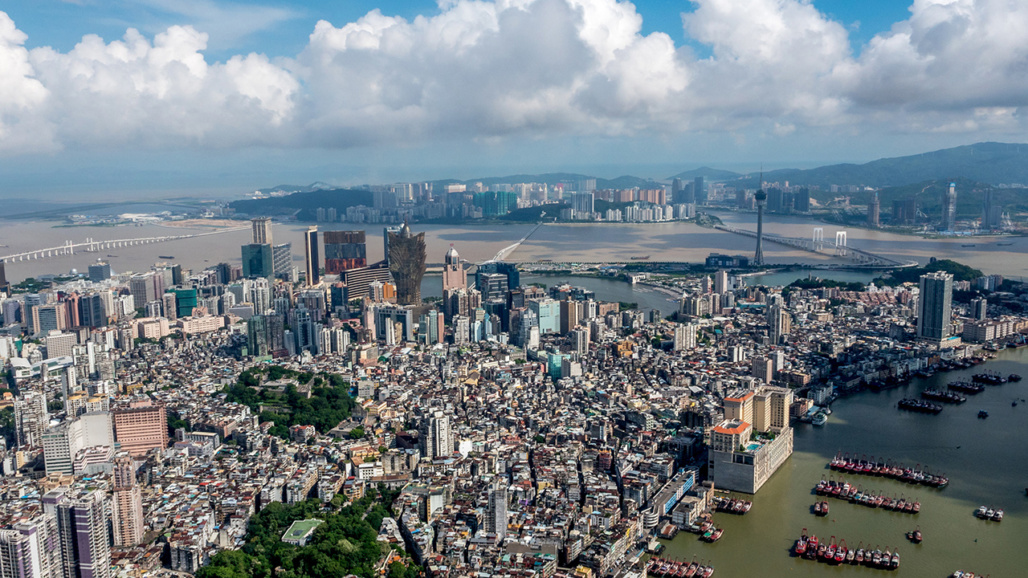
社會哲學家Axel Honneth認為,社會正義的道德要求超越了“公平、公正地分配物質財富”。對他而言,社會不公正的癥結在於社會底層不同群體的身份、認可和賦權未有受到尊重;面對個人和他人發展機會,這些成員也被拒諸門外,他們甚至無緣美好生活。這也是澳門陷入的困境。在教育方面,為何外籍僱員非華語子女能夠負擔得起的體面的教育選擇如此有限?在住房方面,為何那些低技能、需要輪班工作的外地僱員在澳門合租床位和狹窄的住處,卻只能獲得勉強能夠維持生計的報酬?為什麼澳門還有人住在改裝的集裝箱和鐵皮屋裡?雖然成為“社會房屋”的工程即將在澳門新填海區落成,對於城市大量人口來說,他們根本負擔不起,無論是“夾心階層”、 饕餮盛宴階層,還是残羹冷炙階層。
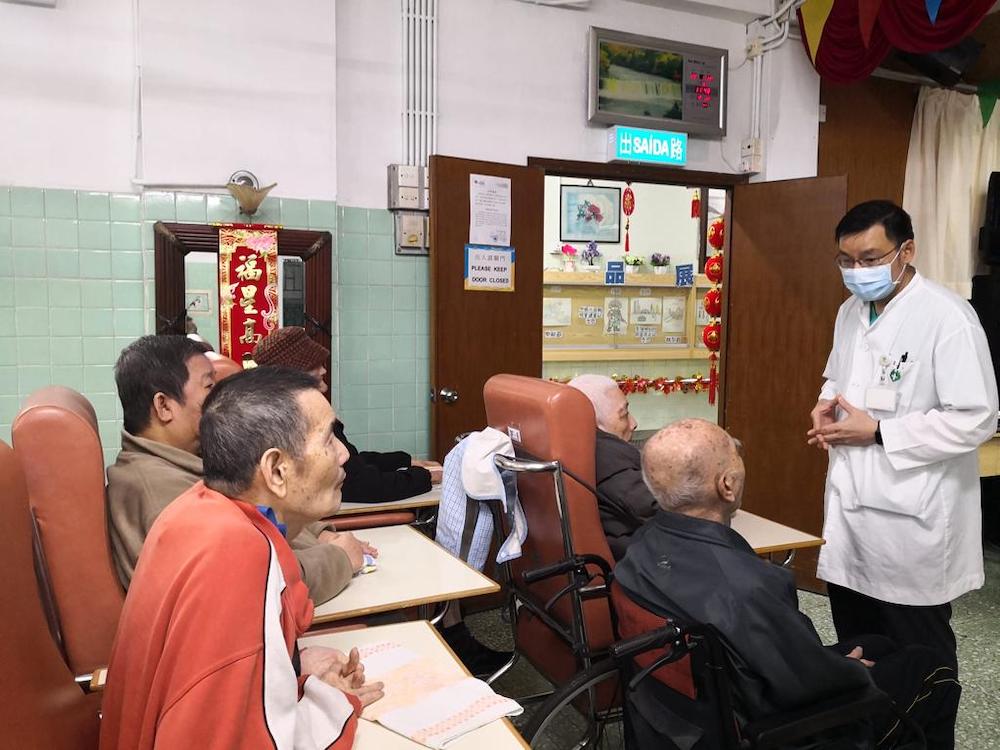
面對當下日益嚴重的人口老化問題,本地長者醫療保健和社會護理服務陷入了巢覆危卵之境。為何老老少少紛紛前往香港求醫,即使由澳門政府支付費用的病人亦然?屬於我們的設施在哪裡?
澳門社會正義面對的限制清單是無窮無盡的。澳門急需為所有年齡段的窮人提供經濟、社會、個人、心理、居住、教育、家庭、醫療、環境和發展方面的支持,儘管過去二十年來,我們已朝著這一方向邁出了關鍵的步伐。每年向居民發放的財政補助是對再分配正義的示好,卻不過是像徵性的點頭示意;少數的富人們不曾因此受到影響,他們一如既往地享受特權、自我放縱,崇拜受資本驅動的物質主義,旁若無人地積累財富。
不同領域的社會正義為澳門的發展設定了一個遠超物質主義和財富創造的艱鉅議程。 這是一項道德義務,理應成為澳門政府社會、經濟和個人發展計劃的試金石。社會正義事業理應是澳門商界的核心。不是嗎?
澳門的經濟發展必須建基於道德之上,以社會和道德責任及普遍的共同利益取代那可鄙的新自由主義、哈耶克主義、利己主義、剝削行動和行為。社會正義讓哈耶克令人震驚的論點相形見絀,即社會正義“在思想上聲名狼藉”、空洞且不誠實。

Macau Business | March 2023
Keith Morrison – Author and educationist
Macau’s development of international and tertiary sector industries is the watchword for its long-overdue diversification. Is Macau ready for this?
Imagine that an entrepreneur wishes to open a substantial financial service business that builds on Macau’s positioning between East and West. She advertises for a senior position with demanding applicant requirements: high-level knowledge, skills, and international leadership and management expertise and experience in areas such as international finance, banking, international commercial law, wealth management; and fluency in two world languages. She sends to the relevant Macau’s government office her proposal to recruit a highly skilled expatriate applicant who fits the bill. The office’s response is ‘you need to prove that there is no local who can do this, and, anyway, it will take two or three months to process an expatriate’. The employer searches and then replies: ‘no local has been found’, so, eventually, the government office’s response is ‘go ahead with the expatriate’. ‘Too late’ says the employer, ‘the applicant took up a position in Dubai’.
This problem touches tertiary industries in Macau: business, commerce, education, health, IT, real estate, finance, personal services, and so on. For diversification to progress, the demand increases for highly skilled, internationally experienced, expatriate experts in Macau. Get the message: Macau does not have enough of them, and Macau’s slow-motion procedures for permitting international expatriate experts to work in Macau frustrates attempts to recruit internationally.

With Macau’s reliance on international, highly skilled, employees, it would be commonsense for the recruitment and entry of high-level expatriate experts to work in Macau to be a rapid, straightforward, no-nonsense matter. Well, think again.
The government’s lack of streamlined procedures for recruiting international, expert, highly skilled, richly experienced workers from outside Macau, is counterintuitive. Processing by, and receiving clearance from, the government to employ non-local experts on a full-time, part-time, or short-term basis, can take months. Just when Macau has turned a corner in recovering from its ailing economy, such hobbling of the agility of employers and entrepreneurs to meet Macau’s tertiary sector’s need for international, top-level workers is the very opposite of what is required. The speed at which expatriate high-level workers in other parts of the world are welcomed and whose clearance is processed in hours and days, should make Macau blush.
Other countries snap up top-level expatriate experts from across the world with astonishing alacrity; they know that they have to act fast, or they will lose them. Look at Dubai, Qatar, and Abu Dhabi, with some 88.5 per cent of expatriate workers, whose tertiary, finance, and service industries attract experts globally. International companies and organisations set up shop there, and the government processing of employment matters can be fast-tracked to corner the market. They welcome, not obstruct, expatriate experts. No wonder they flourish.
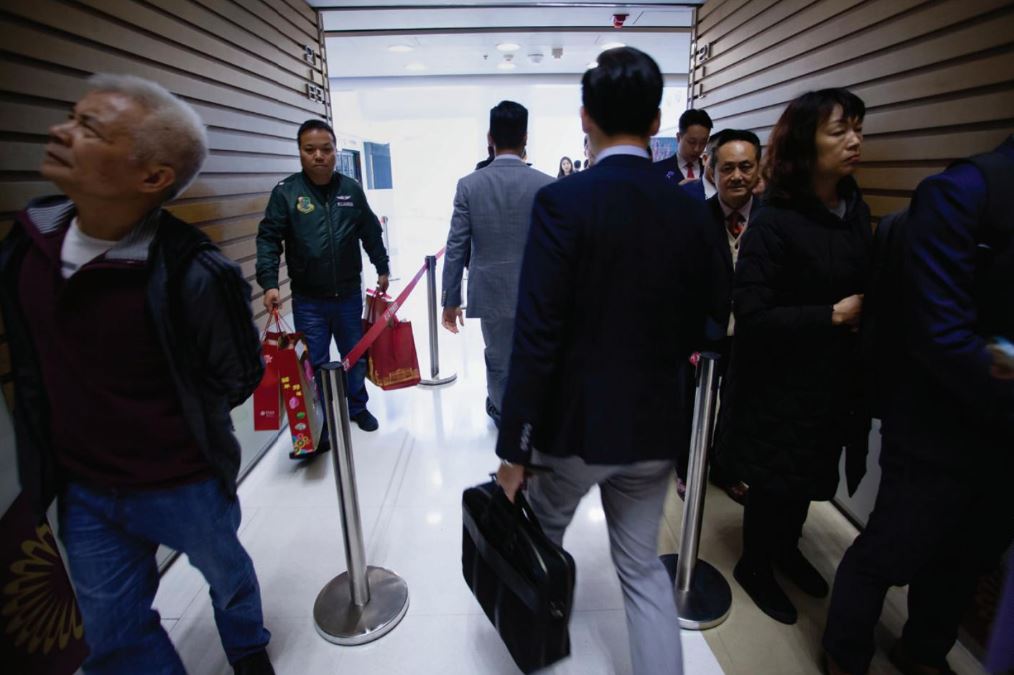
Compare this to Macau, whose employers are pressed to conduct a knowingly fruitless internal search for local people who have the required top-class knowledge and expertise, rich international experience, advanced training, high-level management expertise, and outstanding skills. Surprise, surprise; employers find none, by which time a potential expatriate expert applicant has found employment elsewhere. And what happens next? The Macau government office shrugs its shoulders, thinks ‘ah well, that’s life’, and continues to pursue its existing course, and at a slow pace that would outclass a snail. Does the government office really think that employers have not done their initial homework on the local situation or do not know what they need?
If Macau is to turn its affection for tertiary diversification and development into real practice, benefiting Macau, then its government offices must recognise and act upon the need to differentiate skill types, differentiate between low-, medium-, and highly-skilled expatriate workers coming into Macau, and streamline massively the processing of the top end of the expatriate employment market. One size does not fit all. Streamlining, diversification, and tertiary industries must help each other, not be a three-legged race in which any movement forward is difficult.
]]>
文:Keith Morrison | 作家及教育家
國際和第三產業發展早就應該成為澳門多元化發展的口號,澳門準備好了嗎?
想像一下,有企業家希望利用澳門中西融合的優勢,開設一家規模龐大的金融服務企業。針對公司的高級職位,她提出了苛刻的要求:在國際金融、銀行、國際商法、財富管理等領域具有高水平的專業知識、技能以及國際領導和管理知識和經驗;能流利使用兩種世界語言。她向澳門政府相關部門遞交了申請,希望聘請一名符合要求的高技能外籍僱員。官方的回應是“你需要證明沒有本地居民能夠勝任這一職位,且處理引入外籍僱員申請需要兩至三個月的時間”。僱主經過一番尋找後回覆當局:“沒有找到符合要求的澳門居民”,所以,政府最終的答覆是“可聘用外籍僱員”。 “太遲了,”這名企業家坦言,“申請人已在迪拜找到了工作”。
這個問題涉及到澳門的第三產業:商業、教育、衛生、IT、房地產、金融、個人服務等等。為了推進城市多元化發展,澳門對高專業技能且國際經驗豐富的外籍專家的需求日漸增加。我們得到的信息是:澳門沒有足夠的人才,行政當局審批外籍專家到澳門工作的拖沓手續阻礙了本地企業進行國際招聘的嘗試。
有鑒於澳門對國際化、高技能僱員的依賴,聘用和引入外籍高級專家是一件快速、直接、不容置喙的事情,這將成為常識。好吧,再想想。

政府缺乏從海外地區招聘國際、專業、高技能、經驗豐富僱員的便捷程序,這是違反直覺的。政府完成審核程序並通過審批,企業得以成功從海外聘用全職、兼職或短期專家來澳,往往需要數月之久。現在是澳門經濟從頹勢中復甦的關鍵時刻,僱主和企業家為滿足第三產業對國際頂尖專家的需求往往需要靈活的處理方式,當局死板的做法恰恰與實際背道而馳。外籍高級人才在世界各地均炙手可熱,且其他城市往往只需數小時或數天內就能完成入境申請,這理應讓澳門臉紅。
其他國家以驚人的速度從世界各地搶奪頂級外籍專家; 他們知道動作必須要迅速,不然就竹籃打水。看看迪拜、卡塔爾和阿布扎比,約88.5%是外地僱員,當地的第三產業、金融業和服務業吸引了來自全球的專家和人才。國際企業和機構紛紛進駐,當地政府處理就業事務的速度甚至稱冠整個市場。他們張開雙臂,擁抱外籍專家的加入,而非拒之於門外。難怪這些地區能夠蓬勃發展。
反觀澳門,僱主被迫在本地進行徒勞無功的努力,希望找到那位具備所需一流專業知識、豐富國際經驗、高級培訓、高水平管理專業知識及傑出技能的本地人才。令人嘖嘖稱奇的是:僱主必定一無所獲,但潛在的外籍專家申請人或已在其他地方找到了工作。接下來會發生什麼?澳門當局聳了聳肩,“嗯,這就是生活”,並繼續按照既定的路線、以比蝸牛還要慢的速度蹣跚前行。特區政府是否真的認為用人單位不曾就本地情況做了初步調查?或真的不知道自己需要什麼?
如果澳門要將其對高等教育多元化和發展的熱情付諸實踐,造福澳門,那麼行政部門必須認識並按照技能水平劃分為高、中、低三類,設定不同的人才引進流程,大幅簡化高端外籍人士就業市場的流程。我們應講求“因事制宜”,除了簡化程序、多元化發展外,第三產業只有相互促進,方能擕手同行,三足鼎立只會陷入步履維艱的困境。

Macau Business | February 2023
Keith Morrison – Author and educationist
As Macau strives to revive its post-pandemic economy and to reinject life into its ailing society, calls for investment in human capital resurface, alongside endless mantras of economic diversification which, for years, seem to have fallen on deaf ears, and together with plans for further infrastructure development and construction which have already turned Macau into a concrete jungle.
Here I focus on human capital (HC). Macau relishes HC for improving its society. Look how it trumpets talents, higher education uptake and achievements, university rankings, prizes and awards, lifelong learning, job training, degree holders (70 per cent of Macau’s local population with a Bachelor’s degree, and 15 per cent with a Master’s degree, in the 2021 census).
But wait a moment. As we know, economic recovery and societal development require much more than HC. Even the Macau government has recognised this. HC investment is necessary but markedly insufficient for Macau’s present and future. Indeed, let us not put too much hope in HC as an undisputed path to economic salvation, individual gain, and societal development, as it doesn’t seem to live up to its many claims.
In their well-received book ‘The Death of Human Capital?: Its Failed Promises and How to Renew It in an Age of Disruption’, the authors, Brown, Lauder, and Cheung, show the limitations of HC, questioning the HC adage that ?learning equals earning?. HC theory, they aver, has taken insufficient account of the fact that ours is an age of job uncertainty, instability, and underemployment, too few decent jobs, increased job competition, rampant inequality and social injustice, grotesque wealth in the hands of the very few whilst others live in poverty, a too-limited agenda of promoting individualised ‘talent’, increasing psychological ill-health and stress, and continuing inequalities of opportunity for employment and improving life chances. This is Macau. HC theory adds to the twilight of the idols of wishful, unfulfilled, unfulfillable promises of a better life.
As the pandemic made clear, ‘getting on’ in life is not as simple as investing in yourself; the maxim of ‘get qualified and you get a good job’ is suspect. Jobs and job opportunities shut down in front of our eyes; galloping credentialism sees over-qualified degree holders flipping burgers in fast food outlets or taking up low-income service jobs; overnight job termination reduces families to silent despair; investment in obtaining qualifications does not match subsequent earnings. HC’s pathway to individual prosperity and the good life is illusory; ‘real life’ does not work that way. Higher education for all, as one avenue for HC investment, is nowadays more a liminal rite of passage than a passport to a decent job: an ironic paradox as higher education becomes more and more like job training. The exchange value of credentials recedes, leading to an inflationary credentialist spiral, a diploma disease in a society marked by too many people chasing too few, and too similar, narrow, decent jobs. Again, this is Macau. Macau’s median monthly income is the same as in 2014, and disproportionate wealth is still in the hands of the few, with social unrest cooled out by (very welcome) annual handouts to all its citizens.
‘Investing in yourself’ is seriously incomplete for society. At root is a false premise, a trick of the naive belief in a better, more just, meritocratic society as simply the outcome of merit (I.Q. plus effort) and trickle-down economics, holding the individual responsible for what happens at a societal level. Societal development is an essentially collective, inclusive task and responsibility, and not solely for personal benefit; it is not individualism writ large. Society is not simply an instrumental, buy-and-sell HC market; nor are economic recovery and societal development.
For many years, Macau had been cushioned from economic downturn; many of its residents lived reasonably comfortable lives in this little bubble. But then came the pandemic, bringing job terminations in their thousands, together with a brain drain flight away from Macau occasioned by its questionable immigration labour policies and strategies adopted to cope with the pandemic. HC was outflanked by wider constraints which showed up, for all to see, many of the pre-pandemic ills of trusting HC theory and practice in society, identified above, significant amongst which was the mistaken view of people in society as solely or largely individualised, materialism-driven economic units (homo 渃onomicus), disposable when times get hard, and, like the Stoic Wise Man, being ‘passionless, pitiless, perfect’, with values, humanity and social justice relegated to epiphenomena.
HC investment leaves relatively untouched, indeed perpetuates, Macau’s grossly unequal society, too few decent jobs, a massively under-diversified jobs market, years of neglect of job creation, a too narrow view of higher education as largely for job training and for creating commercialisable products, and silence on values debates. It is questionable just how far HC is, or can be, the prophylactic and solution to societal ills and the main key to Macau society’s development. To pin so much onto HC is wanton negligence of alternatives and additional societal requirements. Macau’s society needs far more than anything that HC can offer.
Human capital theory is strangely silent on the purposes of living, on what kind of society and values people we really want and need, and on what is the ‘good life’. HC will not, and cannot, satisfy Macau society’s needs; its society, education, economy, values, and people, need much more than this. Heed the warning of Brown, Lauder, and Cheung. Societal development moves beyond capital, be it social, individual or HC; it moves beyond materialism. Rather, it requires a concern for humanity, values, people, not just economic units, individual advancement, and materialism. Focusing so largely on market-driven capital development, for societal development, to which HC is a contributor, leads to multi-dimensional societal and humanitarian impoverishment. Thinking about individuals and society in human capital terms is fundamentally mean and misguided. Where are the human and social values debates in Macau’s recovery and development, taking us beyond materialism, business, and economics, to a much wider view of ‘worth’ and ‘worthwhileness’? Human capital is found wanting here.
]]>
文:Keith Morrison | 作家及教育家
儘管公眾對政府重振澳門經濟的計劃表示歡迎,但城市經濟復甦之路將繼續受到清零政策的影響,姑且不論其用意如何。令人感到欣喜的是理性終於佔了上風,早就應該改變這一政策。認為澳門能夠繼續推行這一政策並實現真正復甦的想法純屬烏托邦的幻想;這沒有絲毫用處。澳門最初的防疫策略取得亮眼成績,新冠病毒造成的死亡數據極低。然而,清零政策迅速地展現了頹勢並變得不合時宜,但特區政府仍堅持貫徹到底;為什麼?政府是否對所堅持的清零政策進行了早期風險分析?現在進行的改變又是否進行了評估?證據何在?
自清零政策推行的第一天開始,其風險就顯而易見了:特區經濟崩潰、社會動盪,居民的福祉、心理健康和收入亦受到重創。放棄清零政策的風險同樣是顯而易見:病毒的傳播(無論有沒有政策,它都會傳播)和澳門政府的地位受到挑戰。無論是延續,抑或放棄清零政策,都必將帶來風險,只是後者的風險較小。放棄的好處遠遠超過了延續,這一點在疫情初期就非常明顯。
最近,特區政府突然改變處理疫情的方式,讓人質疑澳門在持續評估和應對風險方面所做的工作,過去已經完成及即將完成的。當局以何為依據決定放寬某些防疫措施? 澳門發生了怎樣的變化:
- 風險識別(類型、來源、原因、內容和後果)?
- 風險分析(其可能性、影響、幅度、波動性、嚴重性、關鍵性、敏感性、範圍、複雜性、級別、持續時間、預防措施的有效性)?
- 風險評估(判斷風險水平的容忍度/可接受度;承擔風險的潛在好處)?
- 風險處理(處理方案選擇;管理計劃和決策;行動(例如接受、避免、採取措施控制、減輕或改變或分擔風險;採取措施保護處於風險中的人;計劃對剩餘風險的影響 )?
是什麼突然改變了澳門清零政策?面對宏觀層面上的經濟自殺和自我傷害,當局為何花了如此長時間方能做出反應?任何人都可以看出,清零政策是城市經濟和社會復甦的噩夢;兩者無法共存,但澳門為何要苦苦追求這一顯然有害且不必要的政策?
隨著防疫政策的變化,澳門居民仍對前景感到茫然,工作能否穩定?有人甚至不知道自己能否找到一份工作。在單一感染病例導致部分區域被封鎖的同時,卻有成千上萬擁躉湧入美食節及其他節慶活動,他們實在難以理解這一荒誕的場景。他們質疑某些入境人士獲豁免隔離的原因,要知道人們通常被關起來並遭到像惡棍一樣的對待。在世界其他地方,在人們沒有犯錯的情況下,未獲本人同意就將他們關起來,並試圖以危害公共或社會利益作為理據,這足以令人產生對人權的質疑。
澳門對新冠病毒的風險分析、評估和處理實屬用心良苦,但存在諸多錯誤。特區的決策者為減輕風險而採取的措施不合情理,誇大了其規模、嚴重性、危急程度,以及超出了合理或可容忍範圍的推定影響。澳門為什麼花了比世界其他地方都要長的時間,才能接受這種病毒是無法被消滅的?就如流感一樣。澳門誇大了其控制風險和保護潛在風險人群的善意措施。難怪澳門的經濟仍然支離破碎,居民仍然承受著巨大壓力,生活潦倒。
清零政策是不必要且歪曲了社會的善意。謝天謝地,我們終於迎來了改變。儘管報道指當局忽然而來的變化是基於科學作出的決策,絕非其他因素,但從科學證據或任何證據看來,情況早就是如此,為什麼特區不能早點開始改變?不能像世界其他地方那樣循序漸進?請拿出證據來。展示特區的施政透明度。

Macau Business | January 2023
Keith Morrison – Author and educationist
Despite the welcome optimism expressed at the government’s plans to resurrect Macau’s economy, its economic recovery will continue to suffer from having had the rug pulled from under its feet by the zero-Covid policy, however well intentioned. It is good to see that, at last, reason has prevailed, and, long overdue, this policy is changing. The idea that Macau could really recover whilst continuing to operate this policy was fanciful optimism; it didn’t work. Macau’s Covid risk prevention strategy was excellent at first, with first-class, infinitesimal virus-related mortality figures. However, it quickly became manifestly clear that the zero-Covid policy was past its shelf life, yet it continued; why? Had there been an early government risk analysis of its zero-Covid policy, and is there one now for changing it? Where is the evidence?
The risks of the zero-Covid policy were patently obvious from day one: Macau’s economic meltdown, societal unrest, and citizens’ loss of wellbeing, mental health, and income. Risks from abandoning the zero-Covid policy were clear: the spread of the virus (which it did anyway, with or without the policy) and risk to the Macau government’s standing. Continuing or abandoning the zero-Covid policy brought risks, the lesser of which was the latter. The benefits of abandoning it far outweighed its retention, and this was eminently clear early in the pandemic.
The recent sudden changes to handling the Covid situation call into question what had been – and continue to be – done in Macau to assess, and respond to, the risks on an ongoing basis. On what real basis was it decided to relax some of the previous Covid arrangements? What had changed concerning Macau’s:
- risk identification (type, sources, causes, contents, and consequences)?
- risk analysis (its likelihood, impact, magnitude, volatility, severity, criticality, seriousness, sensitivity, scope, complexity, level, duration, effectiveness of preventions)?
- risk evaluation (judging tolerability/acceptability of level of risk; potential benefits of taking the risk)?
- risk treatment (options; management plan and decision; actions (e.g. accept it, avoid it, take steps to control, mitigate or change it, or to share it; take steps to protect those at risk; effects of the plan on remaining risks)?
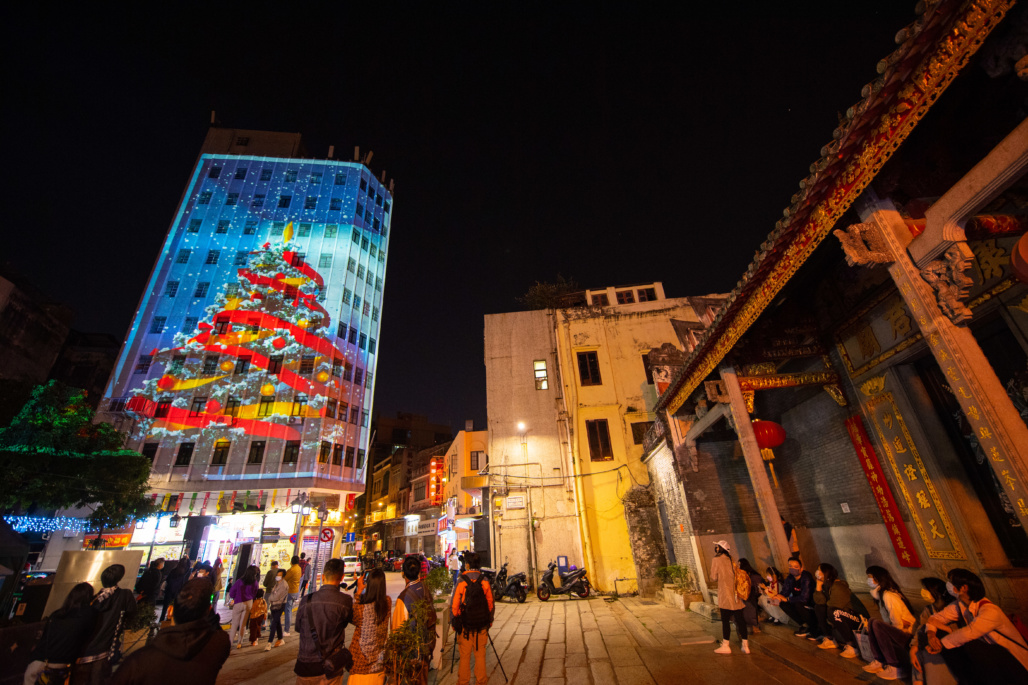
What had suddenly changed to alter Macau’s zero-Covid policy, and why did it take so long to react to its obvious economic suicide and self-harm on a macroscopic scale? Anyone could tell that the zero-Covid policy and the territory’s economic and social recovery were uncomfortable bedfellows; they just don’t go together, so why did Macau pursue it for so long, when it obviously so deleterious and unnecessary?
With changes to the Covid policy, Macau citizens still don’t know how secure their jobs are, or even if they can get one. They struggle to understand how thousands of people could be shoulder-to-shoulder at a food festival and other crowd events, whilst, at the same time, the hint of a single virus case had shut down parts of Macau. They question why some incomers were exempted from quarantine whilst others were locked up and treated like miscreants. In other parts of the world, locking up people without their real consent, when they have done nothing wrong, and justifying this in terms of a questionable public or social good, calls human rights into question.
Macau’s risk analysis, evaluation, and treatment of the Covid virus were well intentioned but faulty. The steps taken by Macau’s decision makers to mitigate the risk were beyond reason, overstating its magnitude, seriousness, criticality, and its putative impact beyond what was sensible or tolerable. Why did Macau take longer than the rest of the world to accept that the virus, like the flu, cannot be eliminated? Macau overplayed its well-meant steps to control the risk and to protect those at potential risk. No wonder Macau’s economy still lies in shreds and its people still suffer stress and impoverishment.
The zero-Covid policy needlessly and avoidably travestied the social good. Thank heaven it has changed. Despite media reports that the sudden changes were rooted in science rather than other factors, where is the scientific evidence, or, indeed any evidence, that this was the case, and why could changes not have started sooner on a gradual basis, as elsewhere in the world? Bring on the evidence. Bring on transparency.
]]>
文:Keith Morrison | 作家及教育家
當娛樂場度假村申請首批在澳經營博彩業務牌照時,作出的其中一項承諾就是服務澳門社會。當中的多家企業都非常出色地履行了這些承諾,並始終不渝。他們履行承諾的方式琳瑯滿目且不勝枚舉。
服務澳門社會不僅要滿足這個社會的願望,還意味著需要滿足其自我維持及更新的需要。這絕非單純的提升業績、推動就業、增加投資或提供培訓等經濟範疇的問題。相反,這是一個關於“全人”的事項,即透過承認和尊重個人主義,參與、發展和培養深刻的“人道”、內在的創造力,以及推廣極度真實且充滿激情的生活。對澳門這樣的社會來說,這是必不可少的。因這座城市長期受制於物質主義、空泛膚淺的口號、瑣碎的享樂主義、官僚主義、日常生活、控制心態和行為,加上條條框框的限制和始終如一的順從思想,創造了被動、順從、馴服的機器人,摧毀了人們從小就應該具有創造性、反省能力和內在精神。只有真正創造力帶來的顛覆性思維和實踐,澳門方能實現真正的可持續發展。
那麼,娛樂場度假村如何為社會服務?如何促進澳門迫切所需的深刻人性、創造力和個人存在的真實性?同時降低唯物主義的重要性?
在澳門,為社會服務最引人注目和最傑出的其中一個例子並非一味吹噓媚俗、浮華俗套,而是在城中各處散發魅力。不,比這更微妙、更具穿透力,銀河娛樂集團基金會便是當中的佼佼者。「澳門銀河 」綜合度假城購物中心一樓的藝文空間呈獻澳門藝術家袁偉業精心炮製的【5 a.m.】油畫展,展覽將持續到2023年2月(見https://www.gegfoundation.org.mo/exhibitions/5am)。只有親身到訪,方能了解【5 a.m.】的趣味和內涵!
」綜合度假城購物中心一樓的藝文空間呈獻澳門藝術家袁偉業精心炮製的【5 a.m.】油畫展,展覽將持續到2023年2月(見https://www.gegfoundation.org.mo/exhibitions/5am)。只有親身到訪,方能了解【5 a.m.】的趣味和內涵!
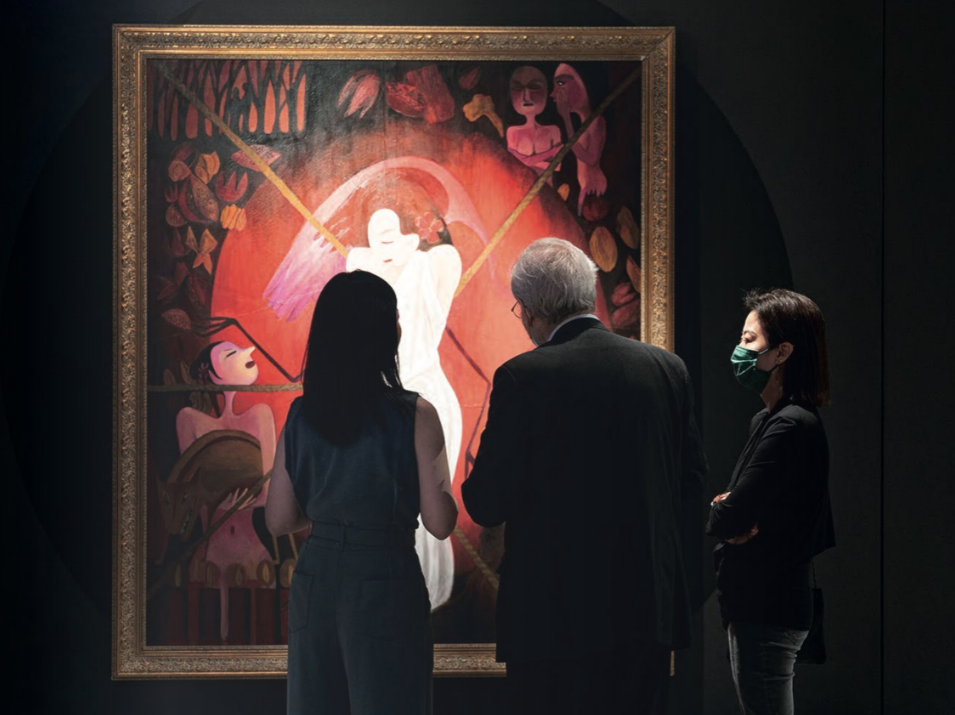
實在不容錯過!這場展覽實在震撼人心,彷彿為澳門注入了一陣清新的涼風;這是澳門多年來最美妙的事情。那些色彩濃烈的展品緊緊地吸引了你的目光,讓你沉迷於其中。作品以豐富的情感、深層次的反思和獨特的美麗阻止你前進;把你帶入藝術家的感官世界,越來越深入,促使你重新自我審視,喚醒那內心深處的自己。這些畫作植根於澳門的多個不同維度,記錄了藝術家過去多年的生活,見證了他的人生變化和經歷。這些作品都極具個性,但在藝術家充滿個人韻味的個人世界中仍能捕捉到普遍的價值觀、情感、行為、挑戰和體驗。這些普遍存在於個別繪畫(例如描繪一個和平盛行世界的《Ceremonial Fire》)和特定主題的一組圖片(例如描繪中國文化特有的“The Four Gentlemen”)中,所有這些都被賦予了豐富的象徵和意象。
在畫展組織者Florence Lam和藝術家本人袁偉業的帶領下,我們展開了這趟藝術之旅,仔細地欣賞每幅畫作。袁偉業樂於與我們分享,回憶每幅畫作的動人故事。他是一名非常罕見的、真誠且出色的藝術家,我被他的真誠和謙虛所征服;然而,讓我印象最深的卻是其畫作中表現出來的不安。這是多年來,第一次在這裡看到了如此純潔的心靈和真誠的靈魂、還有那真正的創造力和驚人的才華。我感動得說不出話來。這次參觀令我想起參觀阿姆斯特丹梵高博物館的時候;出色的展覽將永遠改變人們。他們把所有物質主義、膚淺鄙陋、官僚主義、不加思考的例行公事、對權力和控制的渴望、對穩定、順從、被動服從和順從的壓力都棄之一旁。如果你作好準備獨處時進行深入思考,這將令生活變得有價值。正如詩人Pasternak所說:“即使眾人皆溺於偽善,我仍獨自堅持。生活必須認真感受,而非像穿越田野般就那麼過去了。”
這正是澳門迫切所需的,遠遠超越單調、轉瞬即逝且膚淺的唯物主義。可持續發展需要人性、內在的創造力,人們應過上真實、真誠、有意義且充滿激情的生活。這都是關鍵所在。到【5 a.m.】體會一番;思考那些畫作並進行自省。這是一生所需的聖誕禮物。

Macau Business | December 2022
Keith Morrison – Author and educationist
When the casino resorts applied for the first licenses to operate in Macau, one of the commitments that they made was to serve the Macau society. Many of them have honoured those commitments outstandingly well, and continue to do so, and in ways too many and diverse to list here.
Serving Macau society means not only giving it what it wants but what it needs in order to sustain and renew itself. This is not only an economic matter of promoting business, jobs, money, training, and so on. Rather, it is about the whole person, engaging, developing, and nurturing a profound humanity, inner creativity, the living of a deeply authentic and passionate life, with recognition and respect for individualism. This is essential in a society such as Macau, which is in grip of materialism, slogans, superficiality, trivial entertainment, bureaucracy, routine living, control mentalities and behaviours, and restrictive, unyielding conformity that creates passive, obedient, compliant robots, and destroys people’s creative, reflective, inner spirit from an early age. For real, sustainable development, Macau needs the disruptive thinking and practices that real creativity brings.
How, then, can the casino resorts serve society in catalysing the development of the deep humanity, creativity, individual existential authenticity that Macau so urgently needs, and which leaves materialism paling into insignificance?
One of the most striking and outstanding examples of such service in Macau is not the megaphone trumpeting of kitsch, glitz, and would-be glamour throughout Macau. No, it is much more subtle and penetrating than this, an example of which is currently provided by the Galaxy Entertainment Group Foundation. Tucked away in an upstairs, calm corner of one of its shopping malls is the carefully arranged and poignant ‘5 a.m. oil painting exhibition’ of the work of the local artist Leo Yuen Wai Ip, which runs to February 2023 (see https://www.gegfoundation.org.mo/exhibitions/5am). You will have to visit it to understand its title!

Go there. This exhibition is stunning, and it is like a break of fresh, clean air in Macau; it is the best thing for years in Macau. It grabs you and keeps you fixated on the paintings. It stops you in your tracks with its thoughtfulness, depth, and beauty. It draws you in, deeper and deeper into the artist’s world, and makes you to look at yourself afresh in redeeming your innermost thoughts. The paintings are rooted in several dimensions of Macau, painted over many years of the artist’s life and testifying to his own changes and the experiences which have shaped his life. They are deeply personal yet catch universal values, emotions, behaviours, challenges, and experiences, in the particular and the personal. These universals take form in individual paintings (e.g. ‘Ceremonial Fire’, depicting a world in which peace prevails) and in sets of pictures on a particular theme (e.g. ‘The Four Gentlemen’ in Chinese culture), all of which are rich in symbolism and imagery.
On the visits that I made to the exhibition, we were taken round the exhibits, painting by painting, by the organiser Florence Lam and, indeed, by the artist himself, Leo Yuen Wai Ip, who talked with us, explaining evocatively and movingly the many points about each painting. Leo is a very rare, sincere, wonderful man, and I was overcome with his honesty and modesty; this touched me the most, and are caught so disturbingly well in his paintings. For the first time in years, here on display were purity, sincerity, genuine creativity, humanity, and brilliance, heart and soul. I was touched beyond words. It took me back to when I visited the Van Gogh museum in Amsterdam; such exhibitions change people for ever. They put into the shade all matters of materialism, superficiality, bureaucracy, unthinking routine, the thirst for power and control, the press for stability, conformity, passive obedience, and compliance. They make life worth living, if you are prepared to think about it deeply, and often in solitude. As the poet Pasternak put it: ‘I am alone; all round me drowns in falsehood. Life is not a walk across a field’.
Now this is what we need in Macau, going far beyond the humdrum and fleeting, superficial materialism. Sustainability needs humanity, inner creativity, living an authentic, sincere, meaningful, and passionate life. These matter. Visit the exhibition; reflect on it, on yourself. It is a Christmas present of a lifetime.
]]>
Macau Business | November 2022
Keith Morrison – Author and educationist
In June of this year, a publication entitled ‘Macau’s sustainability and diversification’ noted that Macau’s ‘economic volatility caused by an unbalanced industrial structure restricts the diversified development of society. Economic diversification is the only way for Macau to achieve sustainable development’. Nothing new there, and, anyway, such a singular view is unconvincing. What about other aspects of society? Diversity is not singular, and it requires inclusion.
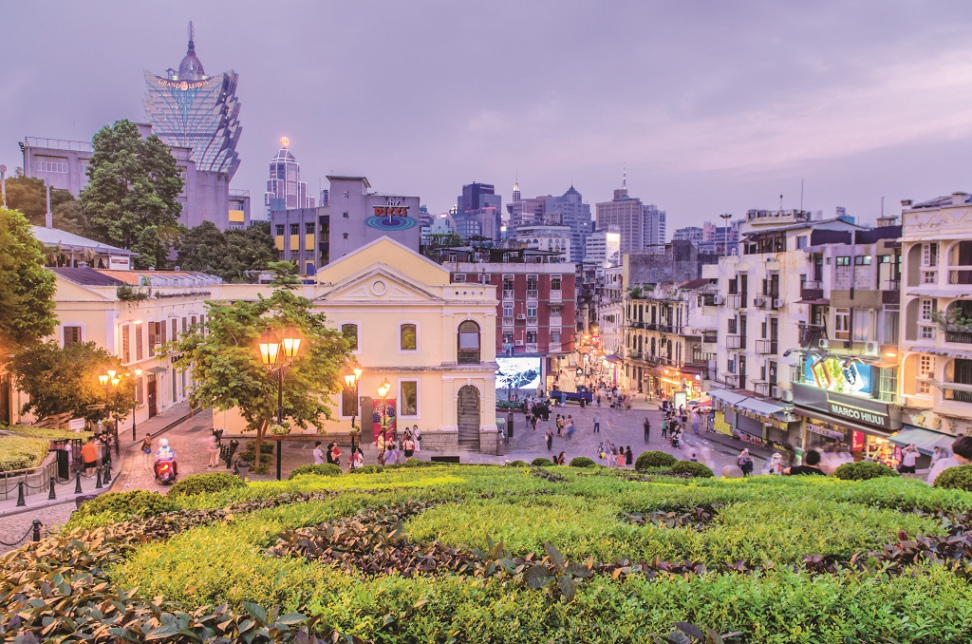
For its authors, Macau’s ‘sustainable urban development’ appears to supervene on being ‘pluralistic’, requiring ‘coordination of the relationship between economic development and population, resources and environment’, requiring attention to the ‘sustainable development’ outlined by the United Nations.
For several years, Macau has been taking steps to address the United Nations General Assembly’s 17 Sustainable Development Goals (SDGs). It is doing this in the face of current, serious setbacks, almost existential challenges, whilst recognising its need to metamorphose itself in an increasingly telescoped time scale.
Macau’s situation is fragile, with the global economic downturn, the pandemic and Macau’s zero tolerance policy, the plummeting of its GDP, the doubling of the local population’s unemployment rate (see the graphs), together with the 27 per cent fall in its population since the start of 2020 (DSEC data), as people flee Macau, thereby narrowing its diversity. Counting the cost raises questions of how Macau plans to rise, phoenix-like, from the ashes of the last three years. Macau is not alone here; the challenges are world-wide. Indeed, Macau is taking action to handle them, e.g. in creating partnerships, seeking to diversify its economy, developing Hengqin island, encouraging talents, and furthering links with mainland China.
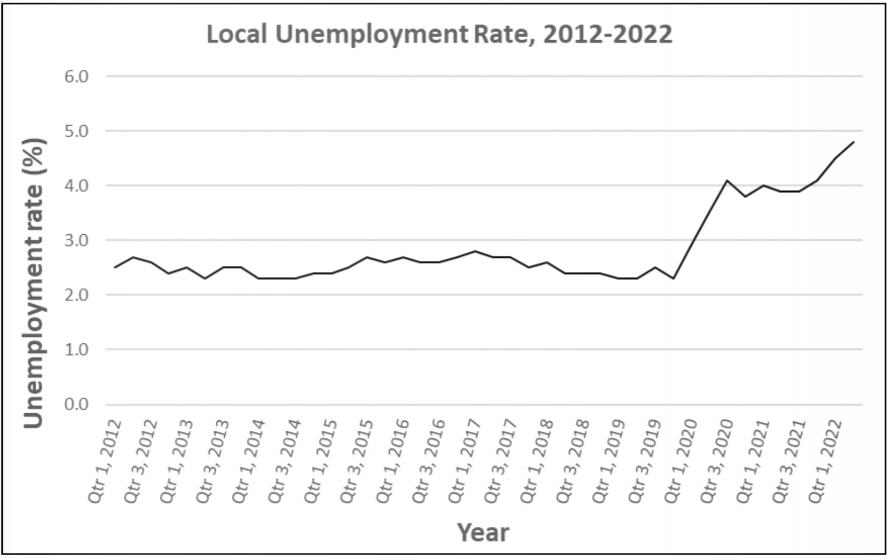
Source: DSEC
However, the rallying cry of the SDGs risks evaporating, with the erosion of many of these already taking place in Macau, e.g.: no poverty (Goal 1); health and well-being (Goal 3); decent work and economic growth (Goal 8); industry, innovation, and infrastructure (Goal 9); reduced inequality (Goal 10); sustainable cities and communities (Goal 11); responsible consumption and production (Goal 12). Failure to address each of these is terrible, as they are intertwined and mutually potentiating; if one goes, another goes. It is a grim, dystopic scenario.
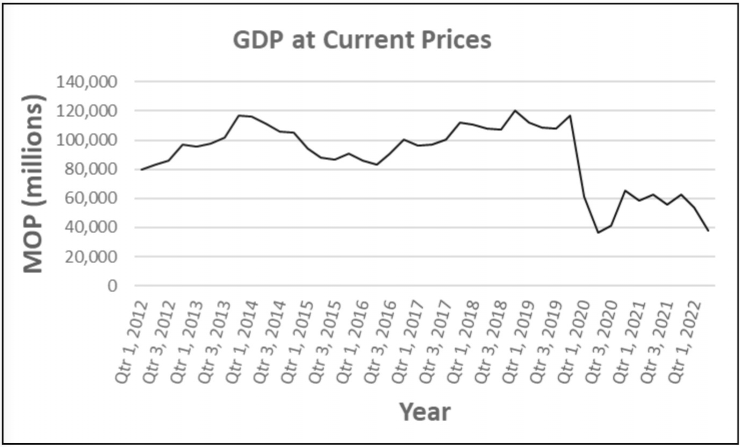
Source: DSEC
And who suffers? The casualties of Macau’s downturn are its poor and unemployed. They are hit harder than the rich and the employed, who can ride it, even if with some discomfort. This raises issues of equality and social justice.
In addressing inequality (Goal 10), a shift of emphasis is needed, to move beyond simply redistribution and subsidies. Echoing the social philosopher Axel Honneth, it involves recognition of, respect for, and voice and empowerment of, all groups in Macau, not only the wealthy, powerful, and those at the top of the social tree. Rather, it includes the have-nots, the poor, the unemployed, those without power, and those who sit on the lower rungs of the socio-economic ladder. Even if they voice out, it is unclear who listens to them and really acts fruitfully for them.
But recognition, respect, voice, and empowerment are only starting points; inclusion requires action, not simply these fine words. Macau needs more concrete interventions to promote equality and social justice: economic, social, cultural, socio-economic, together with heeding the voices, inclusion, empowerment, and protections of all groups. If we want Macau to move beyond survival to sustainable development, we have to take the poor and the unemployed with us, not left behind on handouts. Diversity requires inclusive action.
]]>
文:Keith Morrison | 作家及教育家
今年6月,一篇題為《Macau’s sustainability and diversification(澳門的可持續發展與多元化)》的文章指出,澳門“產業結構不平衡導致經濟波動,制約社會多元化發展。經濟多元化是澳門實現可持續發展的唯一途徑”。毫無新意!這種單一的觀點沒有絲毫說服力。社會的其他方面呢?多元化不是單一的,需要包容。
在該文的作者看來,澳門的“城市可持續發展”似乎超越了“多元化”,要求“協調經濟發展與人口、資源和環境之間的關係”,並需要關注聯合國所述的“可持續發展”。
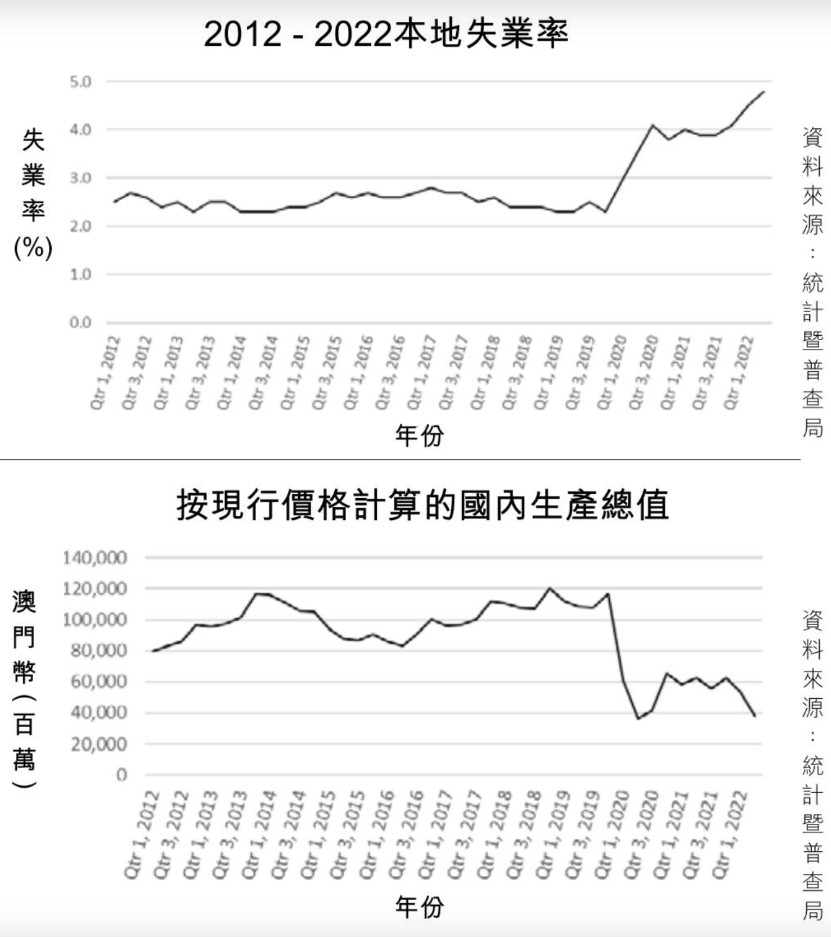
多年來,澳門始終按照聯合國提出的17個永續發展目標,努力向前推進。即使面對當前的嚴重挫折,甚至可謂是生存挑戰,特區政府亦堅持這一方向,同時認識到有必要在越來越緊迫的時間尺度上作出自我改變。
全球經濟不景氣、疫情和澳門的清零政策、城市生產總值暴跌、城市居民失業率翻倍(見圖表),加上人們紛紛逃離澳門,城市人口自2020年初(統計暨普查局數據)以來下跌了27%,城市多樣性萎縮,澳門陷入了前所未有的脆弱境地。計算成本引發了一個問題:澳門計劃如何如鳳凰一樣,從過去三年的灰燼中涅槃重生。澳門並不孤單,全世界面對同樣的挑戰。事實上,澳門正著手以實際行動解決這些問題,例如在建立夥伴關係、謀求經濟多元化、發展橫琴、鼓勵人才和加強與內地聯繫等方面。

然而,永續發展目標的口號或將消失,澳門已經當中多項目標出現問題,例如:無貧窮(目標 1);良好健康和福祉(目標 3);體面工作和經濟增長(目標 8);產業、創新和基礎設施(目標 9); 減少不平等(目標 10); 可持續城市和社區(目標 11); 負責任消費和生產(目標 12)。若無法解決當中任一問題的後果是可怕的,因為它們相互交織並相互促進;一個解決了,另外的問題亦隨之解決。這是一個嚴峻的、反烏托邦的情景。
誰將承受痛苦?貧窮者和失業者深受澳門經濟低迷所害。他們遭受的影響比富人和受僱人士更嚴重。富人和受僱人士能夠承受,儘管略有不適。這引發了平等和社會正義的問題。
在完成減少不平等(目標 10)目標時,需要轉移重點,超越簡單的再分配和資助補貼,這與社會哲學家Axel Honneth的觀點相呼應。這涉及澳門所有群體的認可、尊重、發言權和賦權,不僅是富人、權勢擁有者和處於社會階級頂端的群體。相反,它包括一無所有者、窮人、失業者、沒有權力一群,以及處於社會經濟階梯較低層的群體。即使他們發聲,也無法得知誰聽了他們的意見並真正為他們採取卓有成效的行動。
但認可、尊重、發聲和授權只是起點;包容需要行動,不僅僅是這些華麗的辭藻。澳門需要提出更具體的干預措施,致力促進平等和社會正義:經濟、社會、文化,同時傾聽所有群體的聲音,並包容、賦權和保護所有群體。如果我們希望澳門從生存走向可持續發展,我們必須帶著窮人和失業人士一起前行,而不是依賴施捨,多元化需要包容性的行動。

文:Keith Morrison | 作家及教育家
已故的心理學家、商業和管理顧問 Edward de Bono憑藉“水平思考法”享譽全球,其中包括“六頂思考帽”和“思維工具”。儘管他的工作看似不過是合理的偽科學,但“思維工具”理論仍然十分有趣。在進行規劃時,請參考他提出的認知研究信託方案 (CoRT) 中的部分內容,例如:CAF(考慮一定情景中的所有因素)、EBS(檢視正反面)、和OPV(考慮其他人的觀點)。在這裡,我將這些思維工具應用到澳門。
8月,澳門政府一般性通過了一項充滿善意的法案,以吸引“人才”到澳門工作、創立新業務、為本地居民提供培訓等。本著“考慮其他人的觀點 (OPV)”的精神,我認為有關該法案的討論或可從CAF、EBS和OPV三方面獲得推動。
法案提到的“高端人才”、“優秀人才”、“高級專業人才”,在當前的環境和條件下會考慮回流澳門,這實在是一部滿載奇思妙想的科幻小說。澳門經濟之所以萎靡不振在很大程度上是自找的,企業離開澳門轉移到東南亞其他地方,且城市環境從許多意義上來說處於不健康狀態。
關於法案的討論如火如荼,十分樂觀,自我陶醉於那些自世界排名前100名大學畢業的人士將考慮回流澳門的奇妙幻想之中。以澳門人才發展委員會發表的其中一篇報導為例,該委員會稱將創建一份國際榮譽和獎項清單,並以此為依據,將持有相關資格的回流人才列為“高端人才”。然而,如您是合資格人士,擁有相關的殊榮,請問您會否認真考慮到澳門,這個不穩定的環境中工作?無論您的合同條款,或都會在兩週通知期內被解僱?人才發展委員會似乎過於專注於對人才類型進行分類,忽略了從大局進行思考(CAF),例如人們不願意到澳門生活或工作的原因,要知道現在有成千上萬的人選擇離開這座城市啊!

當世界大部分地區造就提出豁免隔離檢疫時,“人才”做好準備體驗打擊身心的澳門強制隔離了嗎?他們是否準備在抵達的前兩週進行雙位數的強制性核酸檢測?難怪澳門的國際機場一片死寂。
如果提案的目的是為了吸引“人才”,那為何要讓他們逗留的環境變得一團糟糕呢?在CAF中,要留意部分到澳門工作的人才會與家人前來。那麼,為什麼現在全家人成群結隊地離開澳門,或者有人認為澳門不適合兒童居住,生活質量很差,所以將家人留在本國?除此之外,還有那些在澳門受夠了胡說八道,收拾行李走人,或者被強行解僱的人。
澳門奇特、內向的文化是有毒的;它將Peter Drucker經常引用的評論應用於宏觀層面:“文化能把戰略當早餐吃”。正如社會科學向我們展示的那樣,背景、文化和環境都佔據重要地位,這些都是澳門的問題。澳門是一個小泡泡,有別於外面那廣闊的世界;對於小城的青少年來說,它為他們在澳門的生存做好了準備,但不包括其他地方。對於家庭來說,它提供的遠少於其他地方所能提供的,那裡的鄉村、開闊的天空、清新的空氣、令人愉悅的寂靜、沉迷的黑暗,還有充滿活力的鮮花、草地、樹木、田野、山脈、湖泊、河流、開闊的空間,以及生活在舒適的氣候中,無需依靠空調和除濕機,所有這些都是永遠存在的。與此同時,還能擺脫封閉思維、無休止的官僚主義和工作不安全感的三重奏。為何人們會考慮前來澳門呢?
檢視事情的正反兩面(EBS)並考慮一切因素(CAF):如果澳門特區能夠認真對待吸引和留住人才的話題,那麼這不僅僅為“人才”提出可能——但目前很脆弱——就業的問題;它是關於提供一個對整個家庭都有吸引力的環境、文化和背景,並且基於自由而不是控制、服從、順從和官僚主義。
這絕非單純的消極,我代表那些曾向我提及所有這些因素的人們發言。生活在國外的人,可以看到澳門與外界的巨大差異。這裡單調乏味,目前幾乎沒有變化的跡象;一切已融入血液。
在討論新的“人才”法案時,據報導,澳門社會文化司司長提出,澳門如能創造更優秀的環境和條件,那麼“身處海外的本地人才肯定有興趣回到澳門”。這可能嗎?他們會嗎? 他們真的會嗎?

Macau Business | October 2022
Keith Morrison – Author and educationist
The late psychologist, business and management consultant Edward de Bono gained a worldwide reputation for ‘lateral thinking’, which included his ‘six thinking hats’ and ‘tools for thinking’. Though his work is arguably only plausible pseudoscience, his ‘tools for thinking’ remain interesting. Consider some of these from his Cognitive Research Trust (CoRT), in approaching planning, e.g.: CAF (Consider All Factors); EBS (Examine Both Sides); and OPV (consider Other People’s Views). Here I apply them to Macau.
In August, the Macau government approved the first reading of its well-intentioned bill for attracting ‘talents’ to Macau to work, set up new businesses, train locals, and so on. In the spirit of considering Other People’s Views (OPV), for me, the bill’s discussion could benefit from a dose of CAF, EBS, and OPV.
The fond imagination in the bill, that ‘elites’, ‘qualified professionals’, and ‘skilled professionals’, would countenance returning to Macau under present conditions, is a masterpiece of fancy; a fiction. Macau’s economy is languishing in its largely self-inflicted meltdown, with businesses leaving Macau to relocate elsewhere in South-east Asia, and an environment of pestilence in many senses.
The unbridled optimism of the bill’s discussion, in thinking that those graduating from the world’s top 100 universities would consider, for a moment, returning to Macau, is a dream-world. And take, for example, the reported words of one of Macau’s Talents Development Committee (SCDT), who indicated that a list will be created of international accolades and awards which would render such holders eligible to be considered as ‘elites’ in returning to Macau. Would you, as such an award winner, seriously consider coming to Macau to work in an environment of job insecurity, e.g. being fired at two weeks’ notice, regardless of what your contract states? Macau’s SCDT appears to be preoccupied with classifying types of talent whilst missing the big picture (de Bono’s CAF) of considering why anyone would or would not want to come to live and work in Macau, when people are leaving in their thousands.
Would ‘talents’ be prepared to go through Macau’s psychologically damaging quarantine, when most of the world moved on from this ages ago? Would they be prepared to have a double-figure set of compulsory nucleic acid tests in their first two weeks of arrival? No wonder Macau’s passenger airport is almost as silent as a graveyard.

If the intention is to attract ‘talents’, then why make it so wretched for them to come to Macau and to stay? In CAF (Consider All Factors), pay attention to the fact that some of those coming to Macau would bring families. How is it, then, that, currently, entire families are quitting Macau in droves, or individuals are leaving their families behind in their home country, as they consider Macau to be an unsuitable place for children and where the quality of life is awful? Added to these are individuals who have had enough of the nonsense in Macau, and who pack up and go, or who are fired peremptorily.
Macau’s idiosyncratic, introverted culture is pernicious; it applies Peter Drucker’s often-quoted comment to a macro level: ‘culture eats strategy for breakfast’. And as social science tells us, context, culture, and environment matter, and these are a problem in Macau. Macau is a little bubble that is unlike the wider world outside; for its youth, it prepares them to survive in Macau, but not beyond. For families, it offers far less than one would find elsewhere, where countryside, open skies, clean air, silence, darkness, flowers, grass, trees, fields, mountains, lakes, rivers, open spaces, and living in a tolerable climate with no need for air-conditioning and dehumidifiers, are all ever-present givens, together with freedom from the trio of closed thinking, endless bureaucracy, and job insecurity. Why would anyone consider coming?
Examine Both Sides (EBS) and Consider All Factors (CAF): if Macau is serious about attracting and retaining talents, then it is not simply a matter of proposing possible – but currently fragile – employment for a ‘talent’; it is about providing an environment, culture, and context that are attractive to an entire family and based on freedom rather than control, obedience, compliance, and bureaucracy.
This is not simply being negative; I speak for those who have mentioned all these factors to me in Macau. When one has lived abroad, one can see the huge differences between Macau and the outside world. Macau stultifies, and there are currently few signs of this changing; it’s in its DNA.
When the new ‘talents’ bill was being discussed, Macau’s Secretary for Social Affairs and Culture was reported as saying that if Macau could create a better environment and conditions, then ‘local talents who are abroad will surely be interested in returning to Macau’. Is this possible? Will they? Will they really?
]]>
Macau Business | September 2022
Keith Morrison – Author and educationist
Here we are, at the start of a new academic year in Macau’s higher education (HE). What will students learn? What kind of people are the institutions turning out? For example, look at the thousands of students studying business and technology in Macau, the big recruiters in HE.
Take this article from a business journal. Here, MBA students adopted an uncritical acceptance of solely a market, profit-driven mentality. There was a culture of getting the degree and a job, rather than society-oriented, whole-person development. The students and their teachers ignored local and social needs, and only valued self-interested conformity to the neoliberal credo and to being entrepreneurial, self-interested, competition-thirsty individuals in a dog-eat-dog market. High-paying jobs, the creation of saleable graduates, global mobility, and marketability were emphasised. Students who did not conform to this view were marginalised, labelled as abnormal, and faced fines and exclusion. Neoliberal beliefs defined what was normal and abnormal. The class-stratified society and socio-economic inequities were reinforced and perpetuated. What were the students learning? Well, many things: self-interest, greed, acquisitiveness, materialism, and exploitation; HE for utility, economic purposes, and employment; the promotion of consumerism, marketisation, and the commodification of everything; the benefits of competition in a privatised market economy of public goods; personal investment in individualism and knowledge capital; people’s value as measured in individual performance, with esteem measured by salary. People became economic units; things, not people.
Or take information technology. A recent analysis of e-technology for learning, found that, of 27 of its putative claimed benefits and 30 claimed dangers, almost all of them concerned the individual. There was almost total silence on technology for society, community, social justice, values, ethics, equality, and societal and community issues and development.
What do we see here? Business courses and information technology courses were almost silent on what kind of society, values, ethics, morals and people we should have, what matters in humans and societies. There was almost no mention of social service, community solidarity, a humanity-oriented society, key values for society, social systems, ethics, morals, and what kind of humans we want and need.
We live in a time when the social good, the public good, social justice, (re)distributive justice, social identity and recognition, solidarity, human rights, ethics, morals, values, care, and the collective good, are being swallowed up, consumed, by individualism within a neoliberal, market mentality. HE is much richer than these. As Newman put it: the idea of a university is to provide more than that which has utility value: it is to develop ‘a pure and clear atmosphere of thought, which the student also breathes’. Similarly, as the English philosopher John Stuart Mill commented (if perhaps too exclusively): a university ‘is not a place of professional education. Universities are not intended to teach the knowledge required to fit men [sic] for some special mode of gaining their livelihood. Their object is not to make skilful lawyers, or physicians, or engineers, but capable and cultivated human beings’. HE is an agent for societal emancipation, community development, human rights, debate, disputation, critique, ethics, morals, values, and the promotion of social justice, recognition, identity, and service. HE should take a stand on its meanings, purposes, and crucial role in educating students to participate in an inclusive society, promoting social justice and humanity.
As we start the new academic year in Macau’s HE, ask yourselves: how are the teachers and students ensuring that what is taught and learned promotes sustainable humanity, society, thinking people, social justice, equality, human rights, critical thinking, agency, debate, and the public, collective, egalitarian good life for all? What kind of society are they trying to create, that makes it worth living in it? How are they improving the lot of the poor, the suppressed, the exploited, the voiceless, the marginalised, the despairing, and the unrepresented? What is HE, a major player in society, doing to address these? HE has a duty of care and responsibility here, which is more precious than simply being about getting a job. Is Macau’s HE fulfilling these?
]]>The Macau government recently approved its first reading of a new bill to attract Macau locals to return to Macau to work. Simultaneously, Macau’s Secretary for Social Affairs and Culture was reported as saying that if Macau could create a better environment and conditions, then ‘local talents who are abroad will surely be interested in returning to Macau’. In the same week, I, a Macau resident, returned to Macau and was stuck in a quarantine hotel prison cell, quietly rotting away.

But I took heart in my solitude; the hotel provided an opportunity to create a series of awards that could push the Oscars into obscurity. Here are my awards which recognize the monumental achievements of my quarantine hotel, but which, regrettably, might deter locals from returning to work in Macau.
For gastronomic creativity and finesse: breakfast of cold cauliflower, and lukewarm soup topped with a layer of grease, and, on another day, warm cooked lettuce plus a wet sandwich of cold cooked lettuce; same day lunch of warm cucumber.
For consistency and surfeit: piles of rice at least twice a day, served as cold, sticky lumps; unbroken failure to provide any hot meal that was actually hot; daily disgusting food, consigned to the garbage bag and replaced by outside deliveries.
For superfluity: a case of 25 bottles of water as a welcome gift in my cell, followed by multiple bottles of water daily.
For dietary management: failure to provide vegetarian food when advance notice had been given that the inmate was a strict vegetarian.
For time keeping: failure to deliver food on schedule, hence it always arrived cold.
For generosity: two sets of the same cutlery at some meals.
For prompting the rediscovery of one’s inner primitivism: hands-only eating due to failure to provide cutlery for some meals.
For living with uncertainty: never being told the time for the nucleic acid testing.
For suspicious phone calls: room telephone ringing two or three times a day, which, when picked up, had nobody at the other end.
For practical joking: providing only an orange for an evening meal.
For singularity: for drinking, providing only water; some inmates, warned in advance of this, had brought their own tea, coffee, and mugs.
For mystery appearance and disappearance: water seeping through the bathroom floor each day, and then vanishing.
For mimicking the film ‘Predator’: internet connection that kept breaking up the on-screen image in video calls.
For poking a nose into other people’s business: not strictly the hotel’s problem, but which took place on its premises. The alleged health department making an unsolicited, unannounced telephone call. The caller did not identify herself, did not ask for permission to question the inmate (nor was it given), did not introduce the purpose of the call, did not request or receive informed consent to proceed, and had the temerity to ask personal questions which were none of her business. The inmate declined to answer and to be prodded and poked like a piece of meat, uninvited, by an unidentified voice from an outside party. Such unprofessional, even unethical, intrusive cold calling is prize-winningly unacceptable.
For trumping the theatre of the absurd: this whole, surreal, PPE costume-drama charade.
So, the golden raspberry award goes to: the hotel’s name, if you hadn’t guessed it already, is available on request.
Whilst I was more or less forced to consent to quarantine, followed up by a letter from the Macau government informing me that it had the power to incarcerate me, this was not consent to appalling treatment and service, revolting food, and uninvited attempts to intrude into private matters. I had thought that a hotel is supposed to provide decent service, and that the government is committed to the wellbeing of its residents. Silly me.
I was lucky: my hotel quarantine only lasted one week. I escaped the three weeks of incarceration of earlier times and the damage that this caused to mental health; others didn’t, and they suffered.
Locals thinking of returning to Macau under the present circumstances or in response to a proposed new bill, might wish to ponder on this.
Further, ‘why is it’, I ask myself, ‘that so many Macau residents are taking one-way flights to leave Macau, with no plans to return?’. The newly proposed bill conveniently seems to overlook this, and the return to Macau is currently marred by nonsense handling of the virus.

文:Keith Morrison | 作家及教育家
商業101。企業在規劃業務模式時,通常必須考慮的事項包括:產品和/或服務;需求;市場及環境(經濟、政治、文化、社會);現有或潛在及可能面對的競爭;啟動和持續的成本和費用;緊急資金;市場營銷和推廣;收入流、盈利和延遲利潤;銷售;分配;現金周轉;毛利率和淨利率;負債;風險分析、評估和處理;約束和“假設”因素;靈活性、適應性和調整性。此外,企業還必須清楚自己所作的假設,且這些假設必須準確且可操作。例如,我們這樣做;或由於這樣的原因,我們決定這樣。你或認為,這不過是老生常談,非新鮮事;這些都是商科學士學位課程第一節課程的內容,又或者實際上是中六課程的內容。所有這些都與商業息息相關,與社會或所涉及個人無關。誠然,現在是時候換一種方式思考了嗎?
故此,我撫心自問:導致澳門經濟跌入谷底的原因是什麼?顯而易見的誘因有:疫情大流行;國際衝突;國際保護主義;貿易戰和製裁;美國優越論及其避免其他新生大國過度擴張的步驟;以及本地城市經濟多元化不足等等。然而,身處中國經濟風暴的漩渦之中,那些在預測未來(實際上是確保其發生)方面擁有經驗豐富的澳門國際專家、分析師和企業現在陷入搖搖欲墜的境地,商舖倒閉、裁員、無人光顧的酒店、冷清的賭枱、每天損失數百萬美元、門庭冷落的購物中心,這些好像都看不到盡頭。支撐這些企業的商業模式和假設都是錯誤的;市場定位和風險分析不曾得到充分評估;企業適應性和靈活性受到限制;環境評價過於狹隘、短視和自私自利。也許這些企業僅著眼短期利益,但現在,在生意一蹶不振之際,他們乾脆利落地作出裁員決定,對本地和海外數以千計的家庭造成了巨大的衝擊。
總有人幸災樂禍,因為那些熱衷於賺取數十億美元利潤並陶醉於過剩的國際企業現在萎靡不振。大手筆的豪客曾經是大多數娛樂場的主要收入來源,但現在他們都已束手被擒。進一步分析,這一切的背後是經濟實力的脆弱性及城市與國際政治的角力。是否過於期望中國不會為了報復美國的剛愎自用而巧妙地切斷內地旅客到娛樂場的渠道,以及截斷他們獲得資金的渠道?國際企業在評估澳門的市場環境時是否弄錯了商業模式?低估了中國對西方地緣政治經濟的抵抗力?
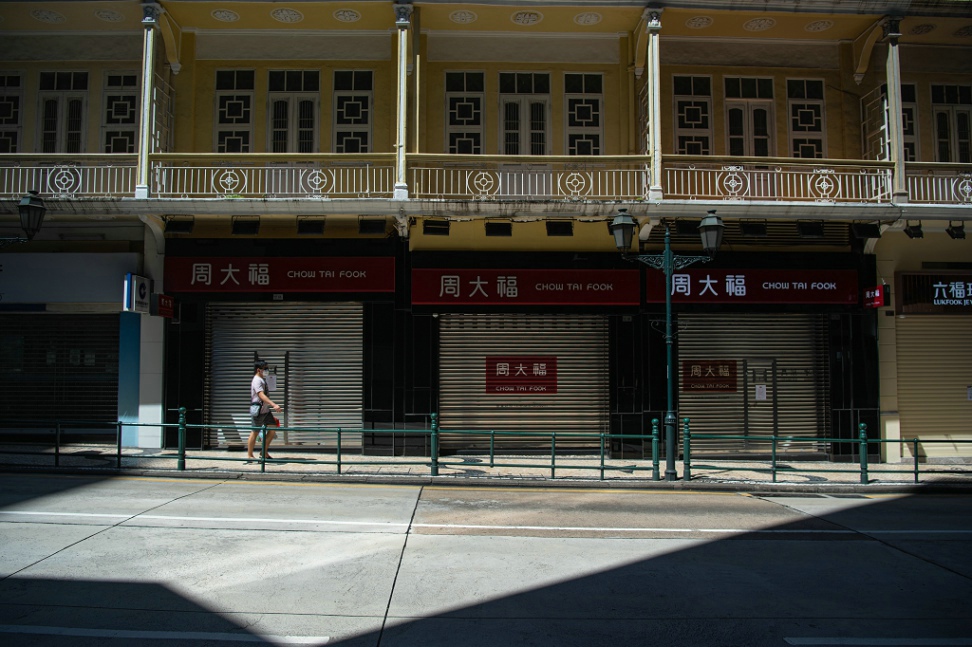
我們看到,除了澳門政府未有足夠重視城市需要實現經濟多元化的諸多警示外,本地大型國際博彩企業亦未有為應對可能出現的問題和根源作好準備,並忽視了當受到來自西方國家的經濟攻擊、誹謗或行動時,博彩運營商需向中國力量支付費用,以展示其實力並行使其對自我正當保護的關注。也許中國正在採取措施,致力阻止資金經澳門流入西方,或者防止洗錢,或者表明其不會向自詡為“世界警察”、“宇宙主人”的美國屈服。除此之外,也許中國不過藉助澳門,試圖打擊賭博的風氣,因為對貪婪的吸引力,一種快速致富的慾望心態,與公眾利益或個人福祉完全無關。
我們現在看到了什麼? 澳門的博彩企業和財團遭到沉重打擊,並正試圖將業務轉移到鄰近的東南亞等地。 可悲的是,來自中國內地的豪客們仍在繼續耍樂,只是將樂園轉移至澳門以外的其他地方。這個預兆是否為澳門打開了一扇門,促使小城考慮另一個更能被社會接受的收入來源,而非利用人類賭博行為的卑鄙本質? 我希望如此。

Macau Business | August 2022
Keith Morrison – Author and educationist
Business 101. When companies plan their business models, typically they must consider, amongst other matters: their products and/or services; demand; market(s) and their environments (economic, political, cultural, social); existing, potential, and likely competition; start-up and ongoing costs and expenses; emergency funding; marketing and promotion; income streams, revenue, and delayed profit; sales; distribution; cash flow; profit margins, gross and net; liabilities; risk analysis, evaluation, and handling; constraints and the ‘what if’ factor; flexibility, adaptability, and adjustment. They must also be clear on the assumptions that they make, and these must be accurate and operational, i.e. given this, we do this; given that, we do that. Nothing new there, you say; it’s in session one of an undergraduate business course, or, indeed school Form 6. All of this is about the business, not about the society and the individuals involved. Surely it’s time to think differently?
So, I ask myself what has gone wrong to cause the bottom to fall out of Macau’s economy? There are obvious contenders: the pandemic; international conflicts; international protectionism; trade wars and sanctions; American exceptionalism and its steps to avoid quasi-imperial overstretch; insufficient economic diversification as a safety net, and so on. But how is it that international experts, analysts and corporates in Macau, experienced in telling the future (indeed, of ensuring that it happens), who rode in on the crest of China’s economic tsunami, are now caught with their trousers down, with closures, staff redundancies, empty hotels, abandoned casino tables, daily losses of millions of US dollars, empty shopping malls, and no visible end in sight. Their business model and the assumptions underpinning it were wrong. Their market positioning and risk analysis were inadequately assessed; their adaptability and flexibility were straitjacketed; their environmental evaluation was too narrow, myopic, and self-serving. Maybe they were only in it for short-term profit, and now, with the cold, uncaring edge of business, they don’t worry for more than a minute about firing people, with monstrous knock-on effects on families in Macau and overseas.
Some people would revel in schadenfreude, as international corporates which were happy to take the billion-dollar profits and revel in excess, are now caught in a massive downturn. Many of the casinos gambled on the regular high rollers for their bread and butter, but they have been caught out now. Look deeper. Behind all of this is the fragility of economic power and its links to international politics. Is it too much to expect China not to retaliate, very skilfully, to America’s self-promotion of world domination, by cutting off mainland visitors to the casinos and their funnel to American dollars? Did the international corporates get their business model wrong in evaluating Macau’s market environments and underestimating the power of the resistance that China could put up to western geopolitical economics?
What we see is not simply the Macau government not heeding sufficiently the many warnings of its need to diversify the economy, not only the failure of the big international gaming corporates in Macau to plan for what could go wrong, and why, but the neglect that the gaming operators paid to the power of China to flex its muscles and exercise its legitimate concern for self-protection when under economic attack, bad-mouthing, and action from countries in the west. Maybe China is taking steps to reduce the outflow of its currency to the west through Macau, or to prevent money laundering, or to demonstrate that it will not succumb to America considering itself as the world’s police officer and master of the universe. Or, on top of this, maybe China, through Macau, is simply trying to curtail gambling, as the appeal of gambling to greed, a get-rich-quick, appetitive mentality, is simply not a public or private good.
What do we see now? The gaming corporates and consortia take the hit in Macau and are approaching other parts of South-east Asia to set up shop. Sad to say, the big spenders from China still continue to gamble, now elsewhere out of Macau. Does this augur opening a door for Macau to consider a more socially acceptable source of its income, instead of from exploiting the baser nature of human behaviour in gambling? I wish.
]]>
Macau Business | June 2022
Keith Morrison – Author and educationist
The world is full of interesting paradoxes that befuddle the mind. Or, as the delightful chapter in Alice in Wonderland put it: ‘‘curiouser and curiouser!’’.
Try this one. Imagine that I am sitting in my Macau government office, looking at the bleak prospect for Macau’s economy, and then I have a brainwave. ‘I know, let’s encourage talents to come to Macau from overseas, to improve the local expertise and develop the capability of the local workforce.’ Sounds like a good idea? Yes, so the government takes it up.
Why is it, then, I ask myself, that it is currently almost impossible for non-local, non-resident experts to enter Macau, and, when they do, give them such a hard time locked up in a hotel room and then released to work on a fragile contract? So, how does this work? One party says ‘bring them in’ and another party says ‘keep them out’. Odd.
Curiouser and curiouser: how is that Macau’s Labour Affairs Bureau (DSAL) thinks that it knows better than Macau’s employers, arguing that non-local experts are not needed after all, as non-expert locals can be trained up by locals. The DSAL follows up its own stunningly brilliant burst of inspiration by denying non-locals the jobs, thereby stepping on the toes of the employers who know what they need and who cannot find it in the locals. So, now we have an all-knowing, all-wise, omnipotent DSAL that not only knows more than the employer but dictates to the employer the staff recruitment strategy that it should have, i.e. the DSAL controls the workforce and the employing institution. Odd.
For example, let us say that an employer wants somebody with expertise and experience in liaising with business in mainland China. The employer advertises the position, receives applications from local Macau would-be employees, interviews them and finds that none of them is suitable. The employer identifies a non-local expert who has the experience and expertise required, and goes through the procedures to bring her from outside Macau. ‘So far, so good’, says the employer, popping along to the DSAL feeling upbeat, with the problem solved. But then the DSAL tells the employer that, in the spirit of local jobs for local people, the application is refused, and that the employer and his/her staff, who have no background, expertise or experience in the field, can train up a local person who, too, has no background, expertise or experience in the field.
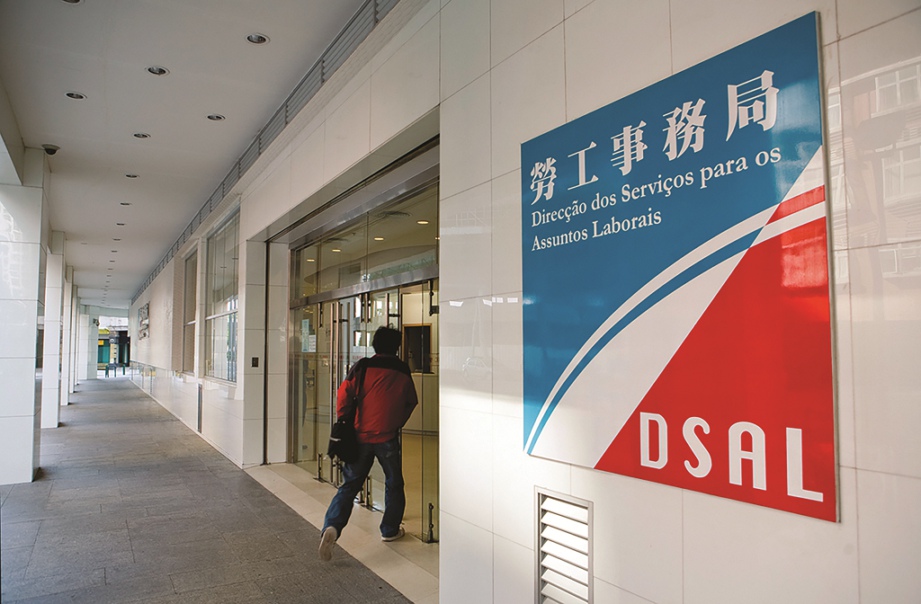
Who, then, is going to train the ignorant and inexperienced locals, the block having been put on recruiting non-local experts, and there being no local experts to train them? The employer scratches his or her head and asks himself or herself what’s going on here. The whole point was that there was nobody local who had the expertise and experience, i.e. nobody to do the training or the job.
Aha, the government has the solution; it promises training. This is where Macau’s Talents Development Committee steps in. For example, on its website, it trumpets that ‘the Talents Development Committee and the Macau Institute of Financial Services have signed an agreement in 2018 to organize a series of training activities in forms of seminars, workshops and short-term courses since 2019’. Sounds great, and it crows that ‘[t]here were 3 seminars held in 2019, naming “FinTechstic: the innovation and opportunities of FinTech”, “Financial leasing: origin, law and business activities”, “The opportunities and challenges of Characteristic Finance in Macao”’. That’s super-charged, rocket-boosted talent development for you. So, there we have it: all you need is a few seminars, and you are equipped to be an expert, on the home-run to wealth and good fortune. Odd.
There remains the nagging question of why the local workforce doesn’t seem to be good enough to meet the needs of the jobs market. Macau has ten higher education institutions, with around 16,000 local students (latest data available), over 300 of whom were registered for doctorate programs and nearly 2,000 of whom were registered for Master’s programmes. Surely they should be in the vanguard of local expertise, talent development and provision? So, what’s happening if the higher education they are receiving inside Macau is not equipping them for high-level jobs, i.e. there is a talent development desert? Or maybe it’s something about the character of the local workforce.
Curiouser and curiouser. Welcome to Macau’s wonderland … only if you’re local.
]]>
世界充滿了令人困惑的有趣悖論。 或者,正如《愛麗絲夢遊仙境》中令人愉快的章節所說:“越來越奇怪!”。
文:Keith Morrison | 作家及教育家
試試這個。想像一下,我坐在澳門政府辦公室裡,看著澳門經濟的黯淡前景,然後我靈機一動,“我知道了,就讓我們引進海外人才,發展本地專業知識和提升本地勞動力的能力。”聽起來是個好主意嗎?是的,所以政府接受了。
那麼,我撫心自問,為何非本地居民、海外專家至今仍幾乎無法踏入澳門。要知道,他們一旦入境,就會被關在狹隘的酒店客房,渡過一段難熬的時光,獲得釋放後方能正式開始工作,但賴以依靠的合同又是如此的脆弱。那麼,這能如何操作?一方面說“讓他們進來”,另一方卻堅持“讓他們出去”。真奇怪!
更離奇的是:勞工事務局怎麽認為自己比雇主更清楚,辯稱最終將不需要來自海外的專家,因非專業本地人也可以接受本地人才的培訓。拒絕非本地人才到澳門工作一事激發了勞工事務局的無限靈感,並終於惹惱了本地雇主,因爲雇主們清楚自己的需要,也清楚無法從本地人處得到滿足。所以,一個“無所不知”、“無所不能”且“無比睿智”的勞工事務局誕生了!它不僅比雇主了解更多,而且規定了雇主應該採用的員工招聘策略,即勞工事務局控制著勞動力和用人機構。真離奇!
例如,假設雇主希望聘用在與內地業務聯繫方面具有專業知識和經驗的員工。他們刊登招聘廣告,收到來自澳門本地居民的應聘申請,面試後發現沒有合適人選。雇主終於從外地找到一名具備所需經驗和專業知識的專家,繼而準備辦理有關手續,將他從境外帶到澳門。“到目前為止,一切都很好”,雇主說。問題終於得到解決,僱主帶著樂觀的心情到達勞工事務局。隨後卻被告知,本著保障本地居民工作的精神,有關申請被拒絕,這名雇主及其現有員工,在該領域沒有任何背景、專業知識或經驗可言,卻有能力培訓同樣沒有任何所需背景、專業知識或經驗的本地居民。

那麼,禁止招聘外地專家,本地也沒有人才能夠提供培訓,誰能夠培訓這些懵懵懂懂的本地居民?雇主撓撓頭,自問究竟發生了什麼事。關鍵是本地沒有人擁有專業知識和經驗,即沒有人能夠提供培訓或完成工作。
哈!政府有辦法;它承諾提供培訓。這是澳門人才發展委員會介入的切入點。例如,委員會在其網站上大肆宣傳“人才發展委員會和澳門金融學會於2018年簽訂協議,2019年起合作舉辦一系列實務性培訓活動”。聽起來不錯,2019年舉辦了3個講座,分別為“FinTechstic 金融科技的創新機遇”、 “融資租賃 – 起源、法律及商業活動”及“澳門特色金融的挑戰與機遇”。對您來說,這是一個充滿活力的、火箭式的人才培養。所以,我們發現:只需若干研討會,你就有能力成為一個專家,直奔財富和運氣。古怪!
為何本地勞動力似乎仍不足以滿足就業市場的需求?這依舊是一個棘手的問題。澳門有10所高等院校,本地學生約16,000人(最新數據),其中300多人修讀博士課程,近2,000人修讀碩士課程。他們就一定在城市專業知識、人才發展和供應方面處於領先地位嗎?那麼,如果他們在澳門接受的高等教育仍未足以令他們有資格參與高水平工作的話,即人才發展沙漠,會發生什麼?或者,這可能與本地勞動力的特徵有關。
越來越奇怪。歡迎來到澳門仙境夢遊……前提,您必須是本地居民。

Macau Business | May 2022
Keith Morrison – Author and educationist
Across the world, a civil service job pays well and is secure. Not bad if you can get it, with competitive entry to it by hordes of applicants.
Latest figures show that Macau has 38,000 civil servants, just over 10 per cent of its employed population (like small Monaco); public administration and social security workers in Macau earn a median monthly salary of around 46,400 patacas. Singapore has 86,000 civil servants, some 2.4 per cent of its employed population, with an average monthly salary equivalent to just over 51,000 patacas. Hong Kong has nearly 177,000 civil servants, 4.6 per cent of the labour force, with a Master’s pay scale from HK$24,000 (10 points) to 135,470 HK$ per month (49 points), and a national average salary for a civil servant of HK$25,273 per month. Why does Macau have such a disproportionate number of civil servants and pay them so highly?
Proportionality and scalability are not exact or the same for small and large economies; small countries still need the full gamut of civil services. However, whilst it is very dangerous to generalize (not least as taxation varies dramatically across the world), it seems as though a job in the civil service/public service is pretty secure and pay is good. No wonder that, for many workers in Macau, it is like the author James Hilton’s Shangri-La; the lost horizon and perfect place of refuge from the vicissitudes of the outside world. Getting a job in the civil service is their dream, their sheltered world, their safe bubble.
Whilst workers in Macau struggle to keep their jobs in the private sector, civil servants in Macau continue to enjoy a blessed existence. No wonder they do anything to hang onto their jobs, e.g. don’t rock the boat, do as you are told, and don’t try to be creative; it’s dangerous to think or to have an idea. Be prepared to do a repetitive, dull job without questioning its worth. That’s almost to be expected in civil service jobs around the world. That’s bureaucracy for you.
The problem is that this mindset suffers from bureaucracy creep, failing to rectify inefficiency, and creating a workforce of compliant, docile functionaries, content to graze as long as there is grass. But it goes beyond that: to quote the social philosopher Habermas, bureaucracy ‘colonizes’ the ‘lifeworld’ of citizens, and, in doing so, stifles discussion, creative argumentation and thinking out of the box, reinforces existing power structures and furthers the Peter principle. Any discussion of the good life is deformed into ‘shut up, do your job, and take the money’.
How far does this apply to Macau? Here are eight light-hearted theorems of civil servants in Macau.

Theorem One: The number one task of the civil service in Macau is to give Macau people jobs in its civil service, regardless of needless bureaucracy and trouble that this creates for the public. It keeps the unemployment figures down.
Theorem Two: It doesn’t matter that Macau’s civil service is too big and flabby.
Theorem Three: The size of Macau’s civil service relates to the tasks that it sets for itself, not the tasks that really need to be done. Doing needless, really unnecessary tasks keeps people in jobs.
Theorem Four: The civil service is supposed to serve the public, but in Macau it is the other way round.
Theorem Five: One task of civil servants in Macau is to receive reports and documents on everything, from public and private enterprises, and then file them away, with no consequences, impact, and maybe even nobody ever reading them.
Theorem Six: Civil servants in Macau should have low expectations of themselves, and not worry about their ignorance of the field in which they are working.
Theorem Seven: The task of civil servants in Macau is to control beyond the legitimate boundaries of their role, and to encroach too far into the running of private enterprises.
For example, in the name of civil service, there is surveillance and intrusion into the lives and work of Macau’s citizens, employers and employees, the necessity or utility of which is opaque and incomprehensible. But never mind; it keeps the civil servants in a job. Even if you ask them why they need such-and-such a piece of information, or why they turn up at private enterprises to check out meaningless matters, the answer is something along the lines of a stony-faced ‘don’t ask, because I’ve been told to do it’, or, indeed, a smiling pretence that they haven’t even heard the question.
Theorem Eight: Getting value for money from the civil service doesn’t matter in Macau, as civil servants can more or less earn whatever they demand, by holding a relatively wealthy government to ransom.
If Macau’s endeavour is to be a smart city, then why are so many of its civil service practices and procedures so un-smart, unnecessary and monstrously bureaucratic, and its civil servants so overpaid, unthinking and unquestioning, however polite and smiling they are trained to be? Toy poodles in a dog show, obedient to their owners. Woof.
]]>
世界各地的公務員工作報酬優越且保障性高,如果你能在萬千競爭者中脫穎而出,躋身其中,那便十分不錯了。
文:Keith Morrison | 作家及教育家
最新數據顯示,澳門有 38,000 名公務員,僅佔本地就業人口一成左右(猶如微型摩洛哥); 本地公共行政和社會保障工作者的月工作收入中位數為澳門幣46,400元/月(下同)。 新加坡有 86,000 名公務員,約佔其就業人口的 2.4%,平均月薪略高於 51,000 元。香港有近 177,000 名公務員,佔城市整體勞動力的 4.6%,碩士薪級從每月 24,000 港元(10 點)至 135,470 港元(49 點),公務員團隊平均月薪為 25,273 港元。那麼,澳門公務員為何人數多且薪酬高?
小型和大型經濟體的比例性和可擴展性不盡相同;小型國家仍有必要推行全方位的公務員制度。然而,儘管一概而論的說法具一定風險(尤其是世界各地的稅收差異很大),但公務員或公共服務部門的工作似乎甚具保障且報酬頗豐。難怪,對於本地許許多多的上班族而言,公務員是他們畢生的夢想,是生活的避風港,是安全泡沫,就如同James Hilton筆下的香格里拉:消失的地平線和遠離滄桑的完美避難所。
當本地私營機構僱員千方百計保住工作的同時,澳門公務員繼續享受無憂無慮的幸福生活。難怪他們願意竭盡所能地保住飯碗,例如聽話做事、不搗亂、不作任何發揮創造力的嘗試;思考或有想法是危險的。全力以赴地做好一份重複的、枯燥的工作,不要質疑其價值。這幾乎是全球公務員工作的模板。對你來說,這卻是官僚主義。
問題在於,思想受到官僚主義侵蝕、無法糾正低效的工作,從而創造了一支聽話且溫順的工作隊伍,只要有草就滿足於放牧。 然而,它超越了這一點:引用社會哲學家Habermas的話,官僚機構“殖民”了公民的“生活世界”,並且扼殺了討論、具創造性的辯論和跳出框框的思考,鞏固已有的權力結構並推動了彼得原則。任何關於美好生活的討論都被轉化為“閉嘴,管好自己,拿錢”。
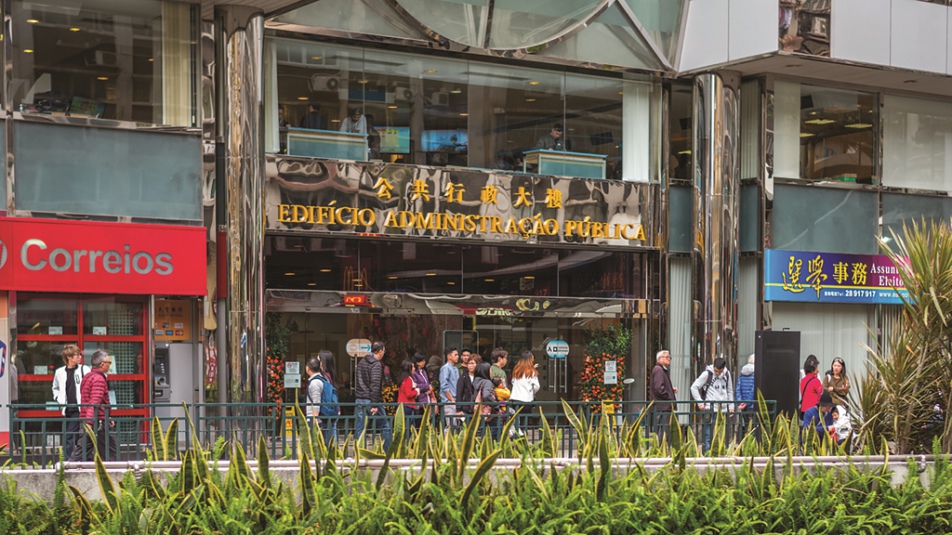
這在多大程度上適用於澳門? 以下是澳門公務員的八大輕鬆定律:
定律一:澳門公務員的首要任務是讓澳門人成為公務員,不顧這將激化官僚主義,給社會帶來不必要的麻煩,因此舉能令失業率下降。
定律二:不用介意本地公務員隊伍過於龐大且鬆散的事實。
定律三:澳門公務員的規模與其設定的任務有關,但那並非真正需要完成的任務。做不必要且無意義的任務能保持就業率。
定律四:公務員本應為公眾服務,但在澳門則相反。
定律五:澳門公務員的一項任務是接收公私營企業遞交的一系列報告和文件,並將之歸檔,此舉將不會產生任何後果,也不會造成任何影響,甚至沒有人會閱讀這些記錄。
定律六:澳門公務員自我期望甚低,對所從事的領域一無所知並將此視作理所當然。
定律七:澳門公務員的任務是超越其角色的合法界限,過度干預私營企業的經營。例如,以公務員的名義,監視、侵入澳門居民、僱主和僱員的生活和工作,有關工作的必要性或效用卻無法得知且難以理解。但是,沒關係,這能讓那些公務員保住飯碗。就算你問他們為何要索取這樣那樣的信息,又或到私營企業作無謂檢查的原因,答案大多伴隨著一副“不要問,因為我只是被告知這樣做”的表情,又或者,假裝沒有聽到這個問題的微笑。
定律八:在澳門,從公務員處獲得金錢利益是無關緊要的,因為公務員從向相對富裕的政府處或多或少地賺取自己想要的任何東西。
若澳門全力以赴地建設一座智慧城市,為何其公務員制度和程序卻如此滯後?不必要?且官僚主義嚴重?這裡的公務員為何薪酬水平過高、不曾多加考慮且無人質疑?他們僅接受禮貌和微笑培訓?
]]>